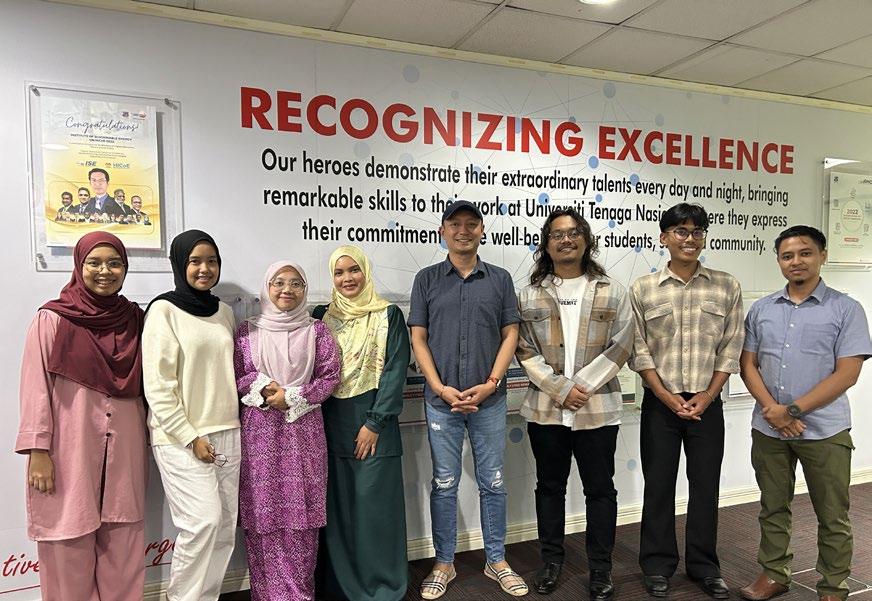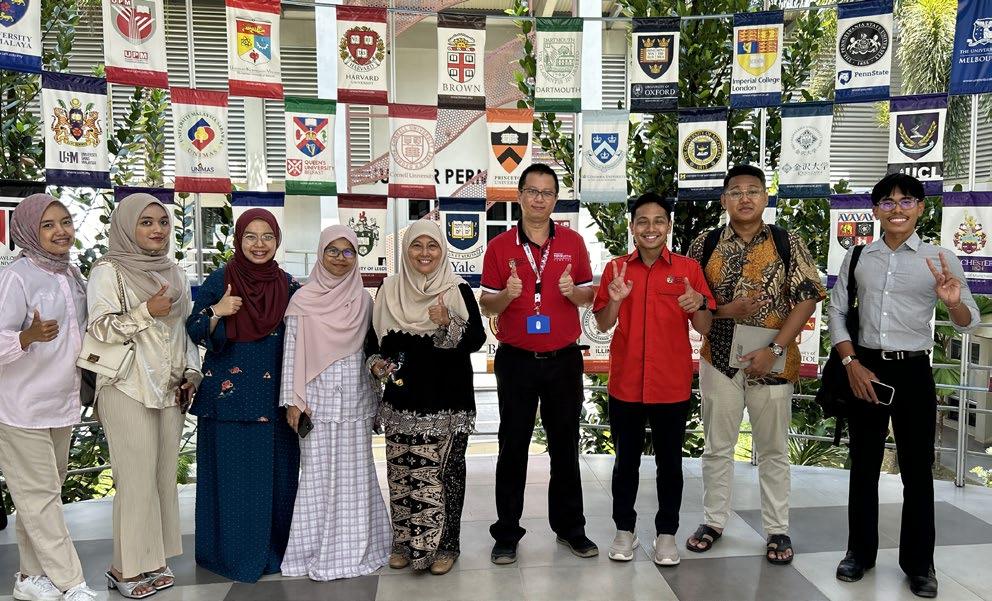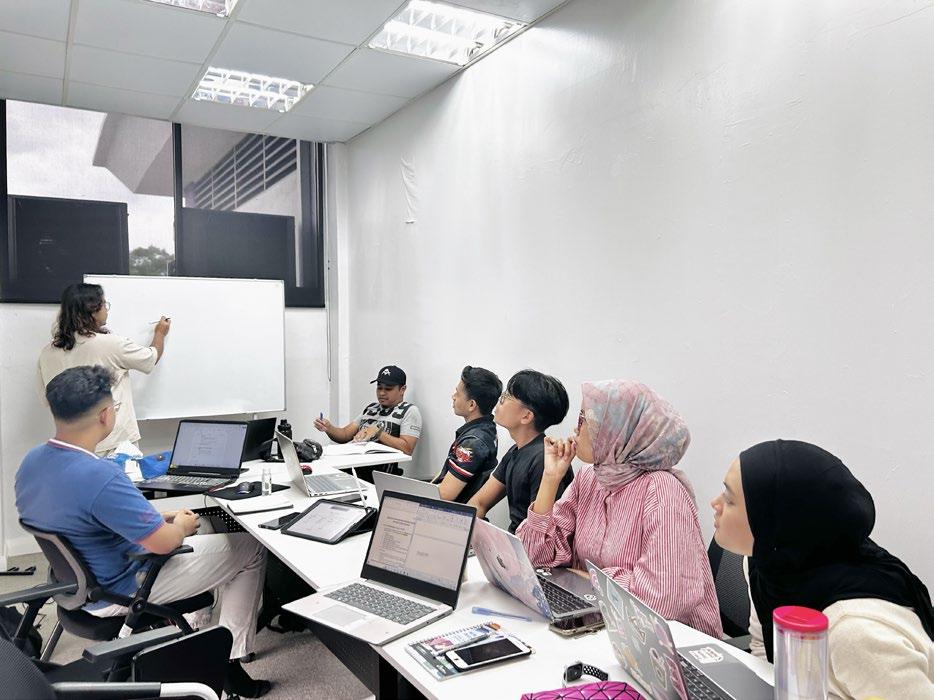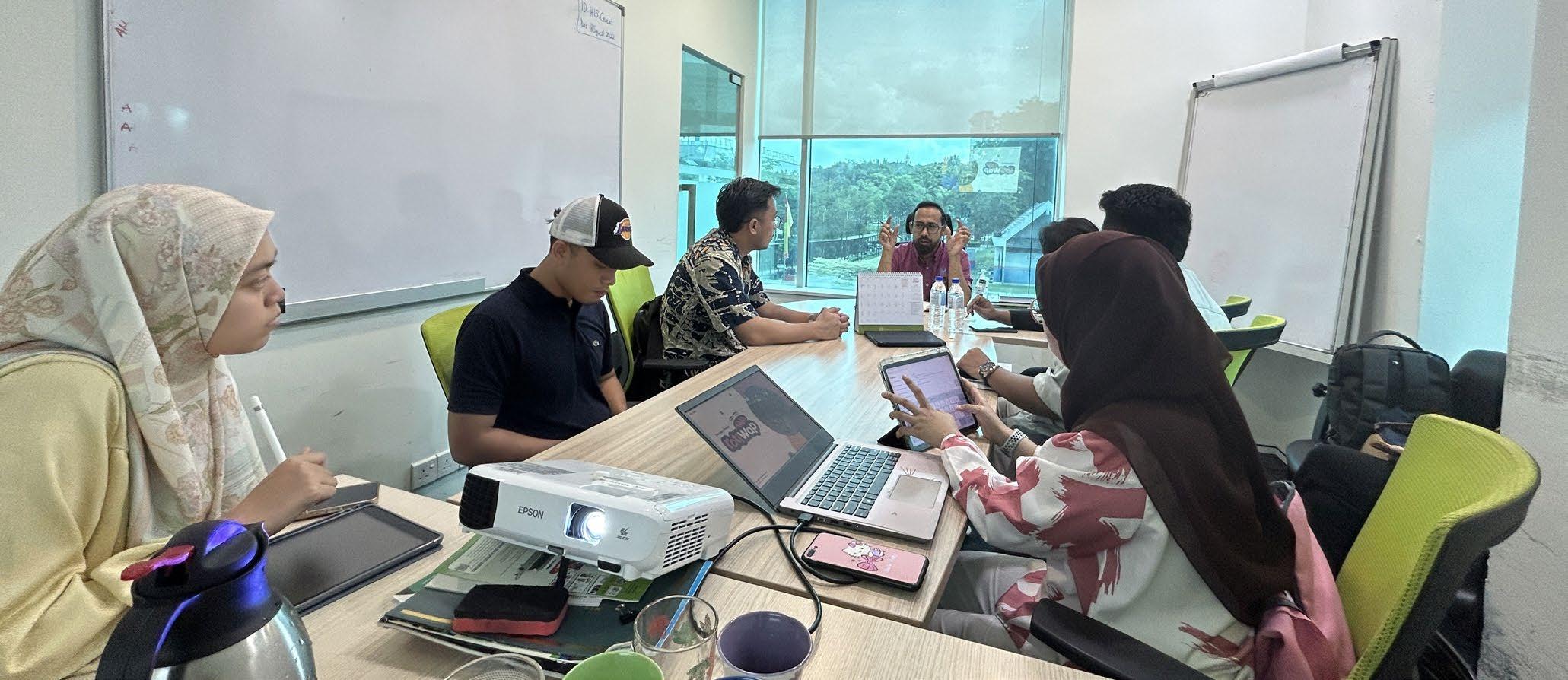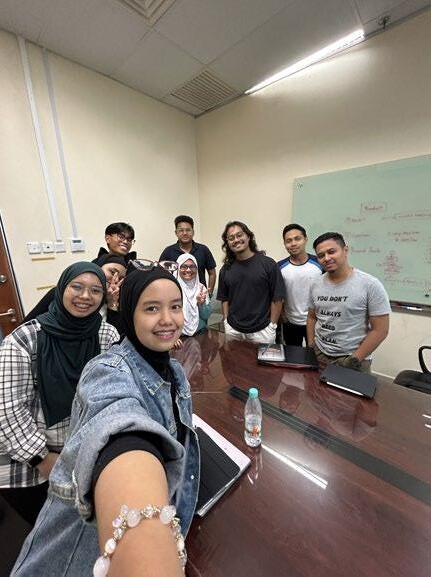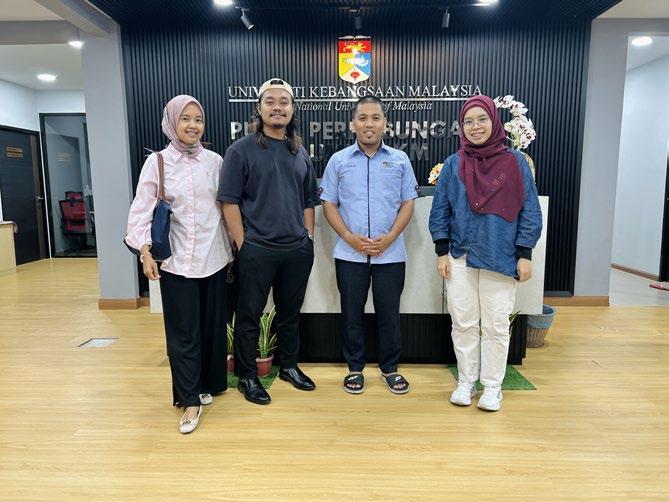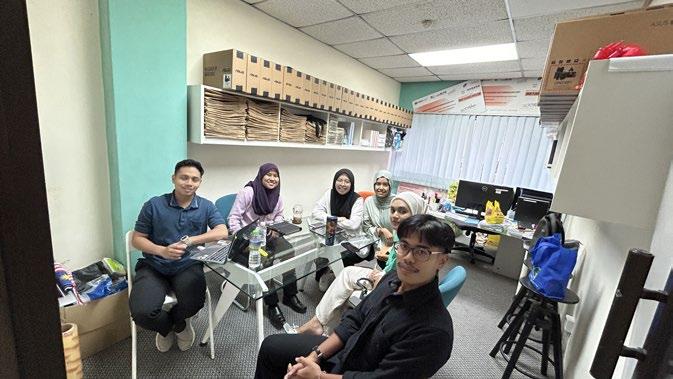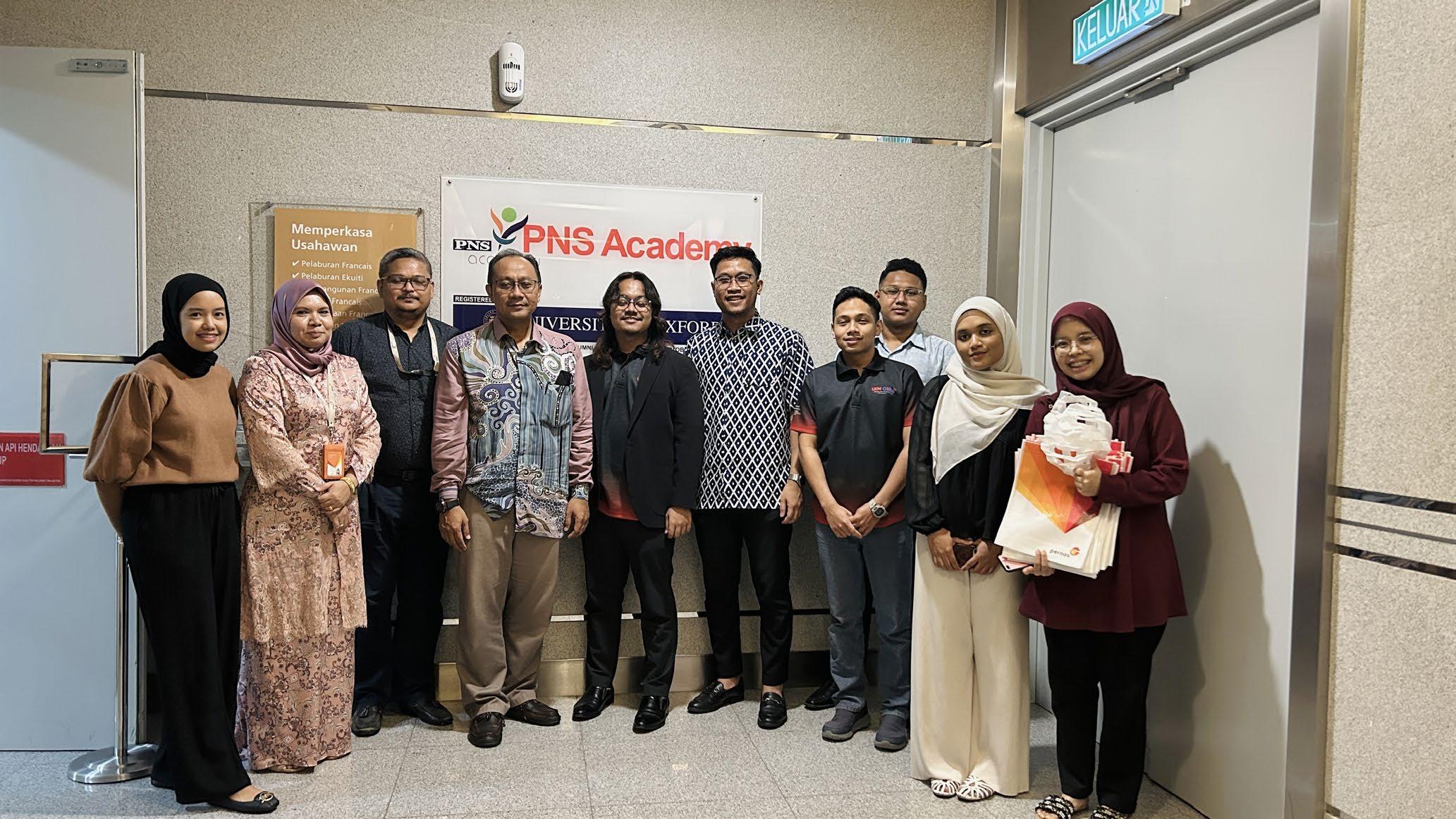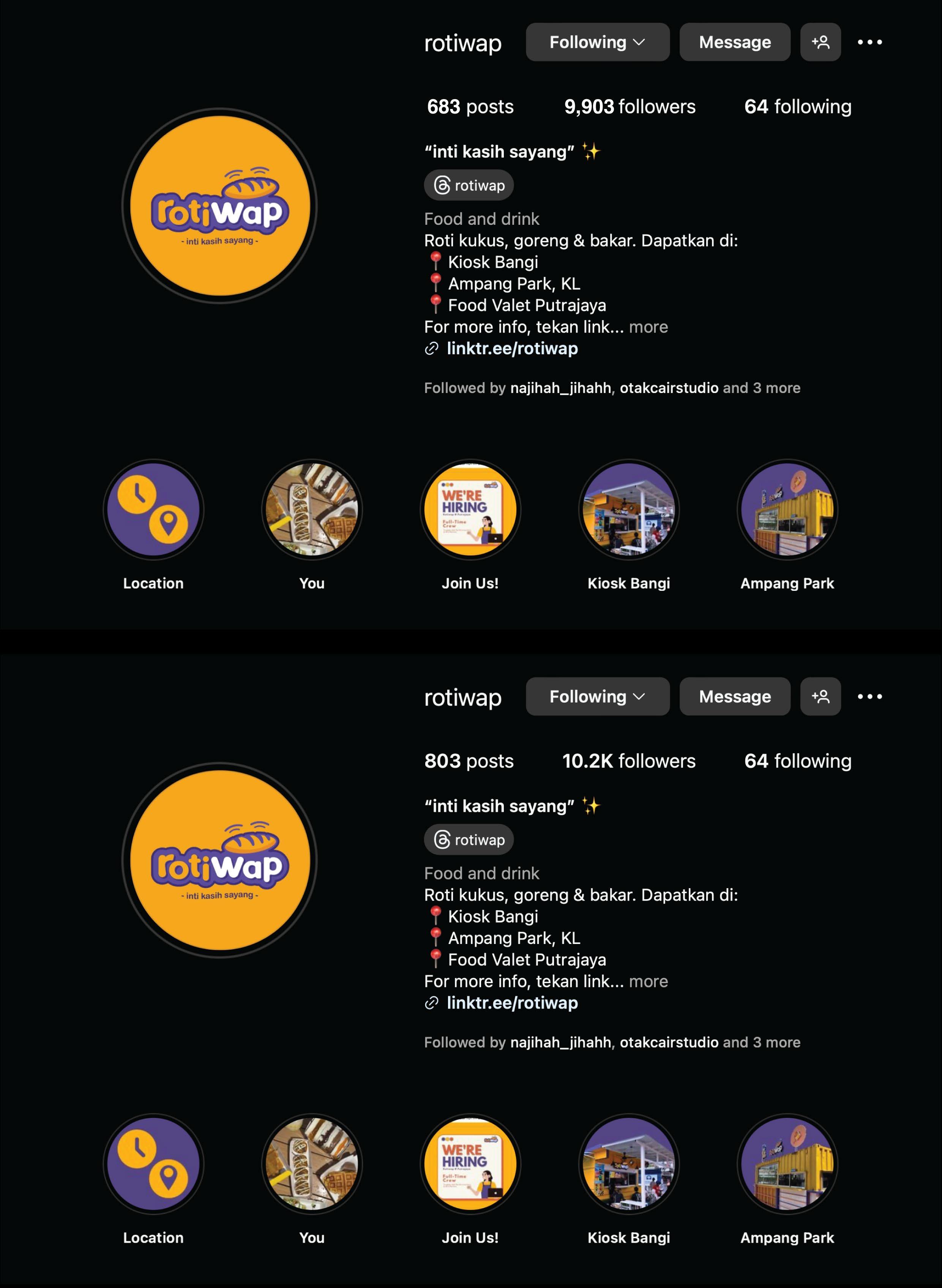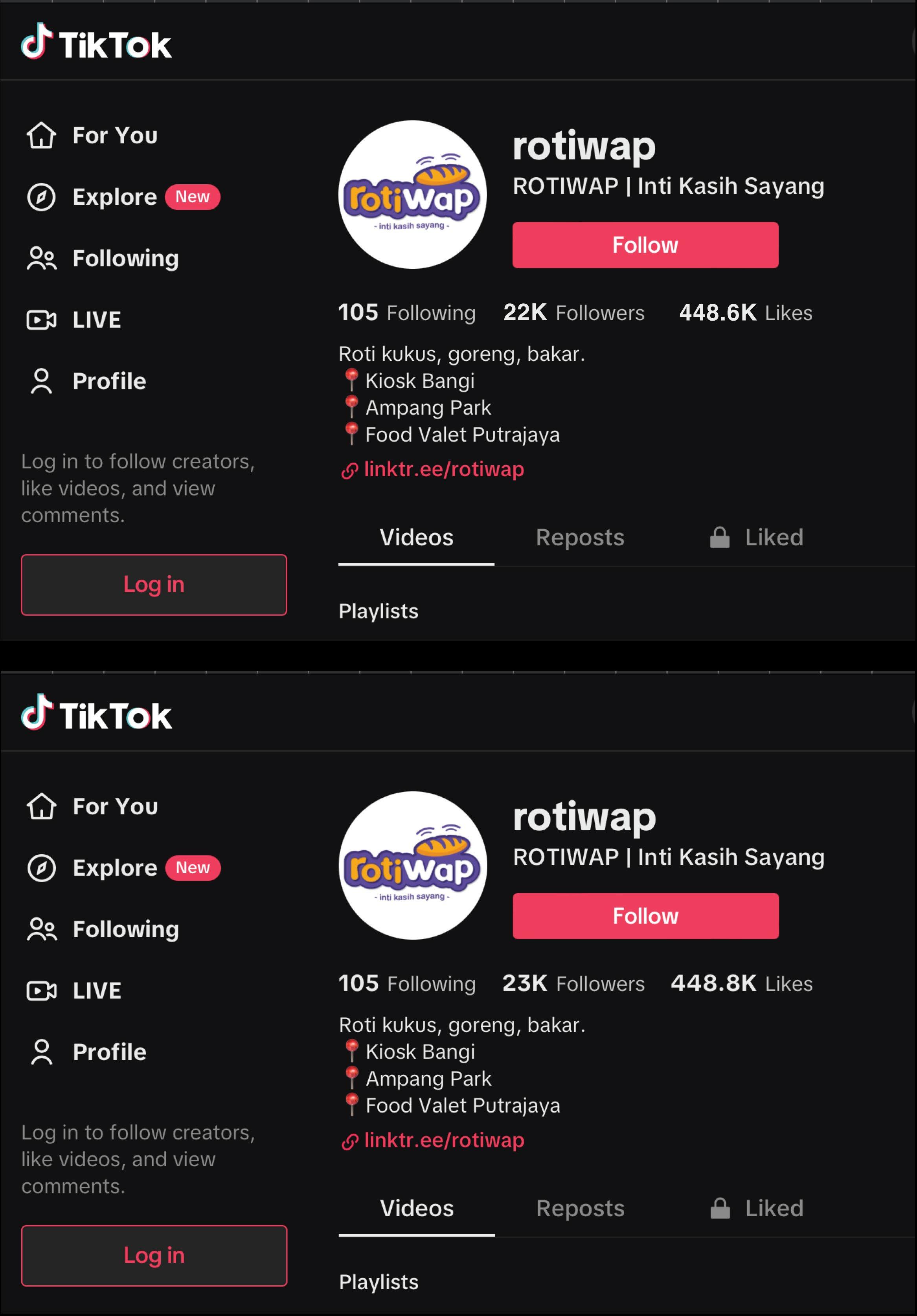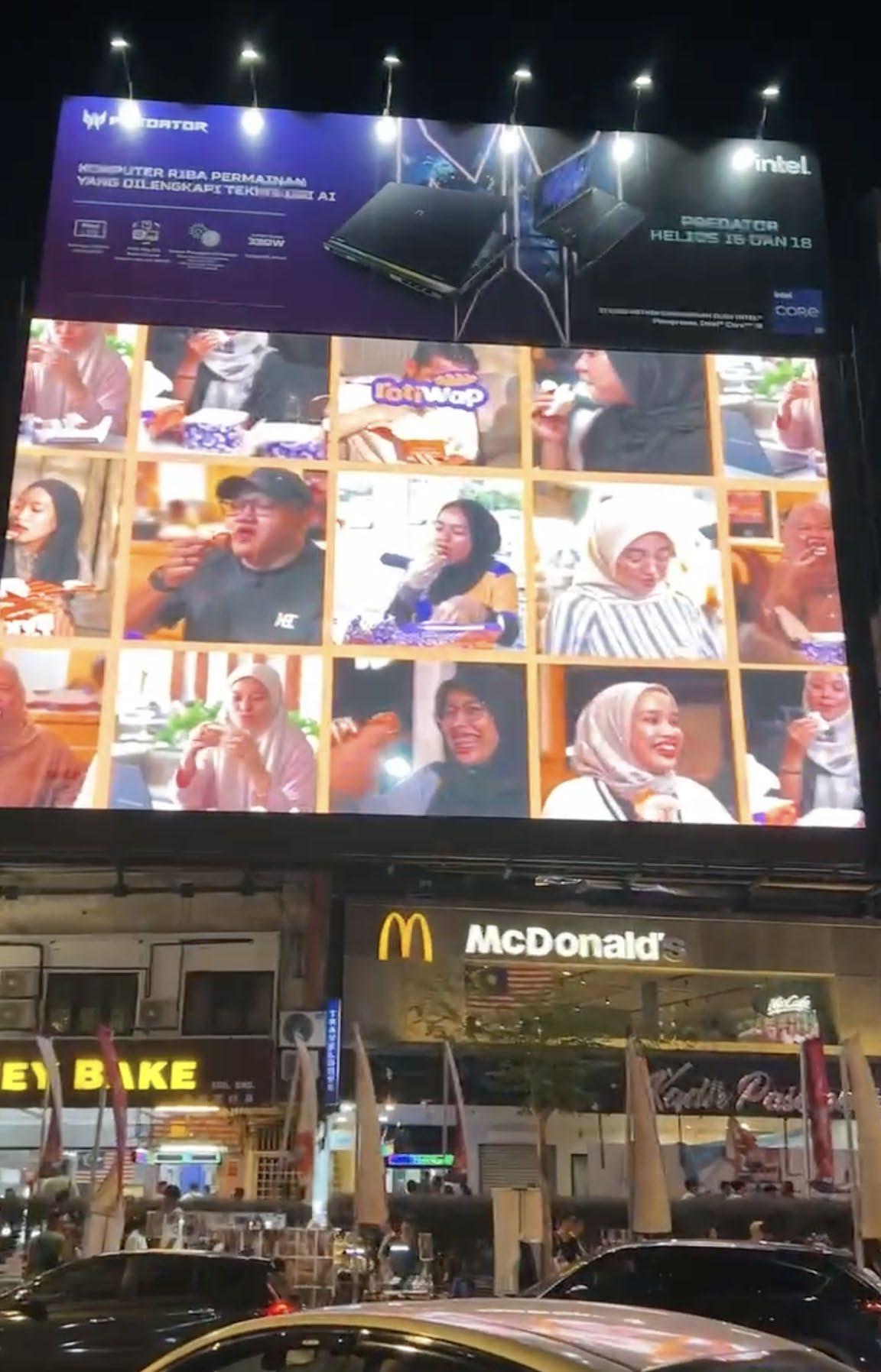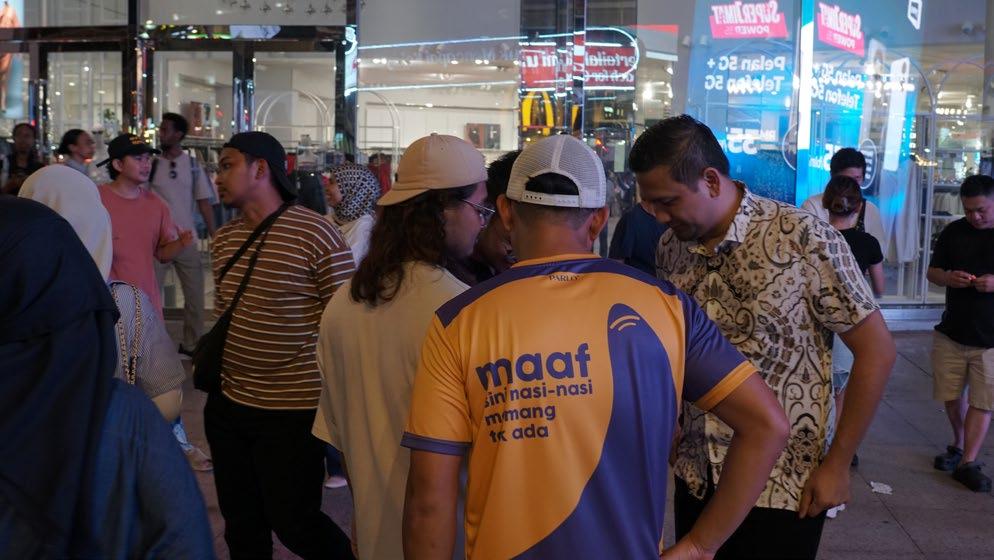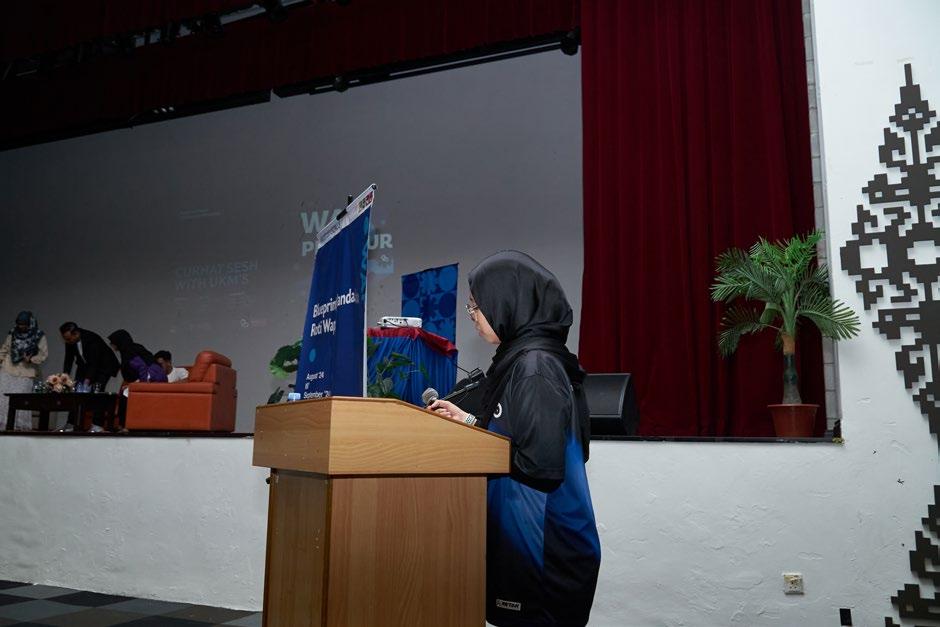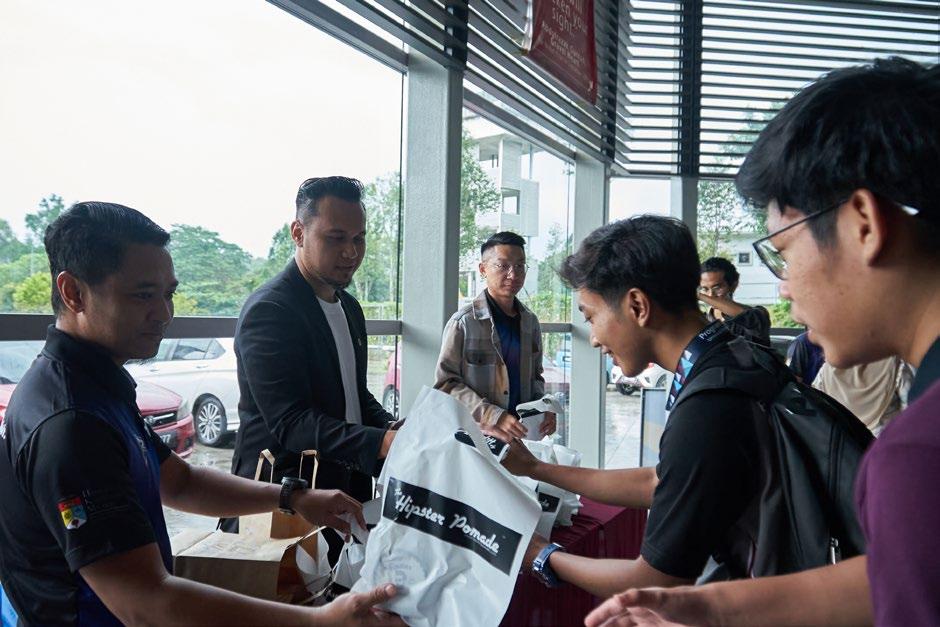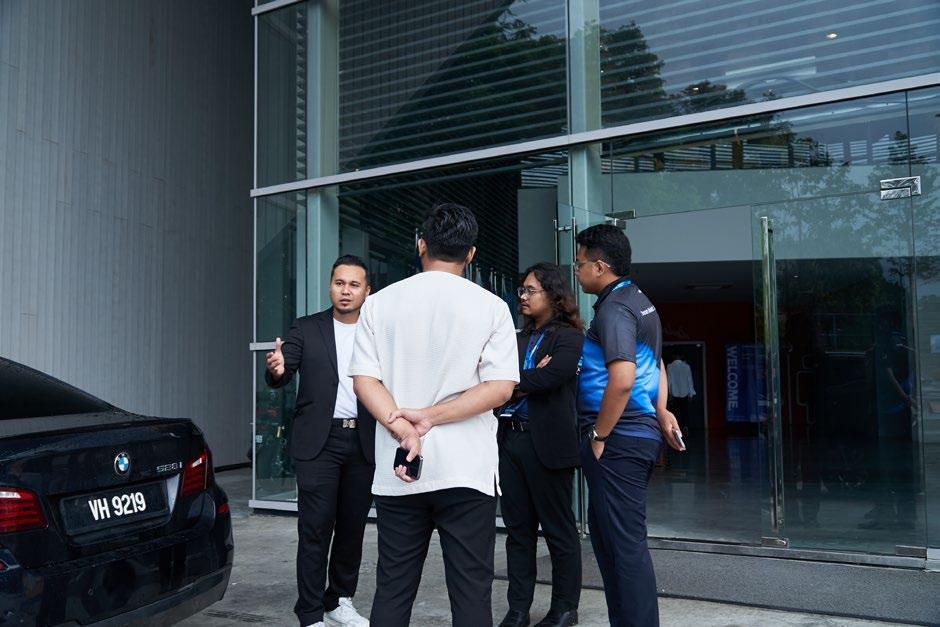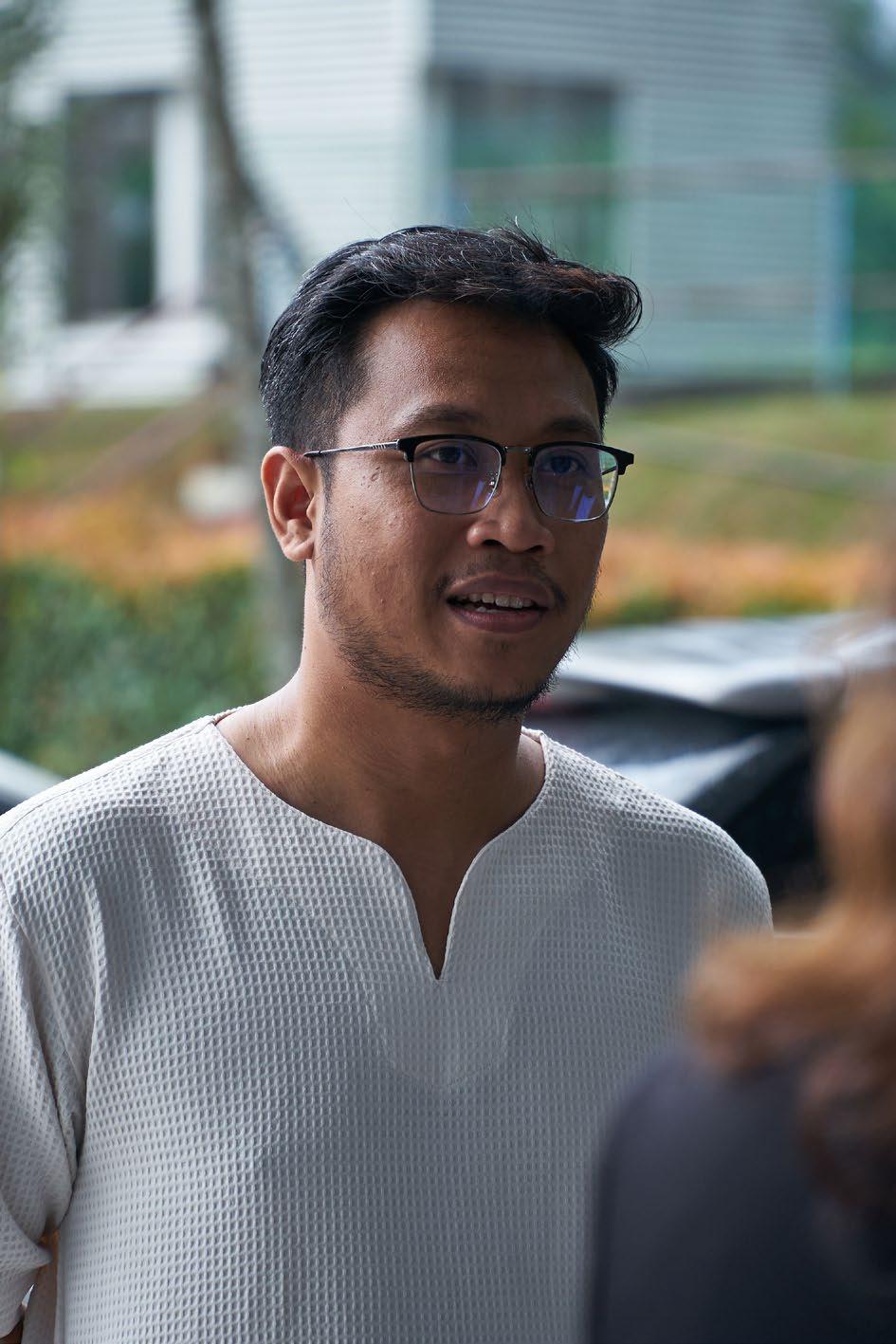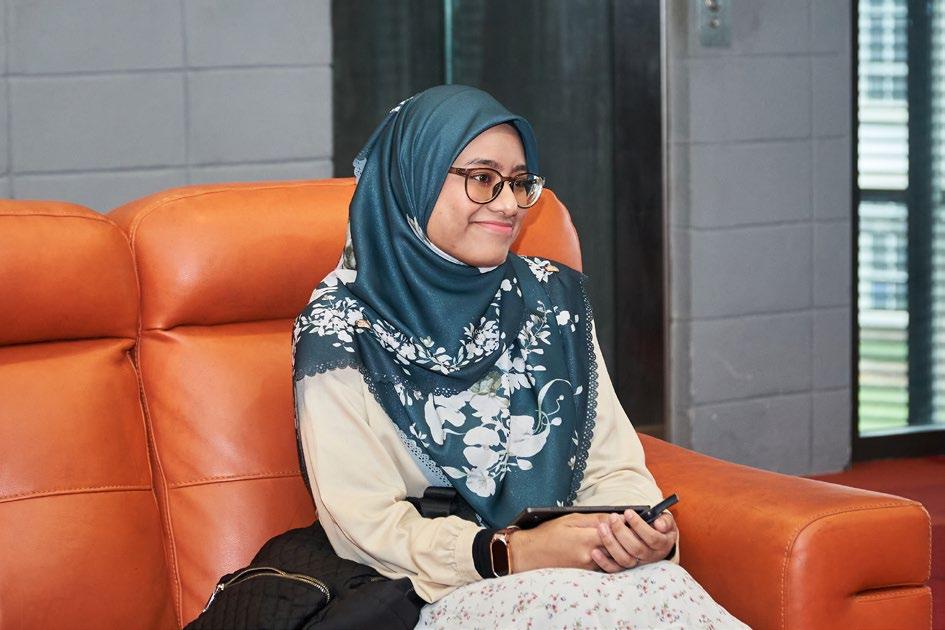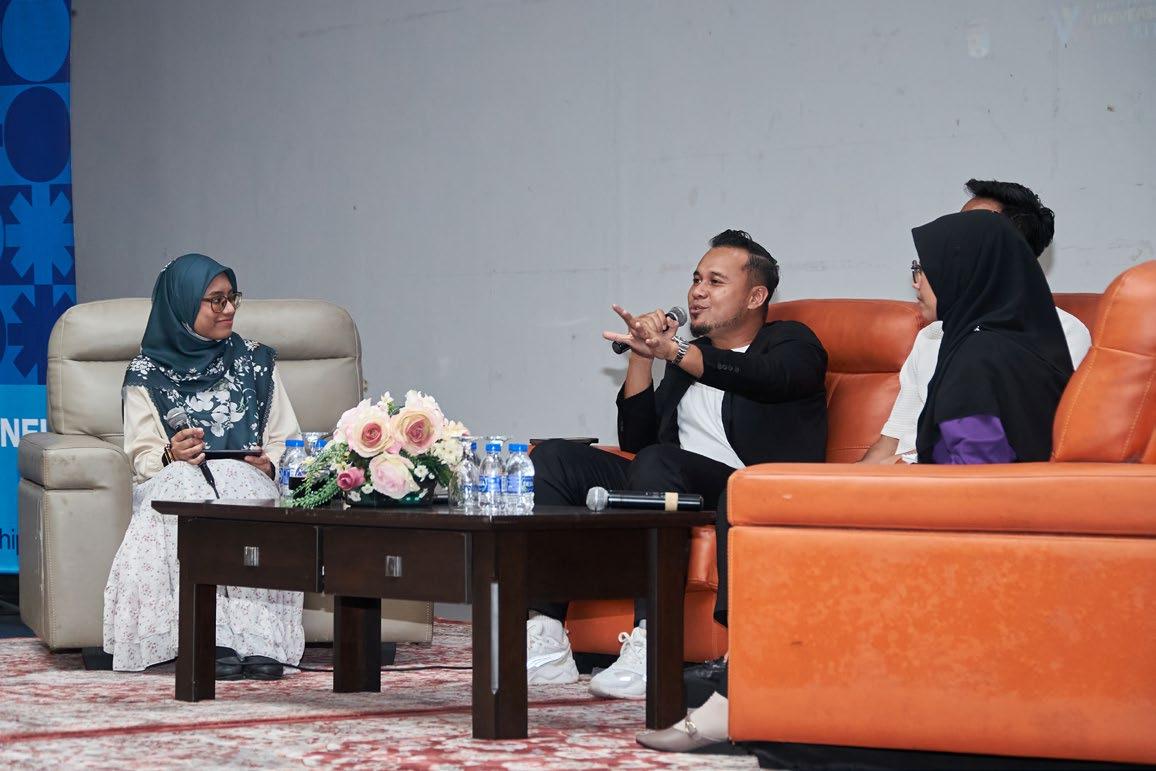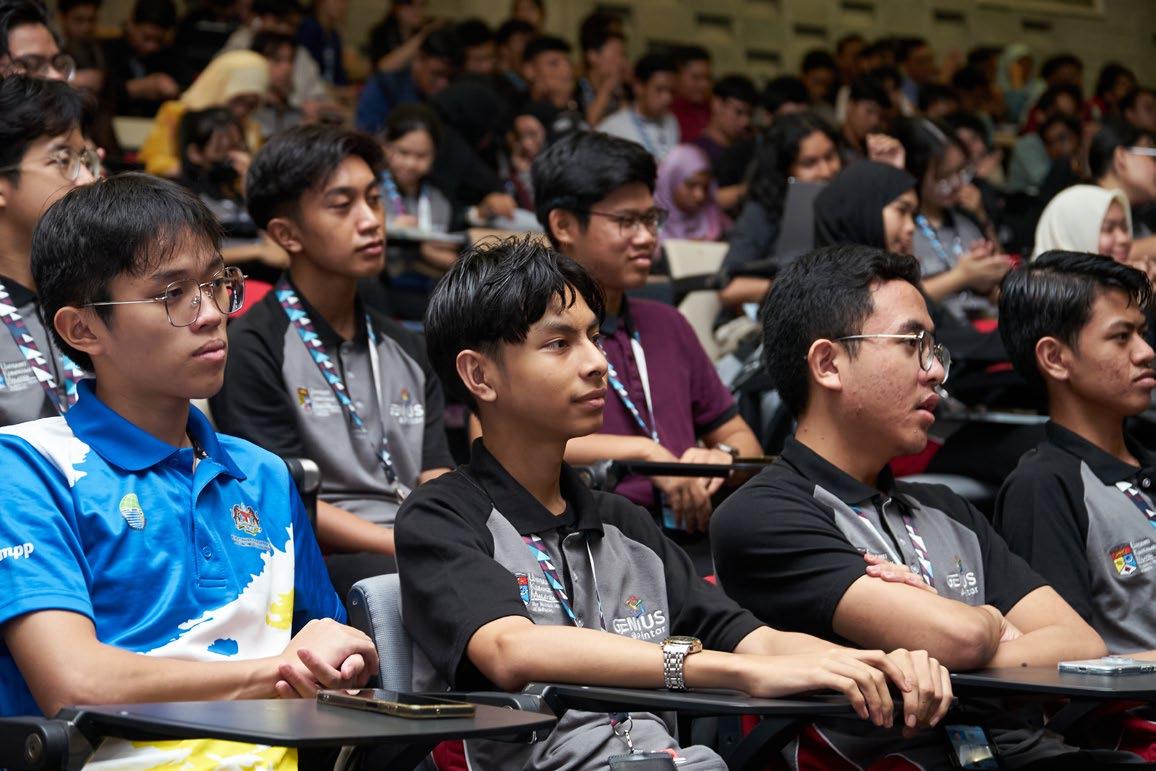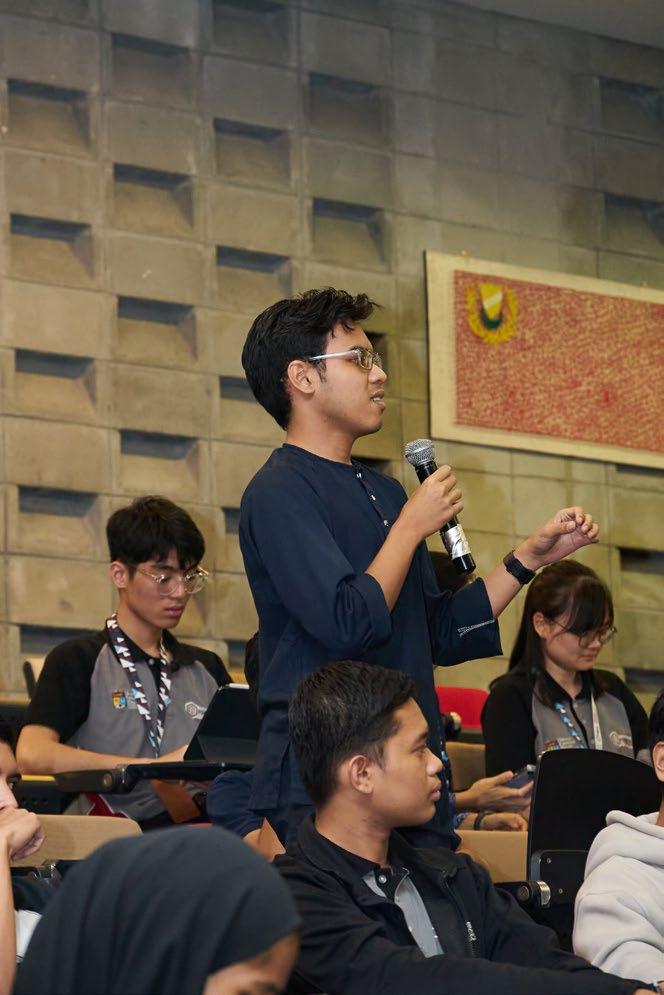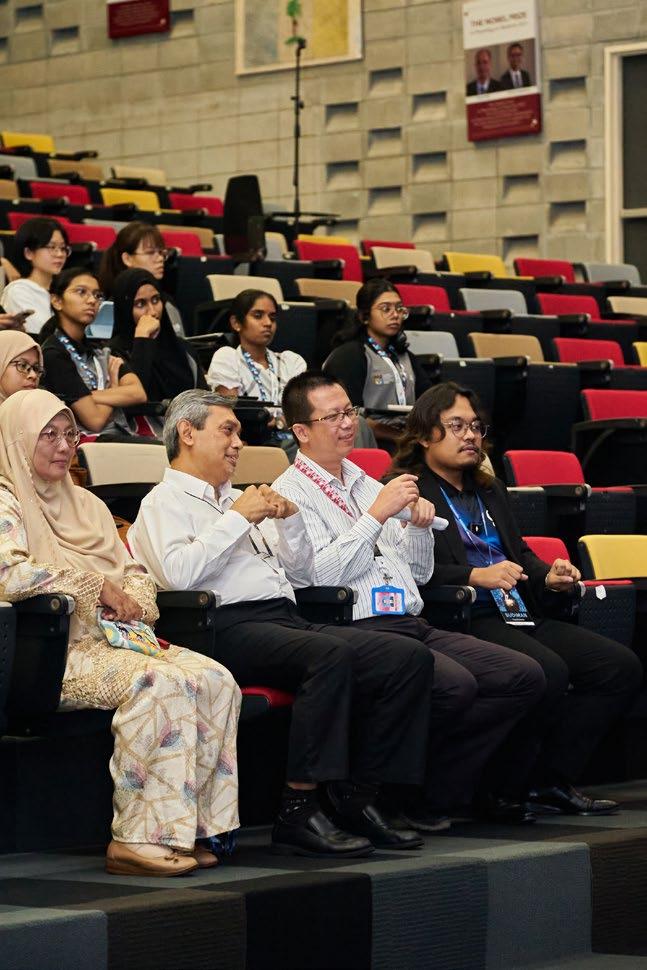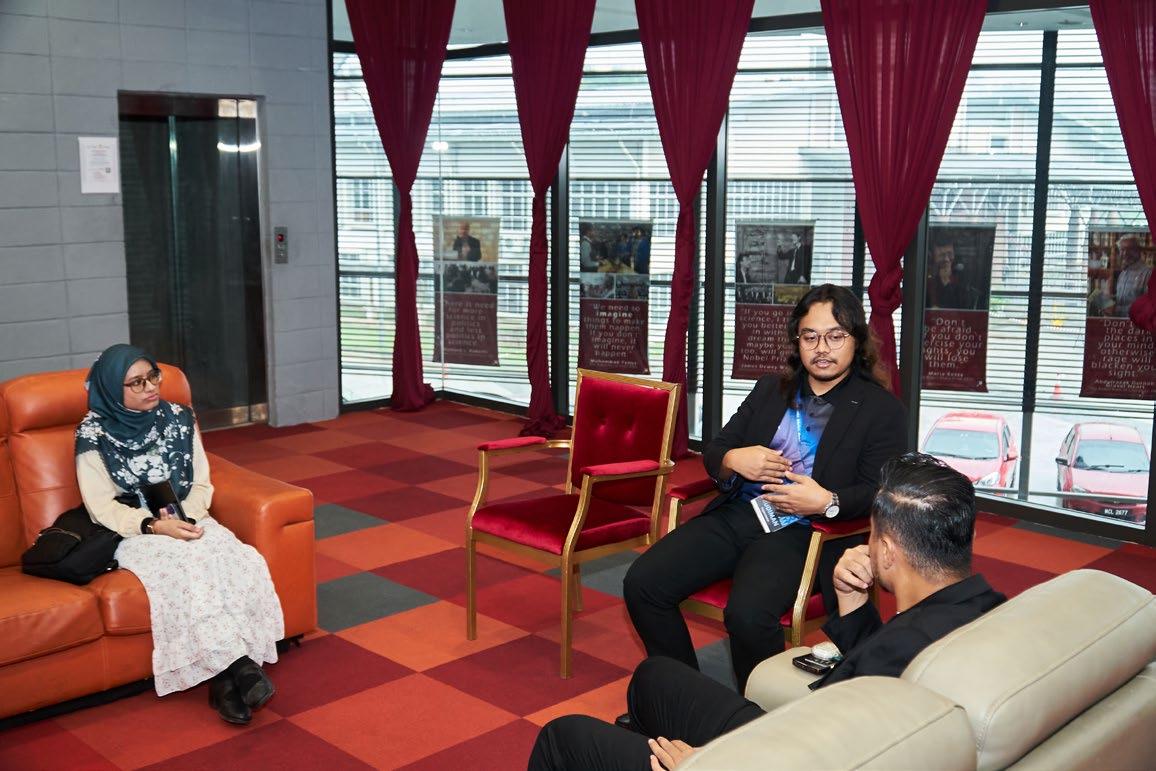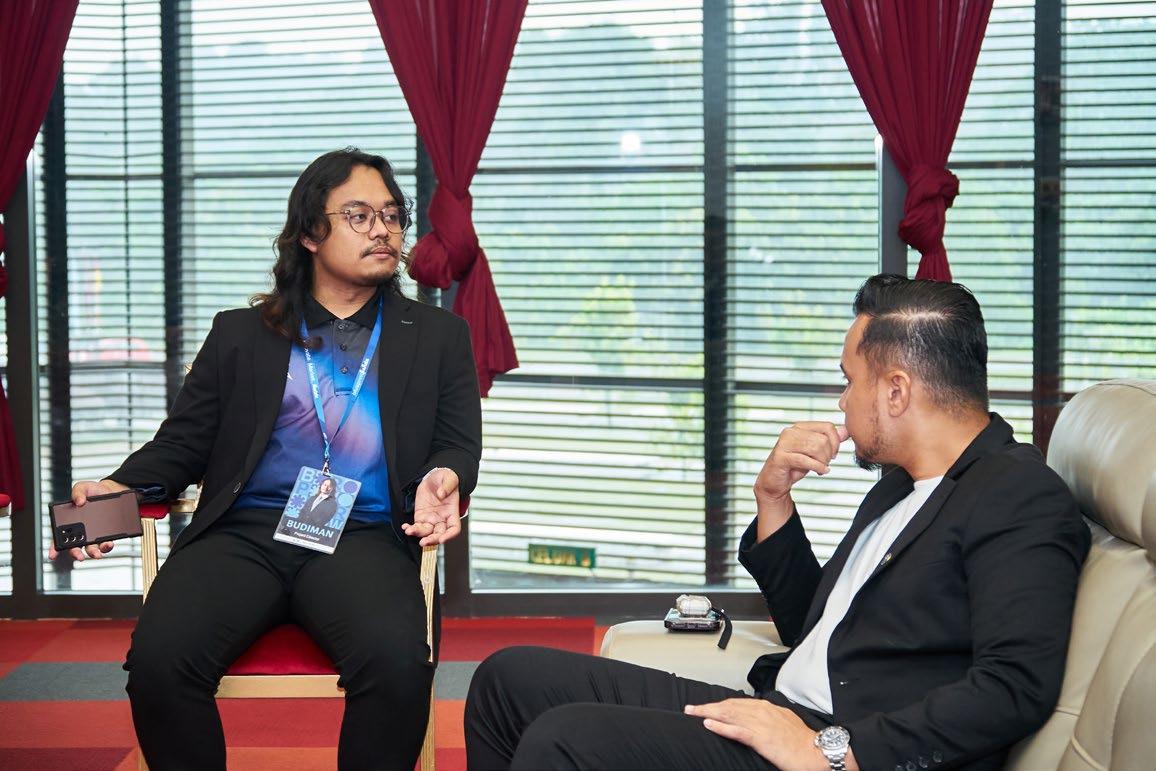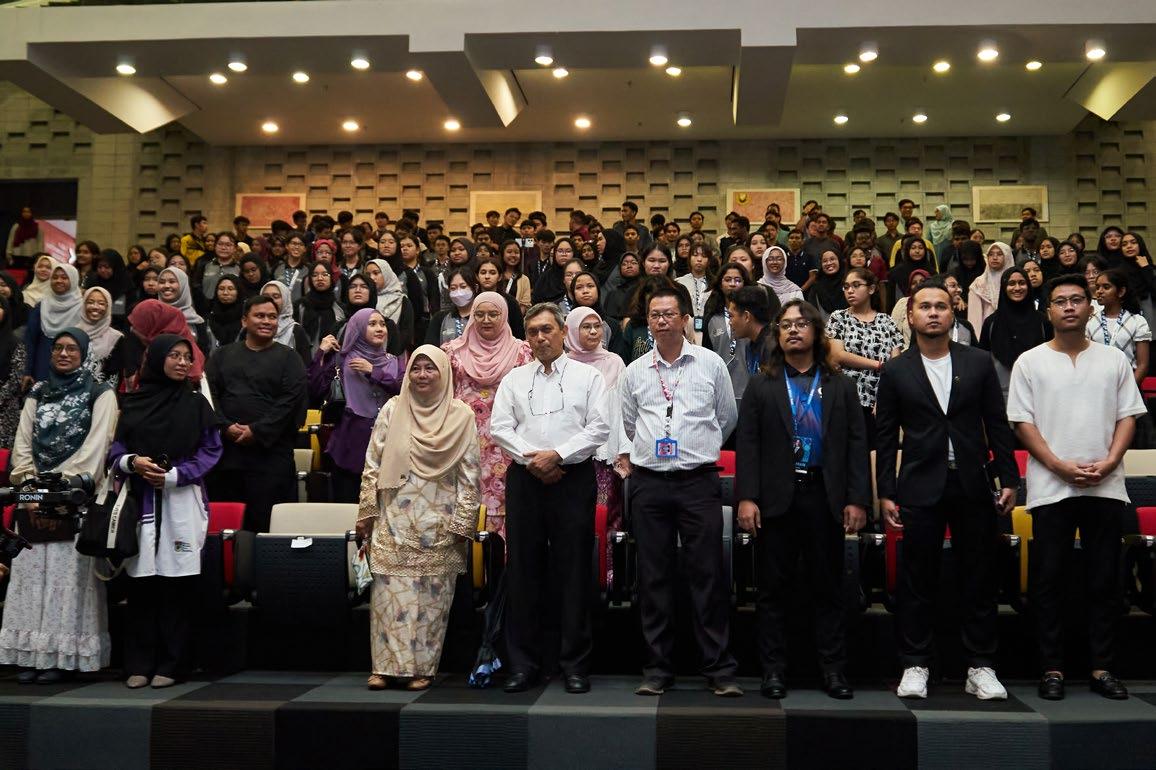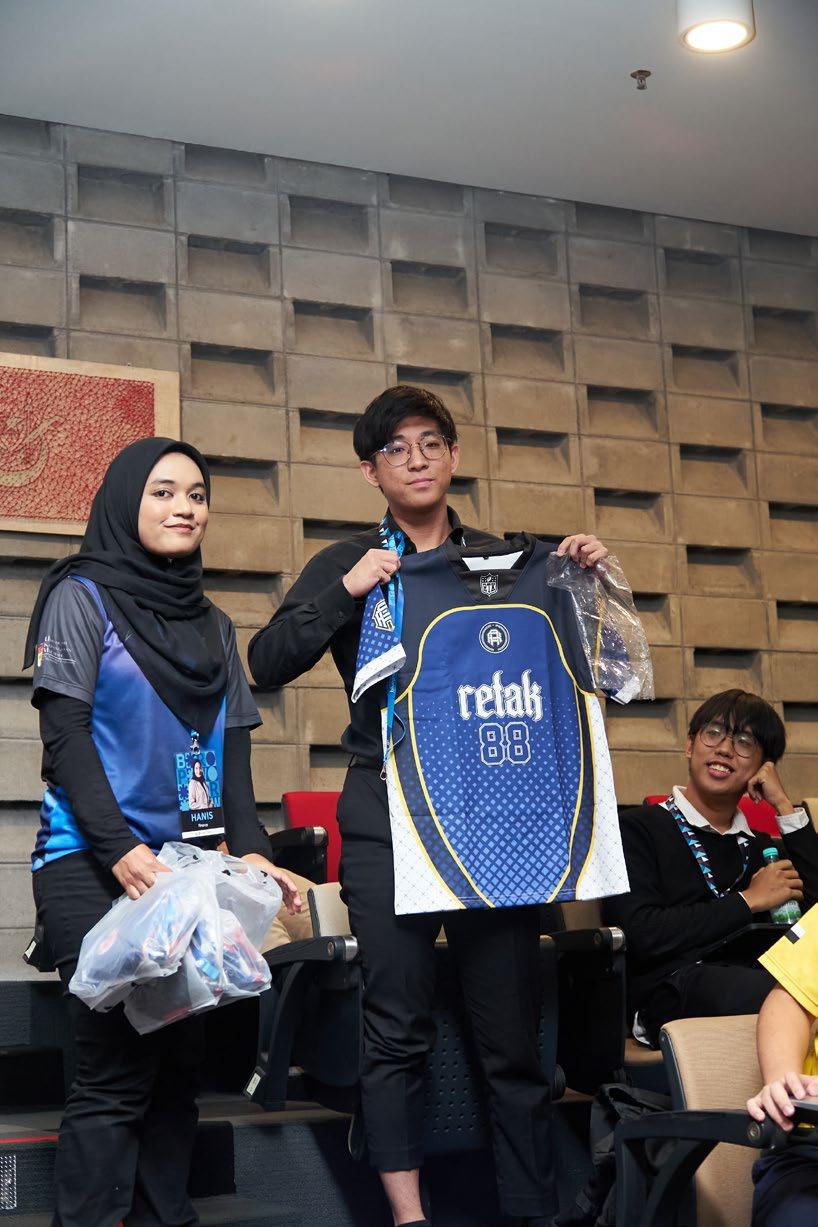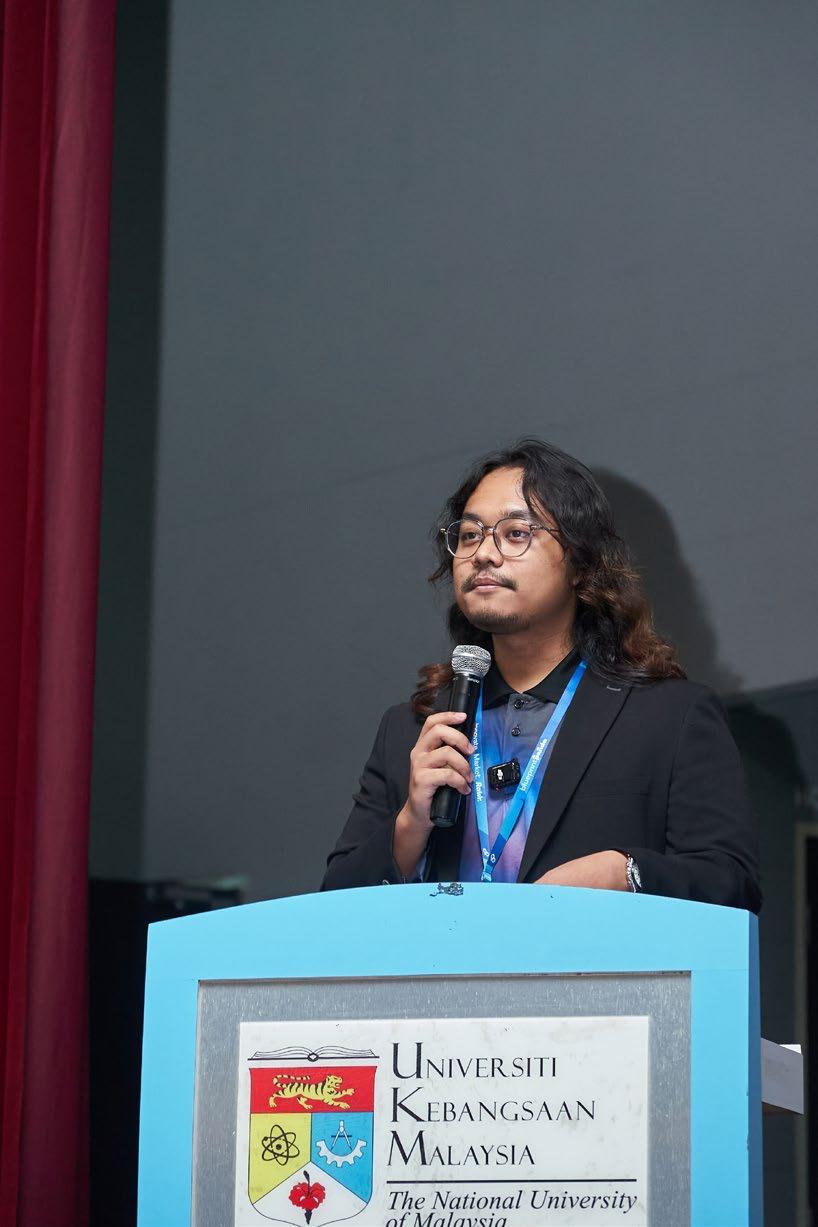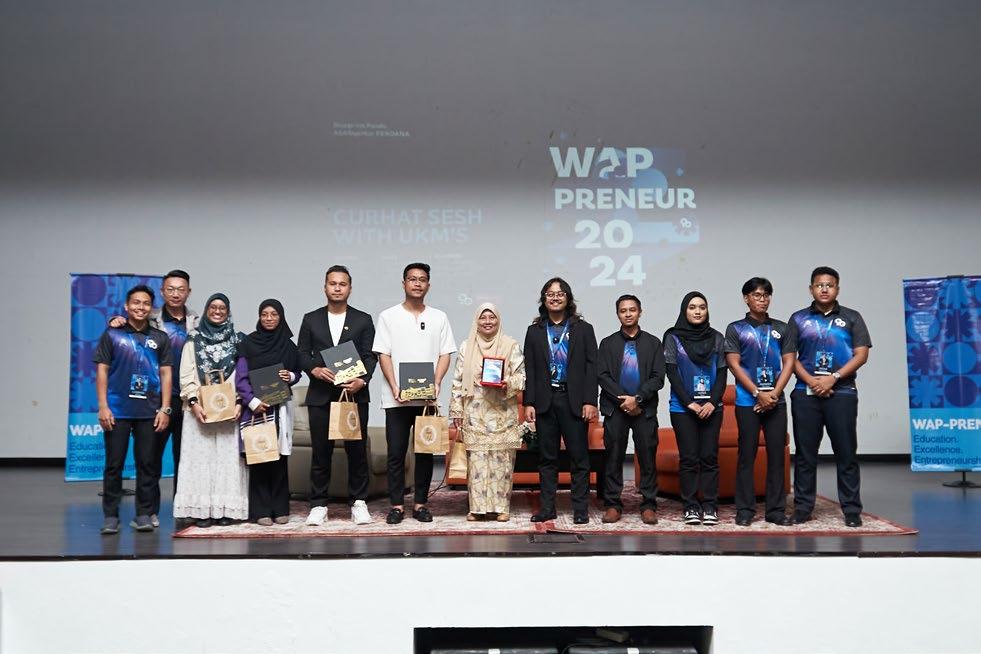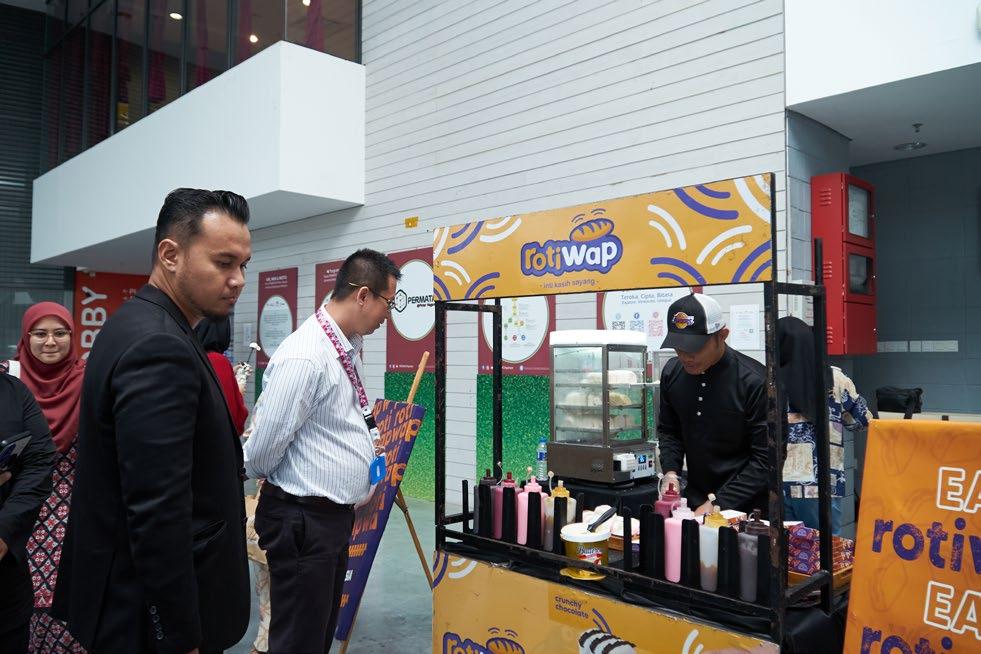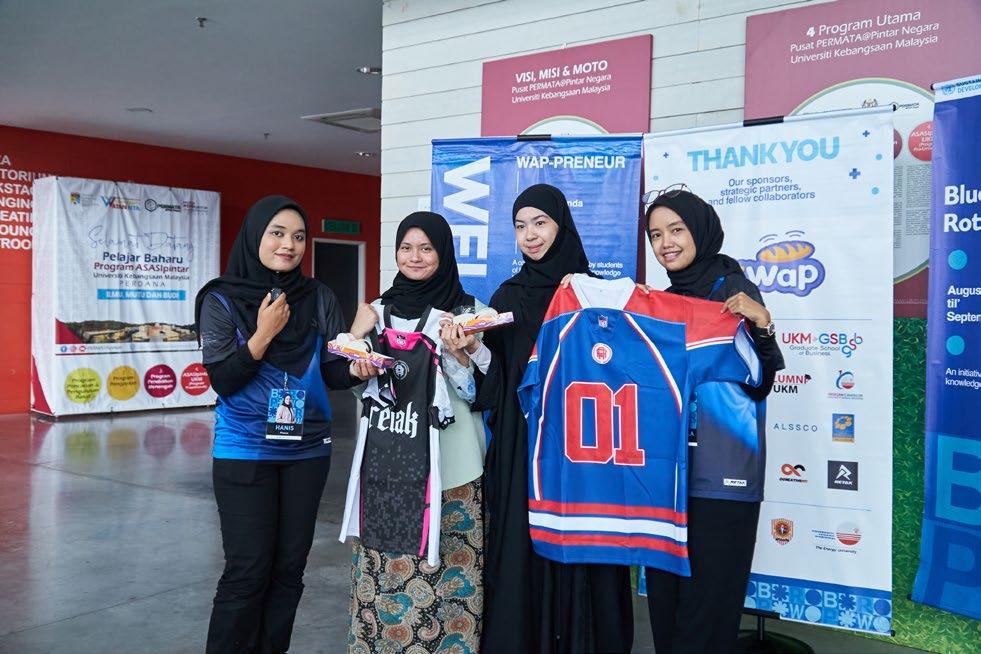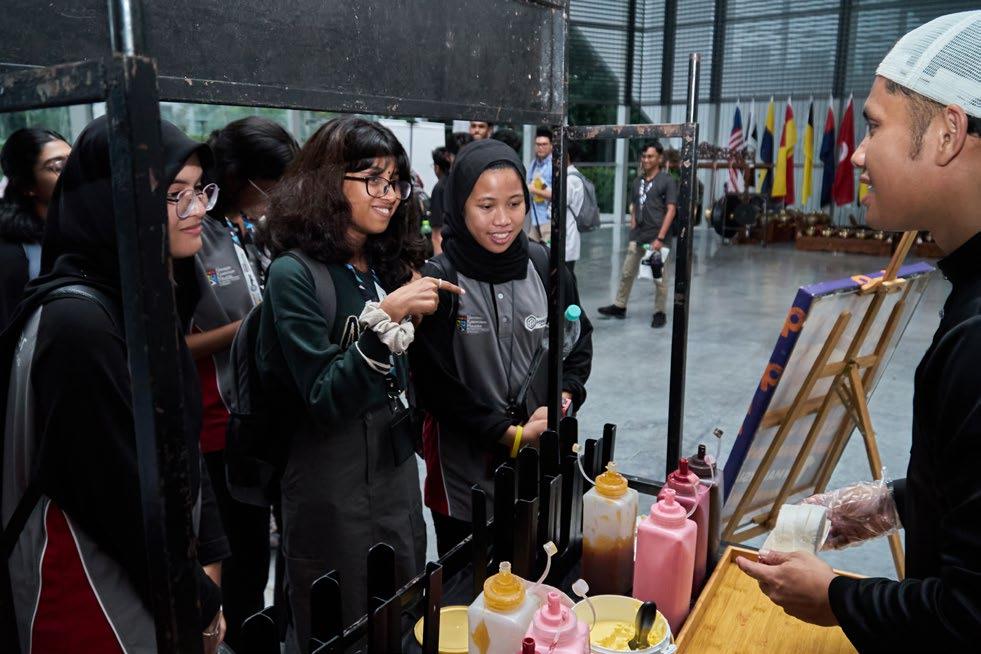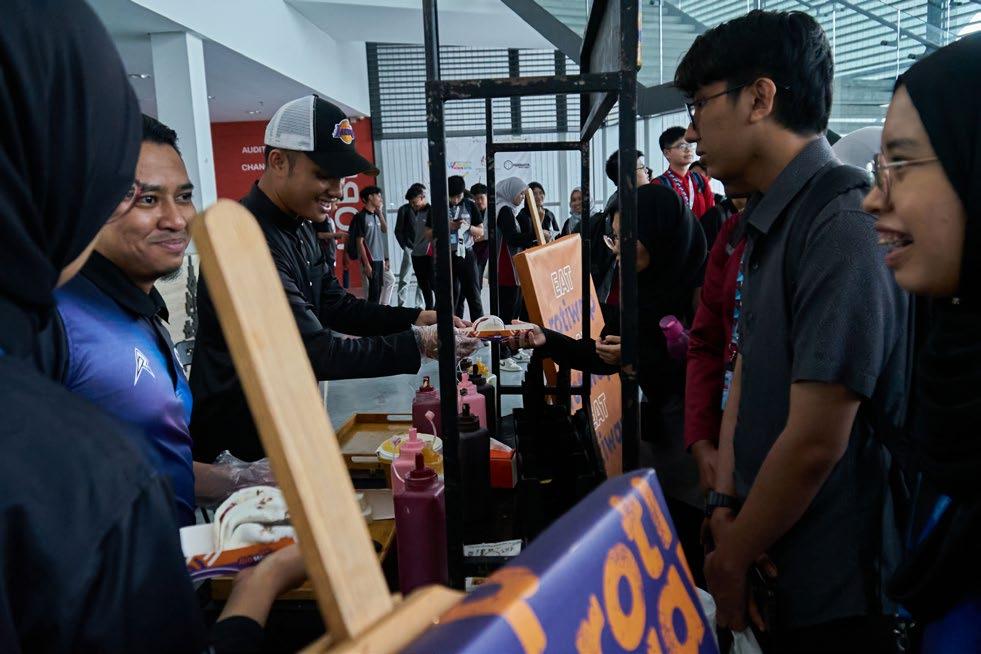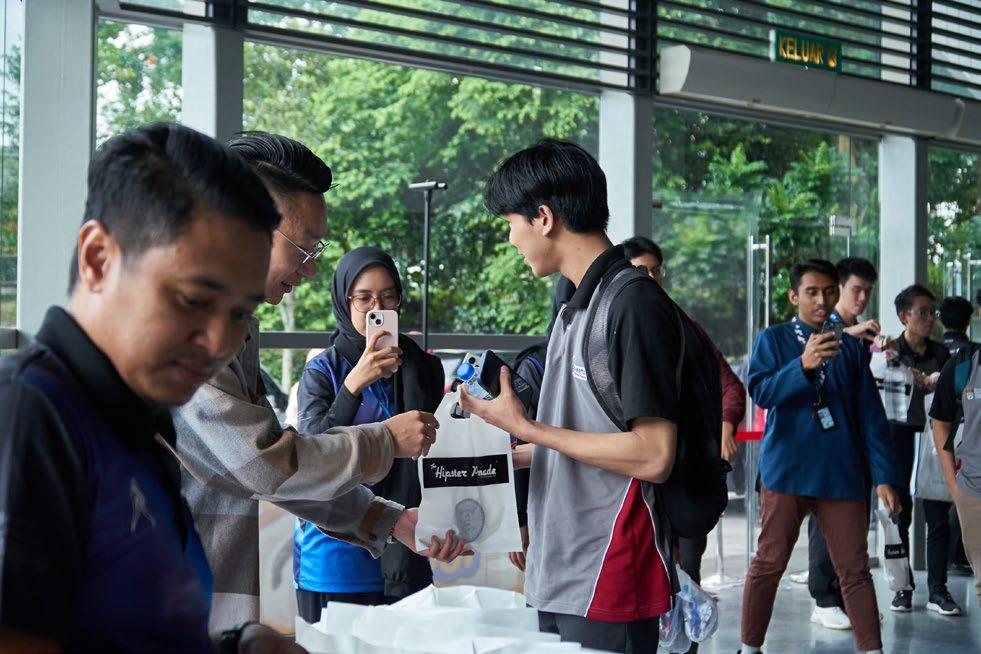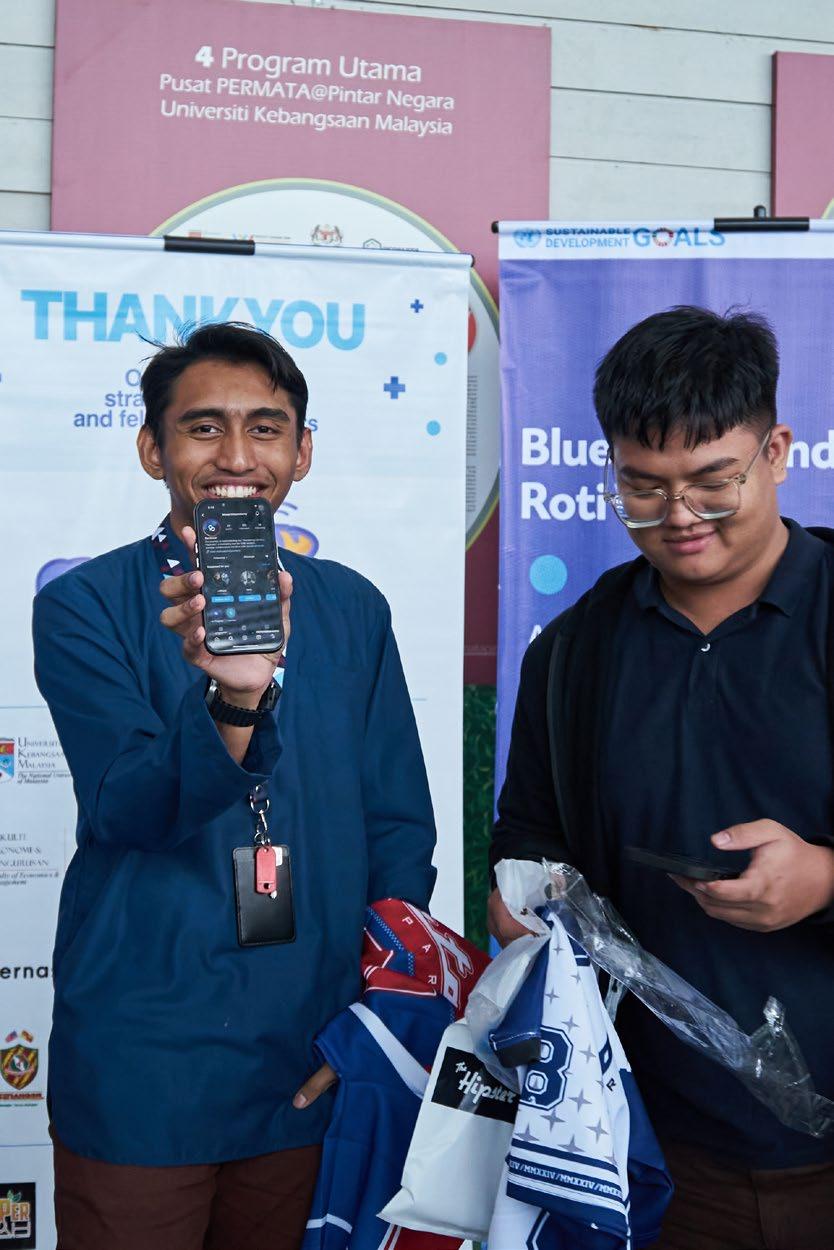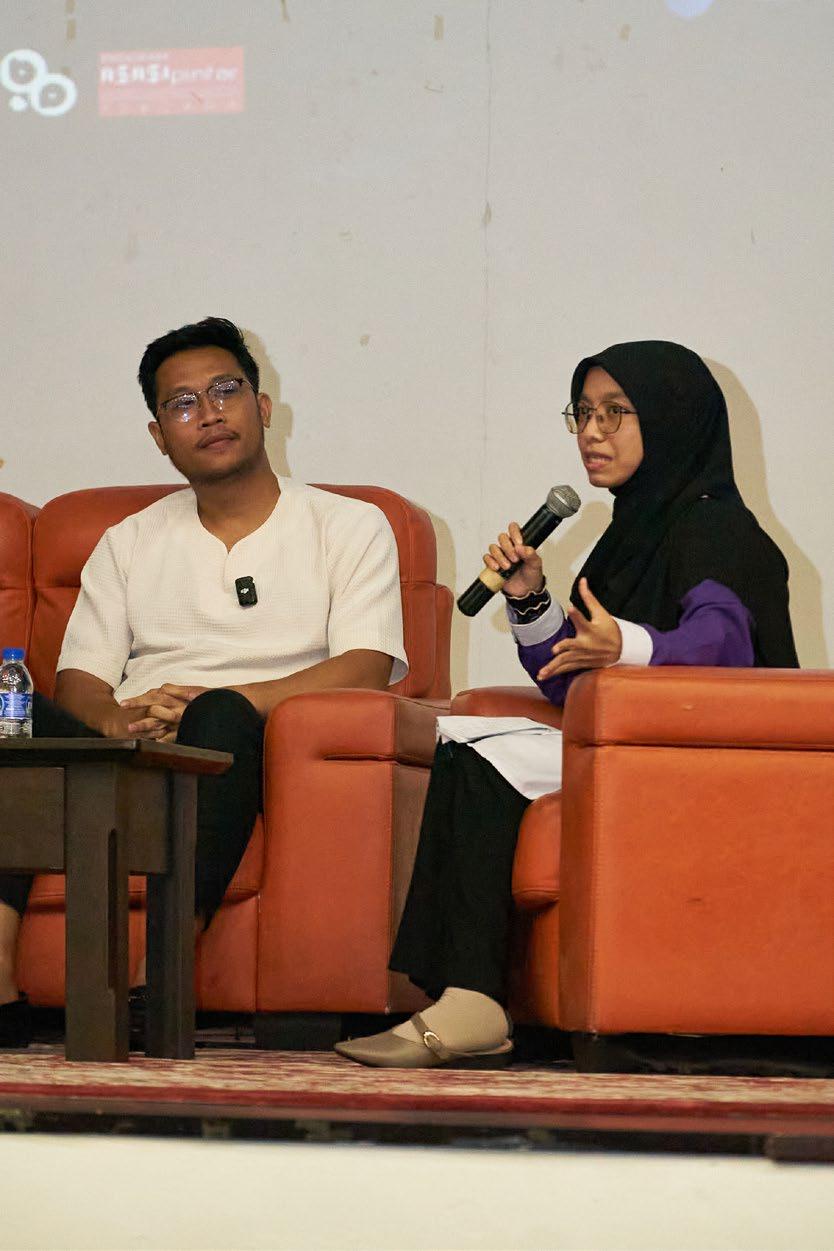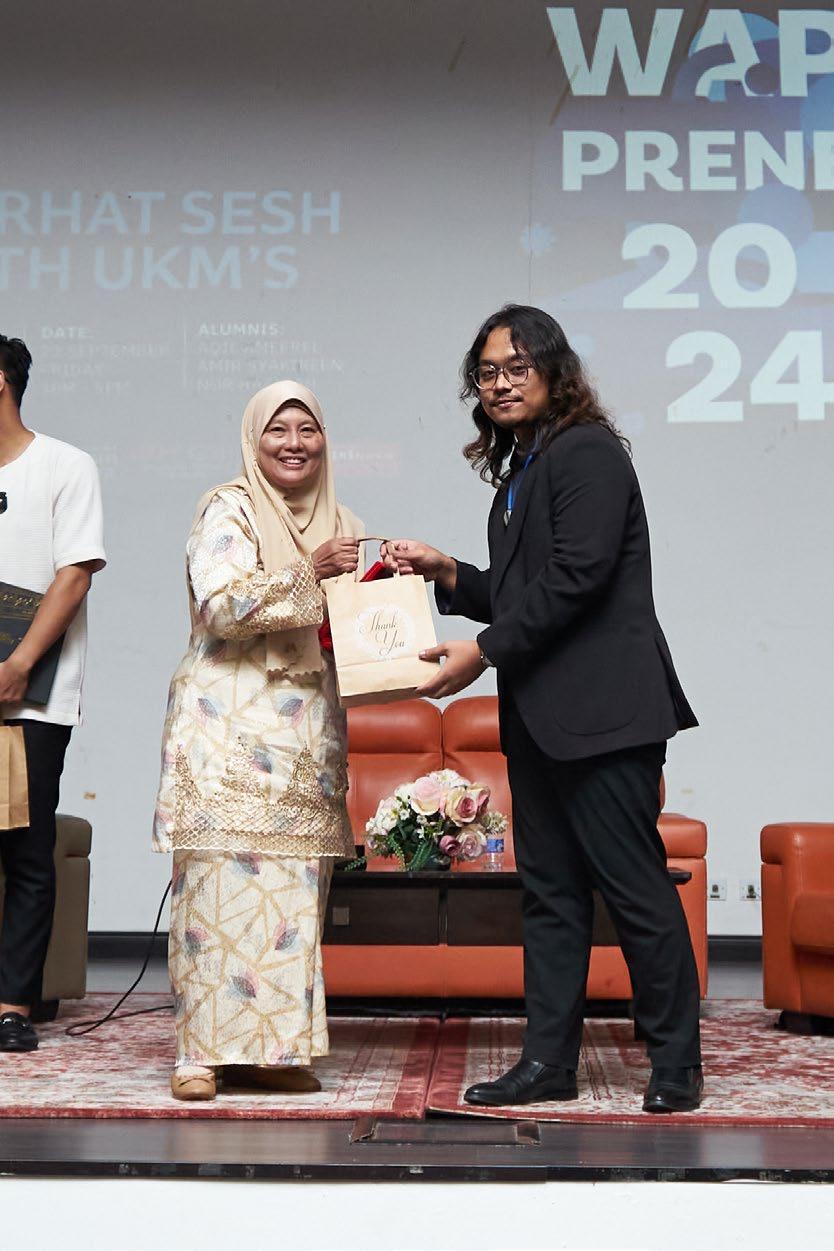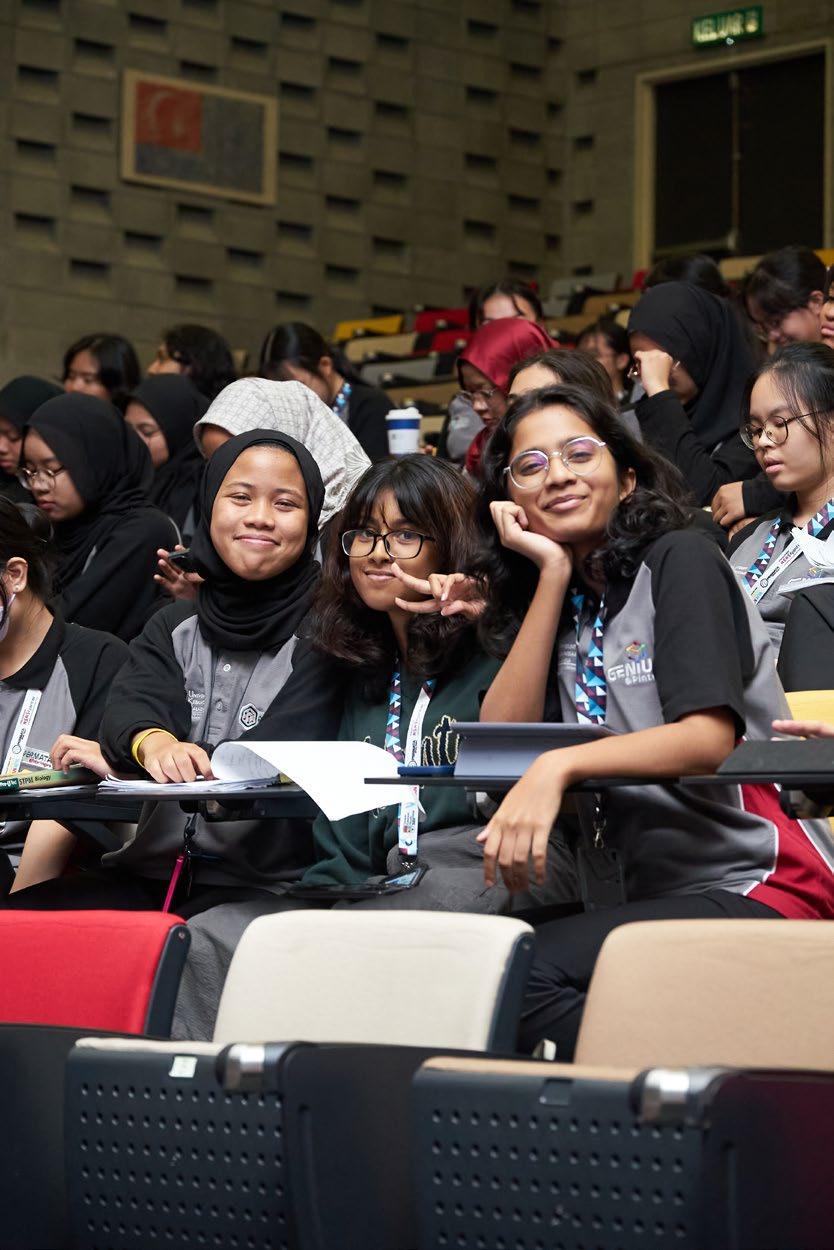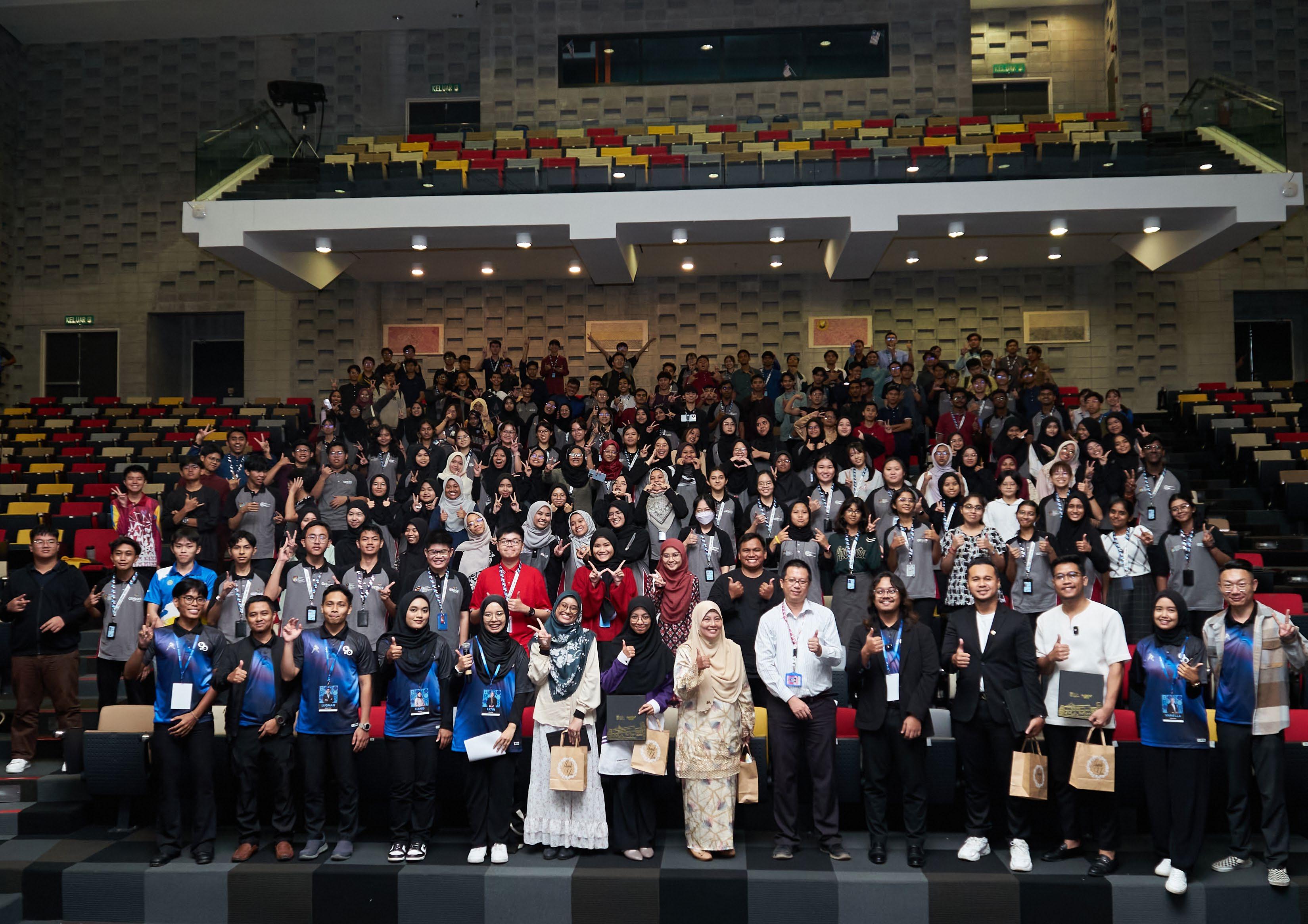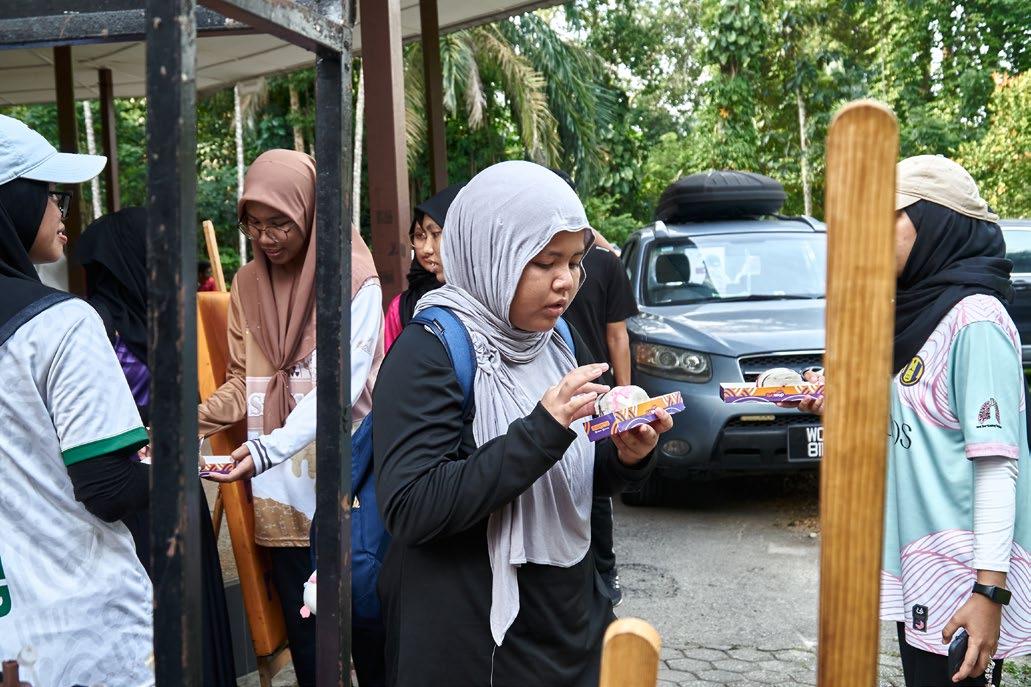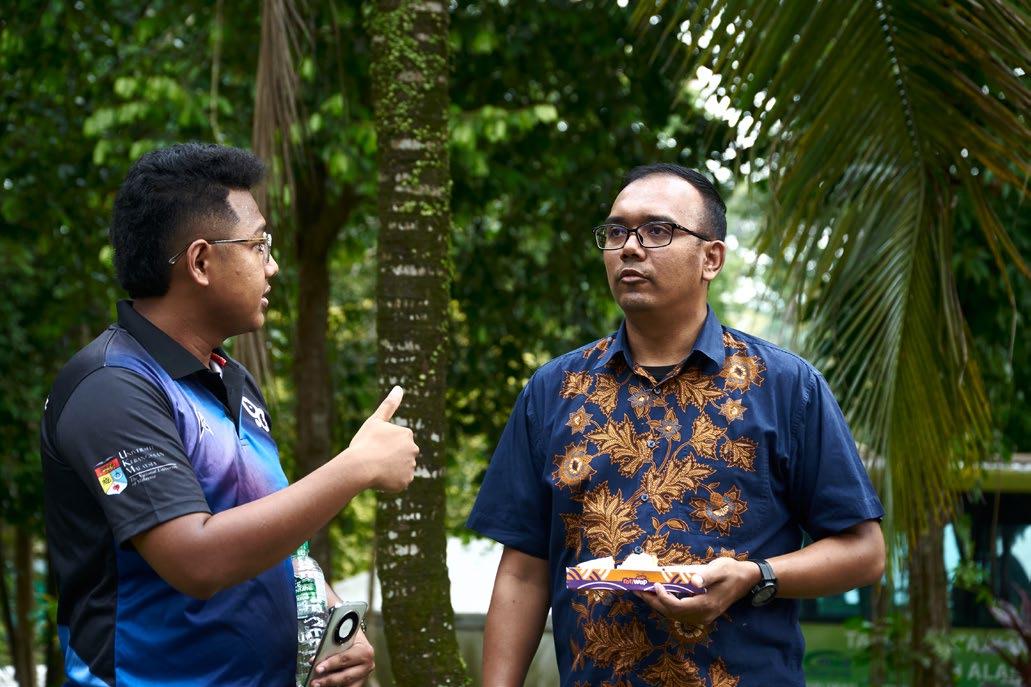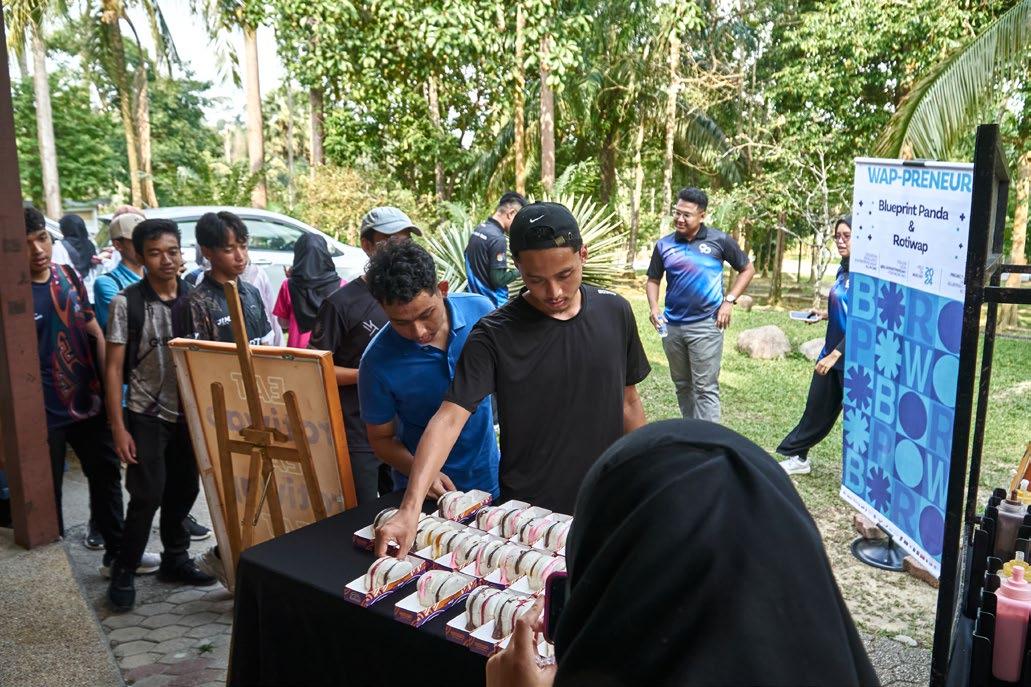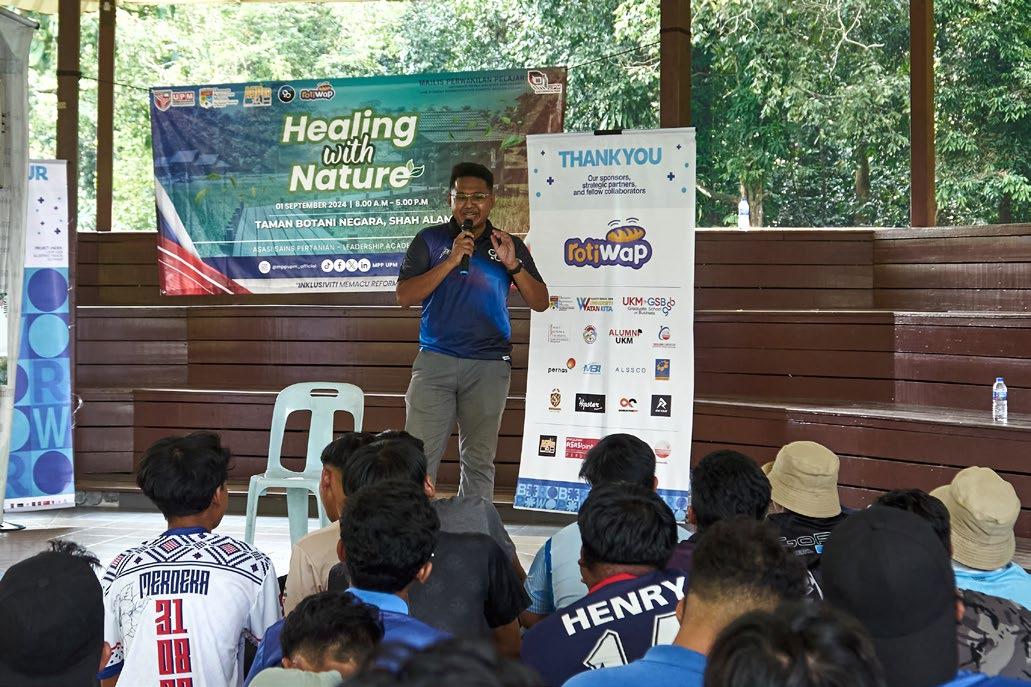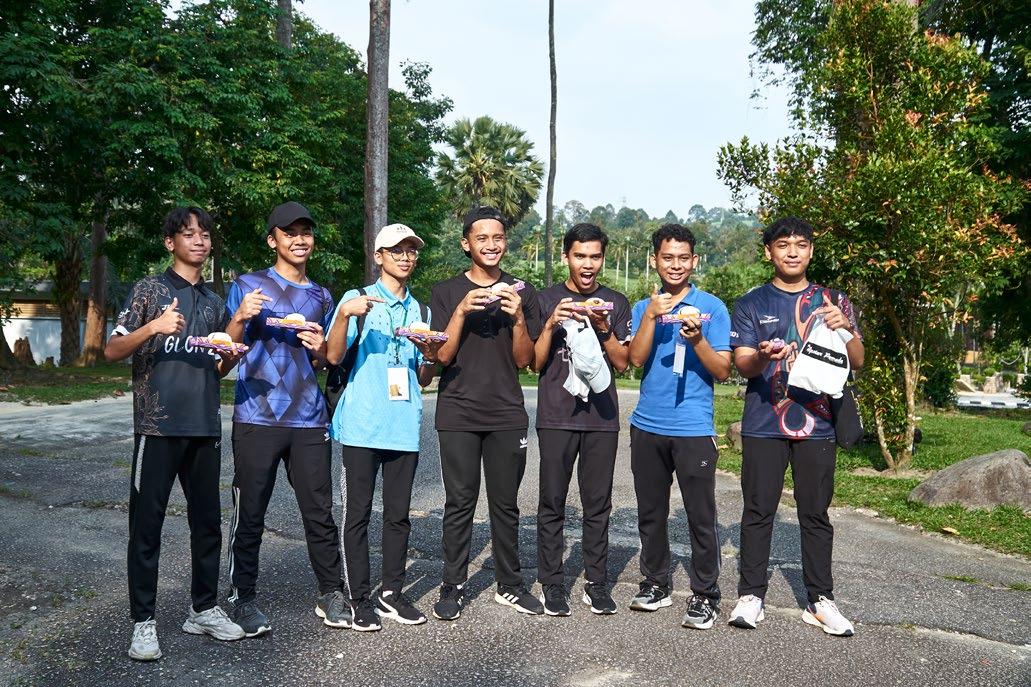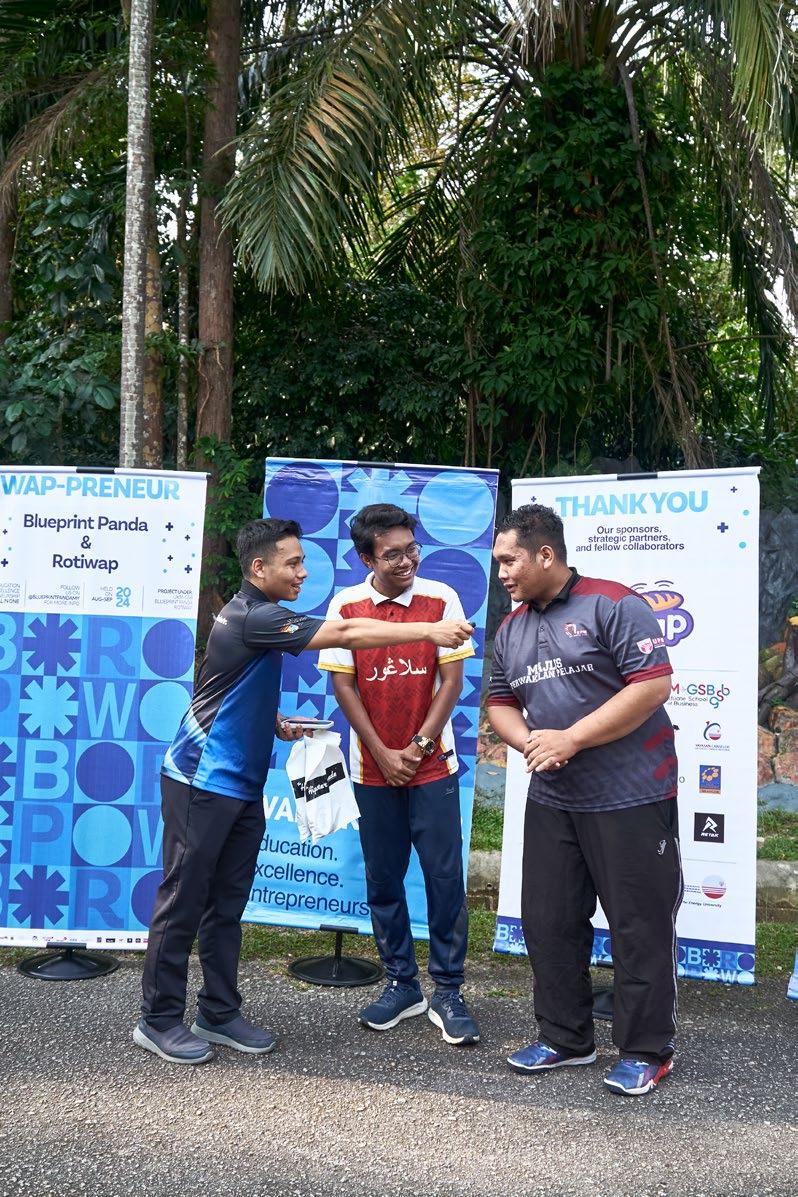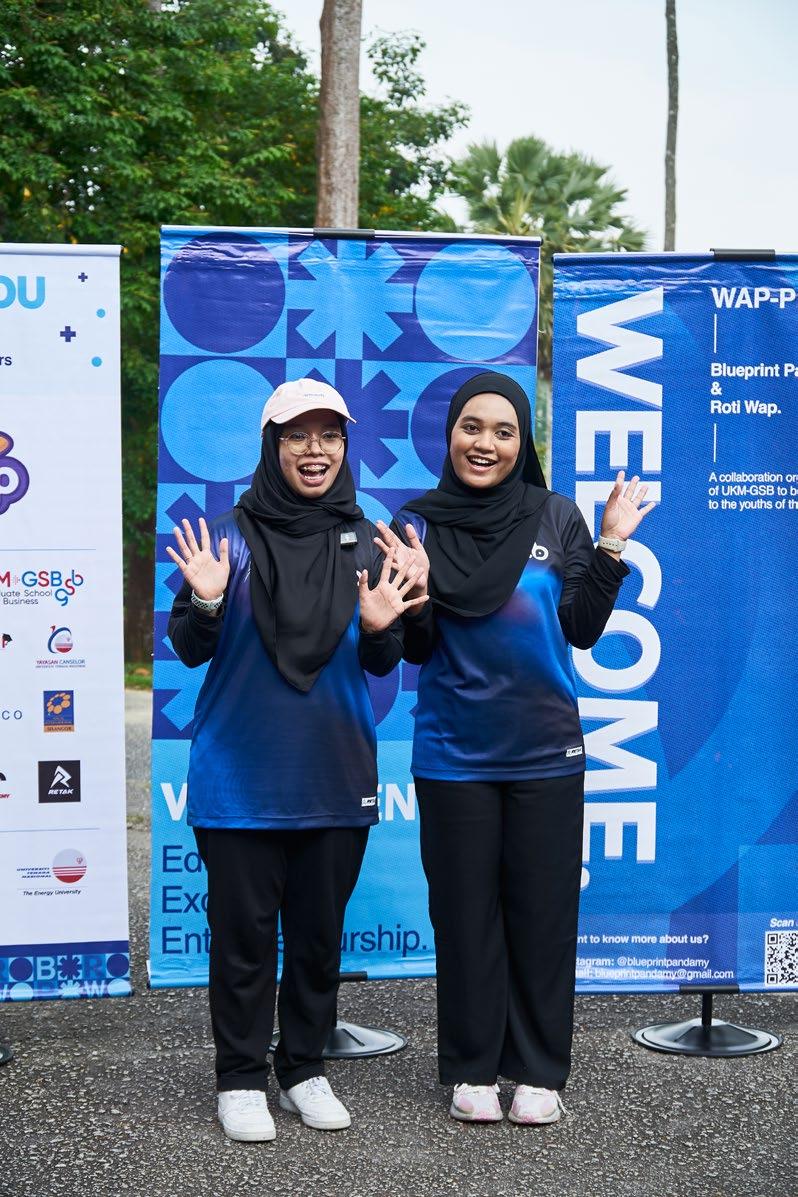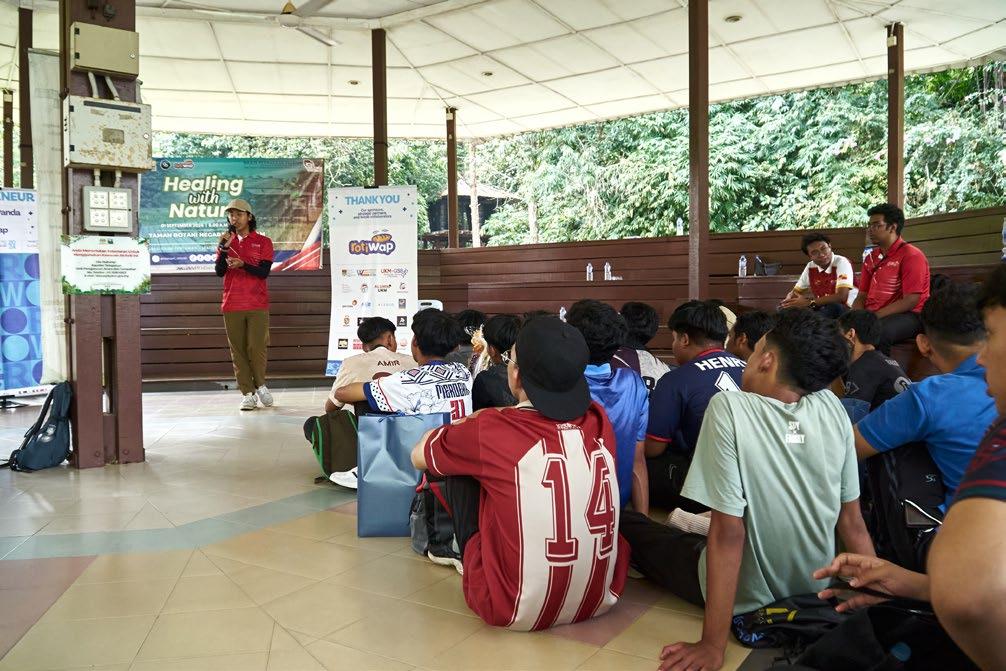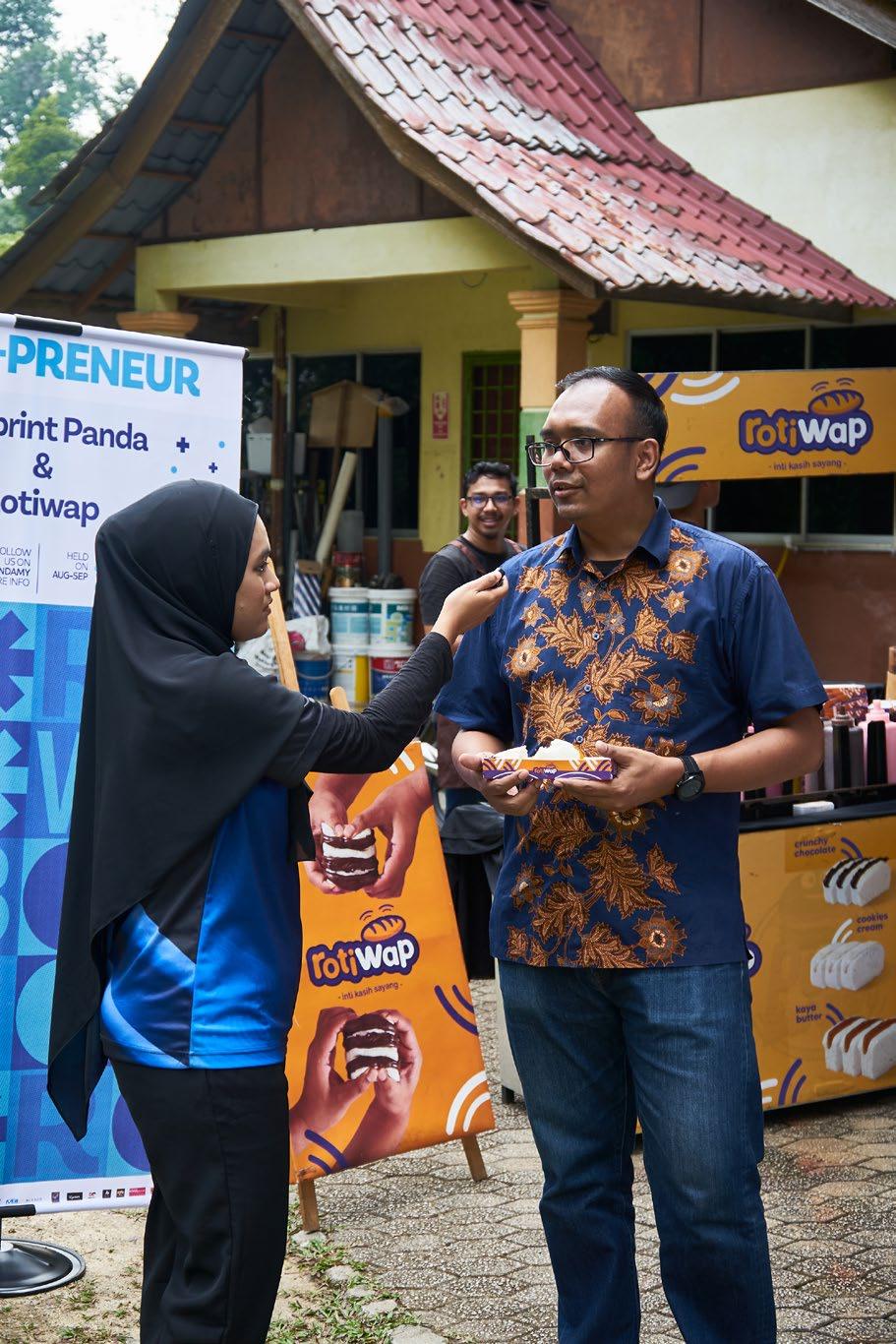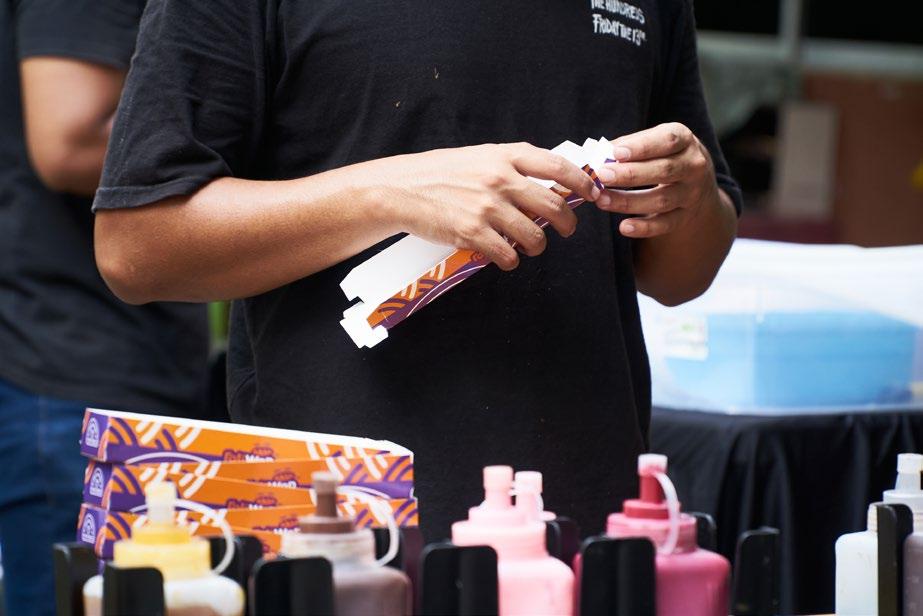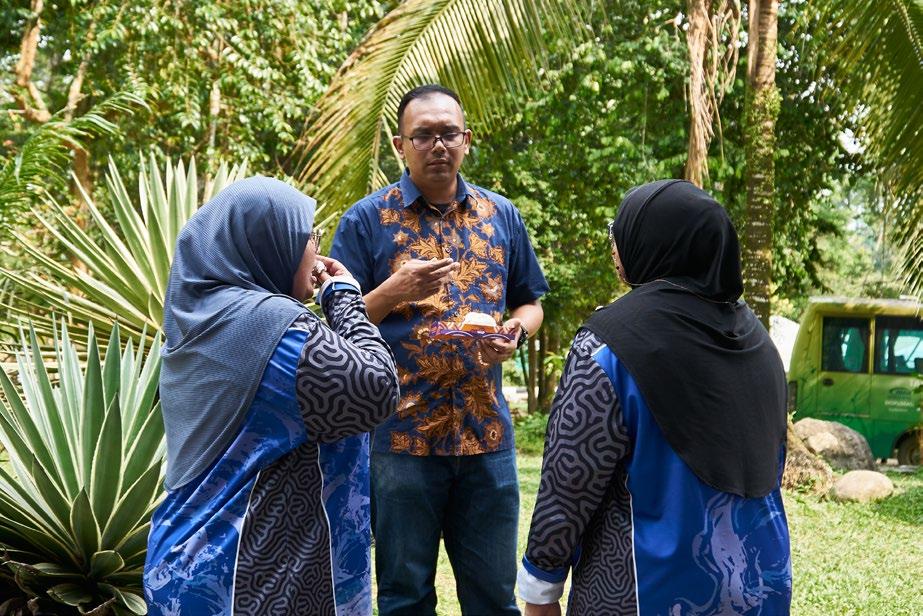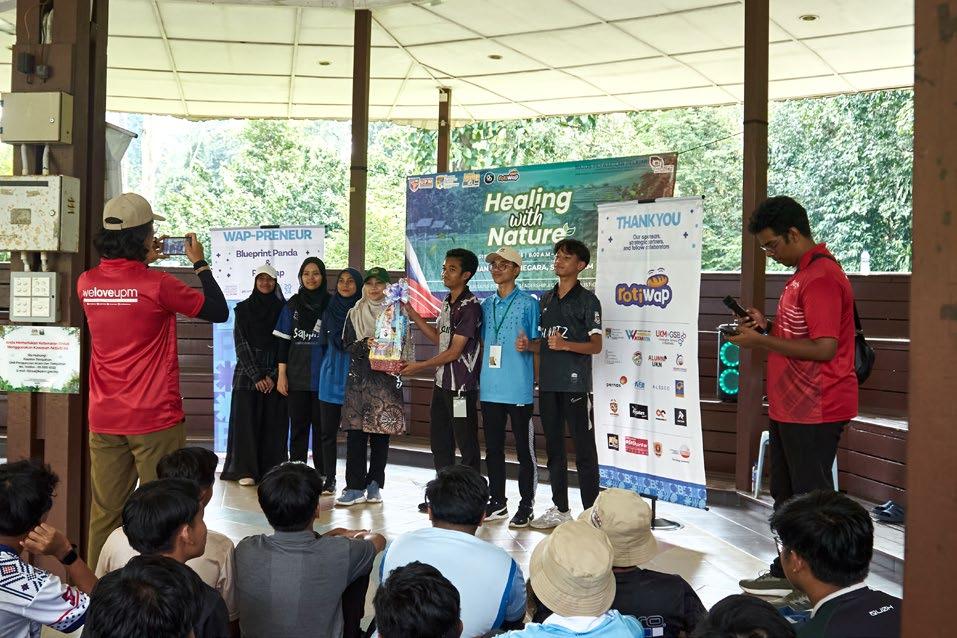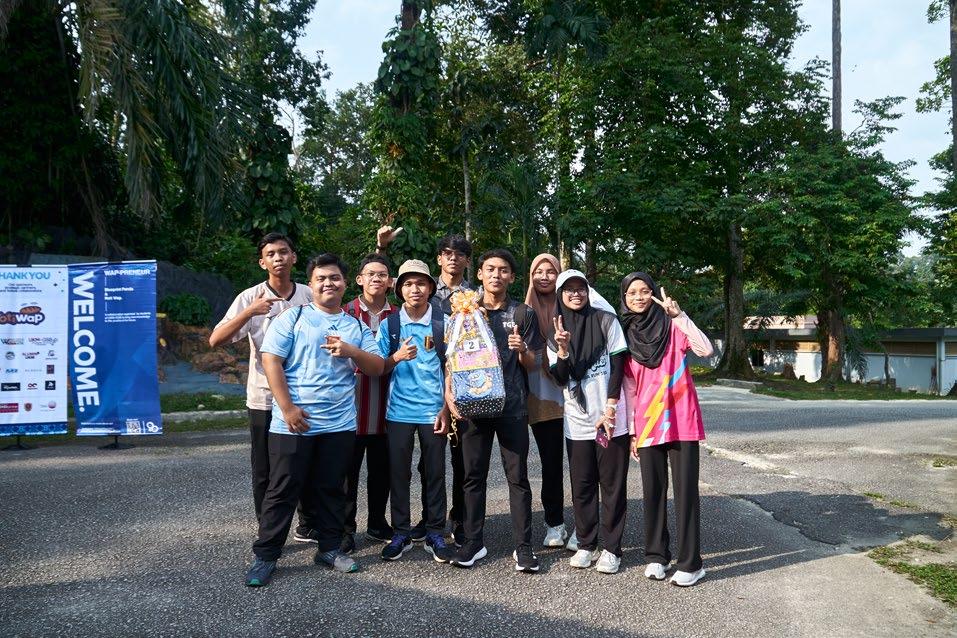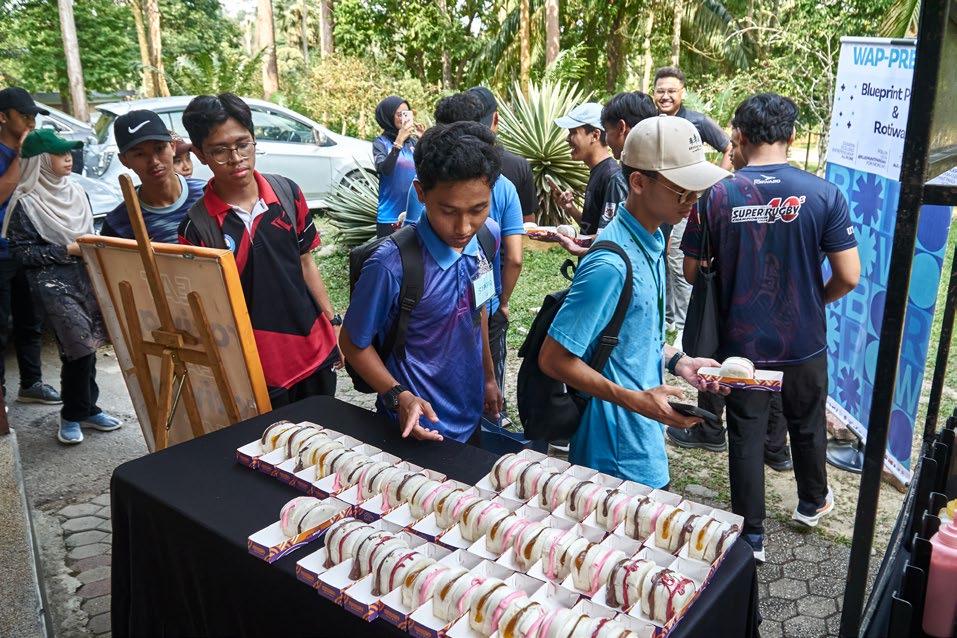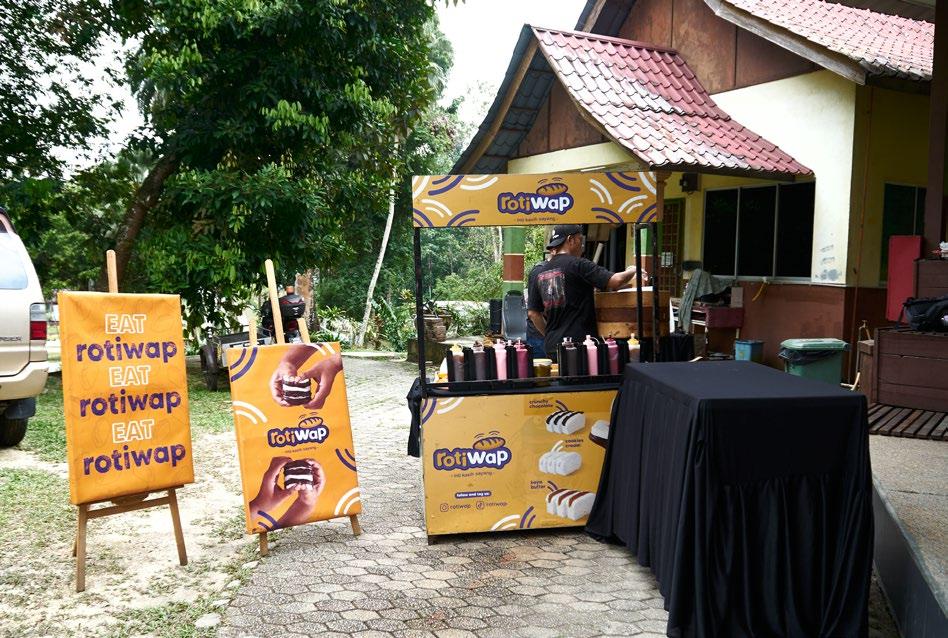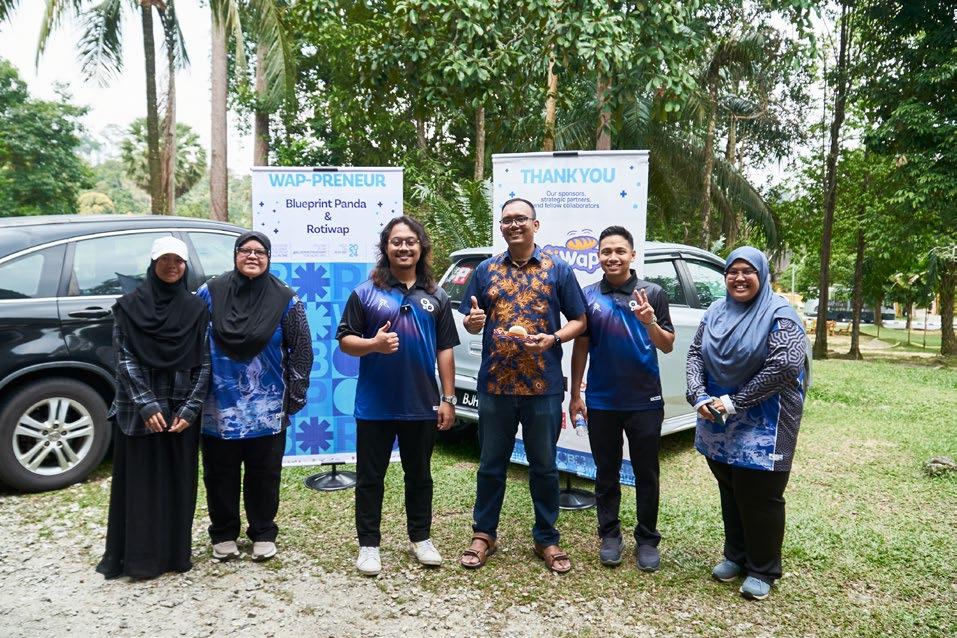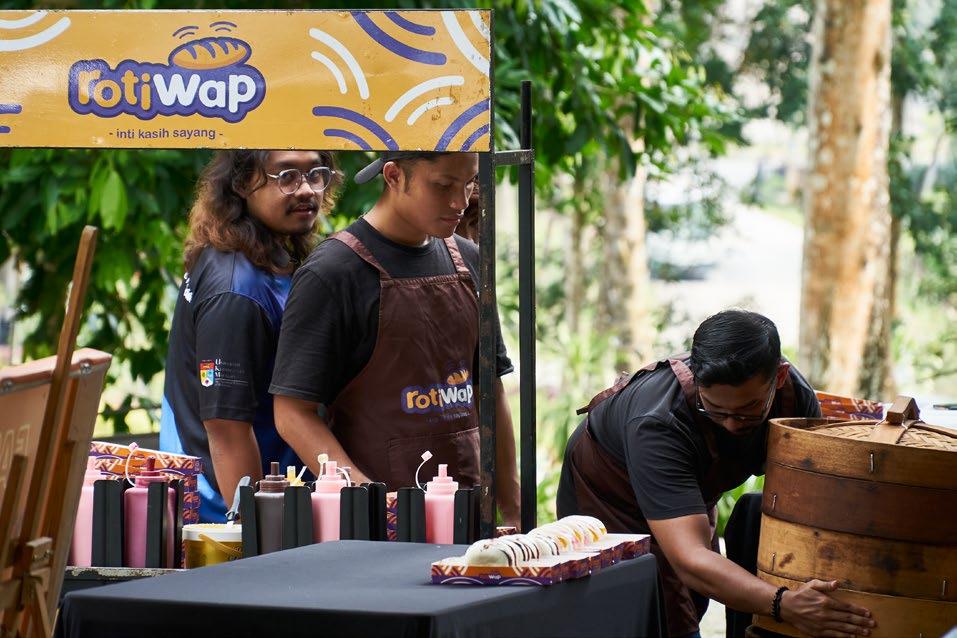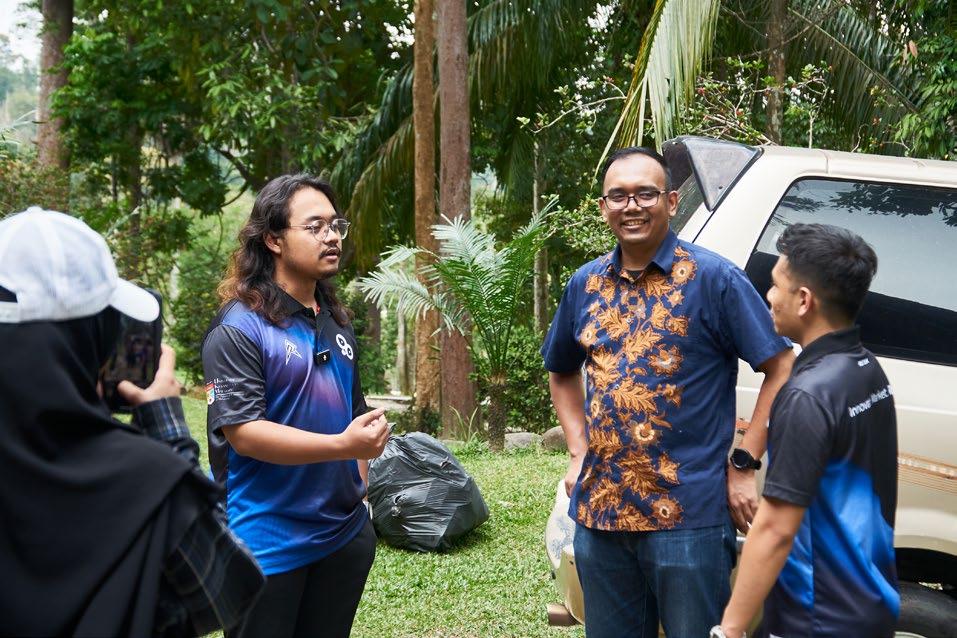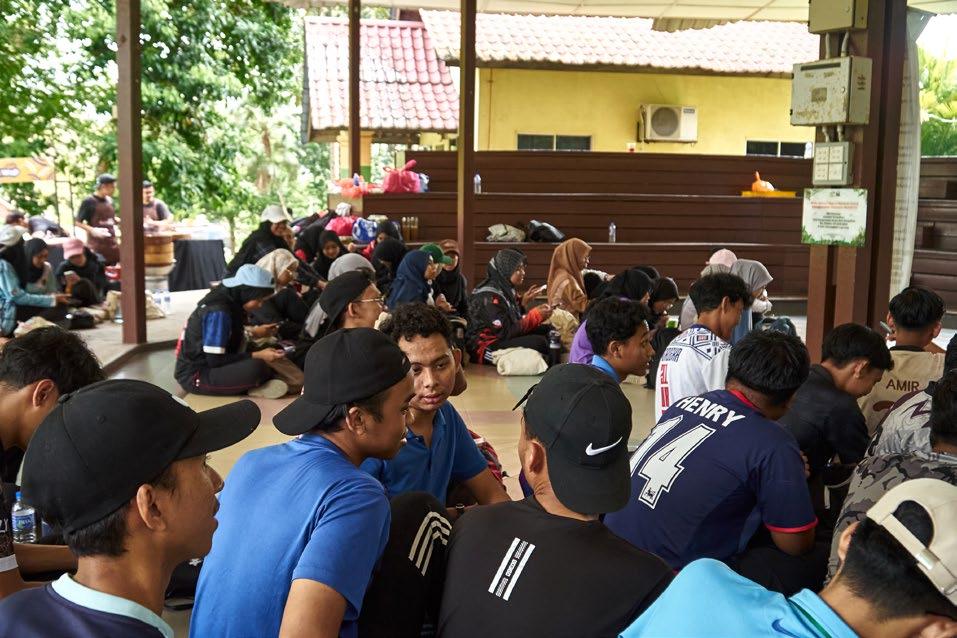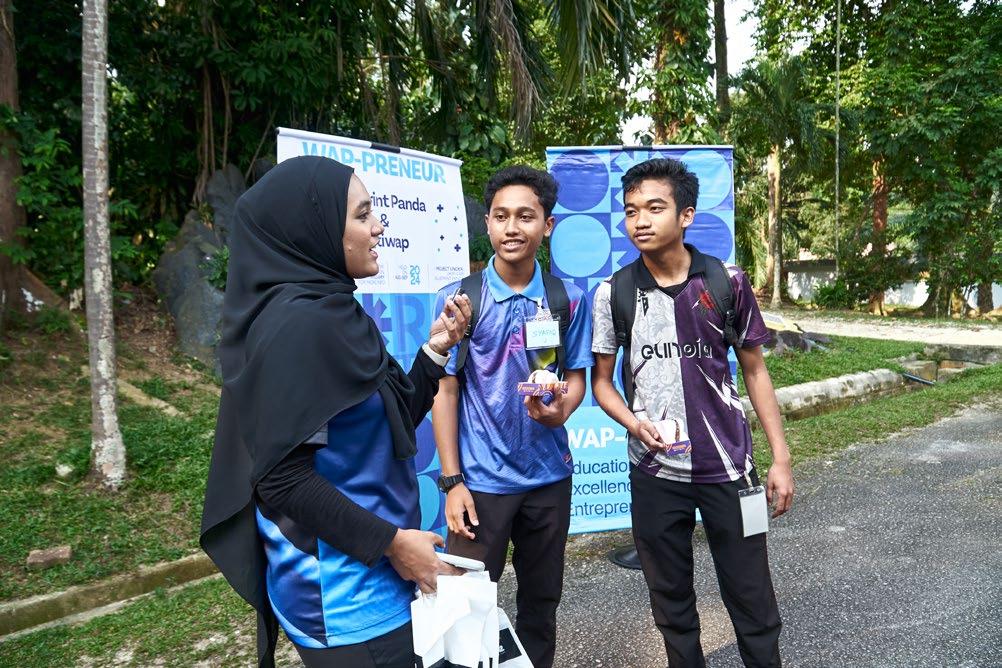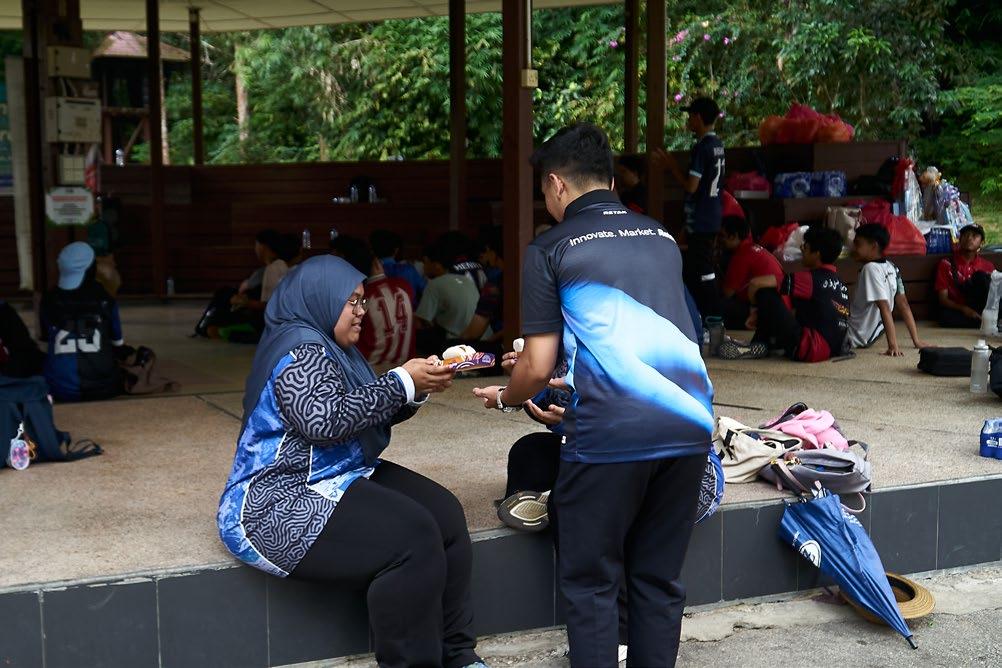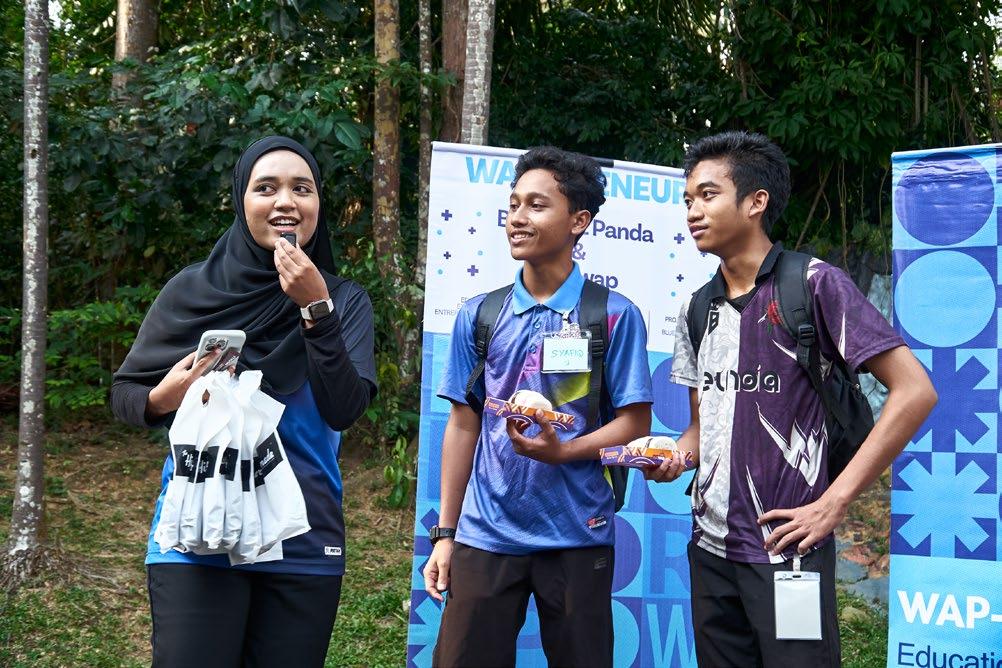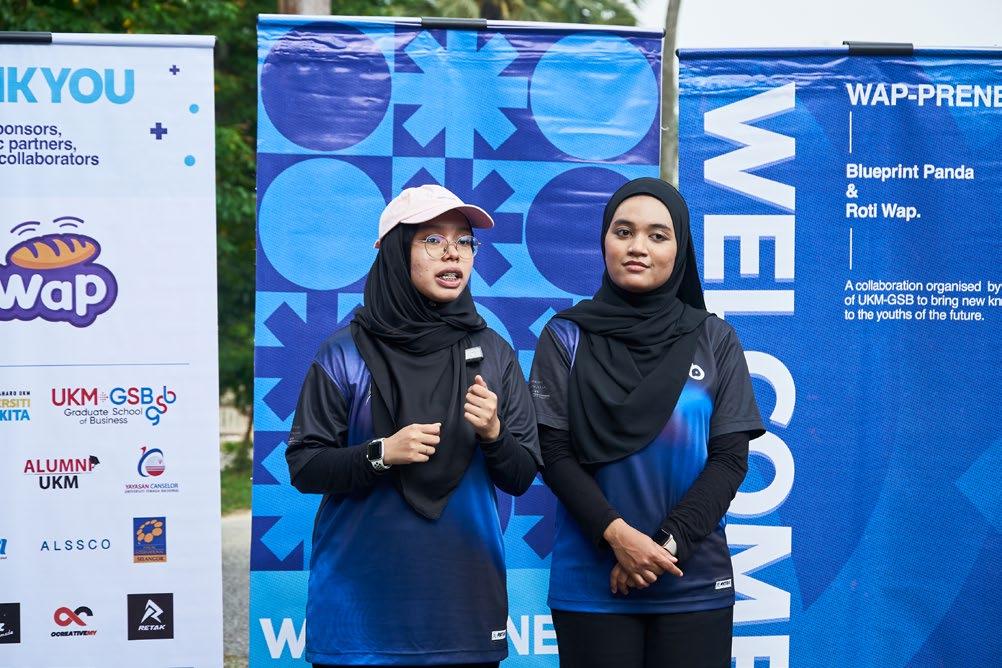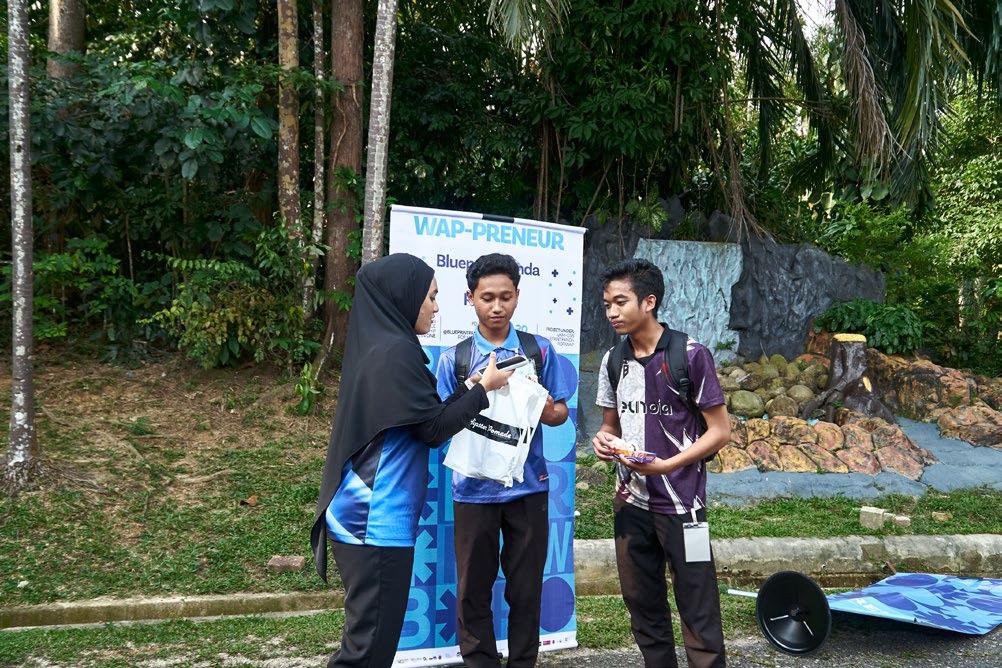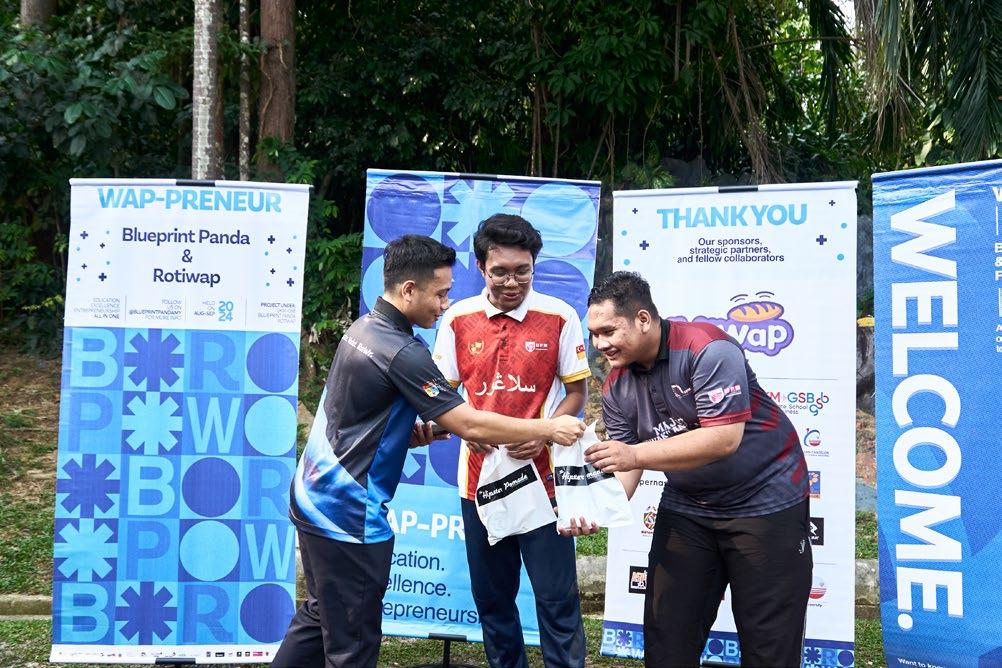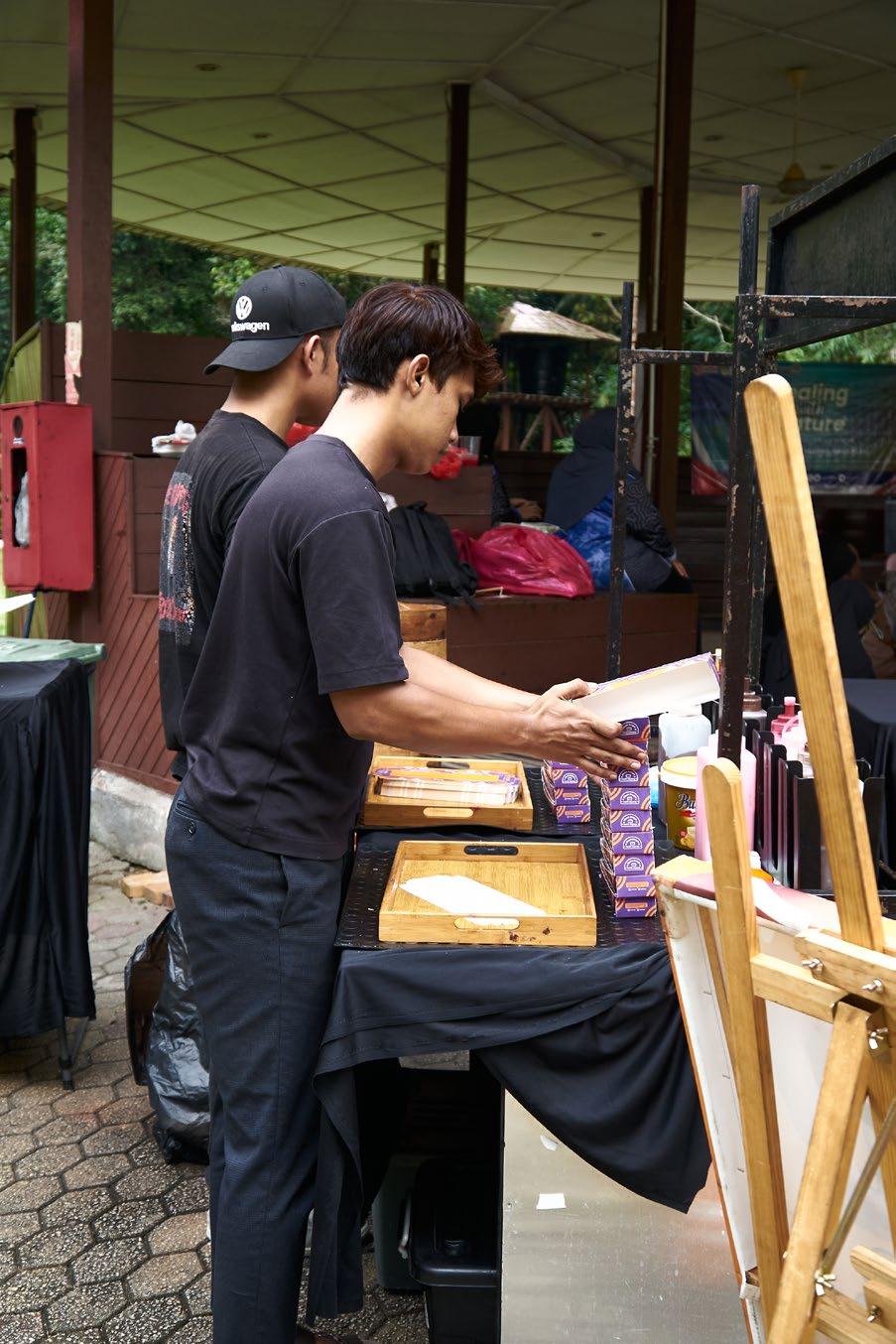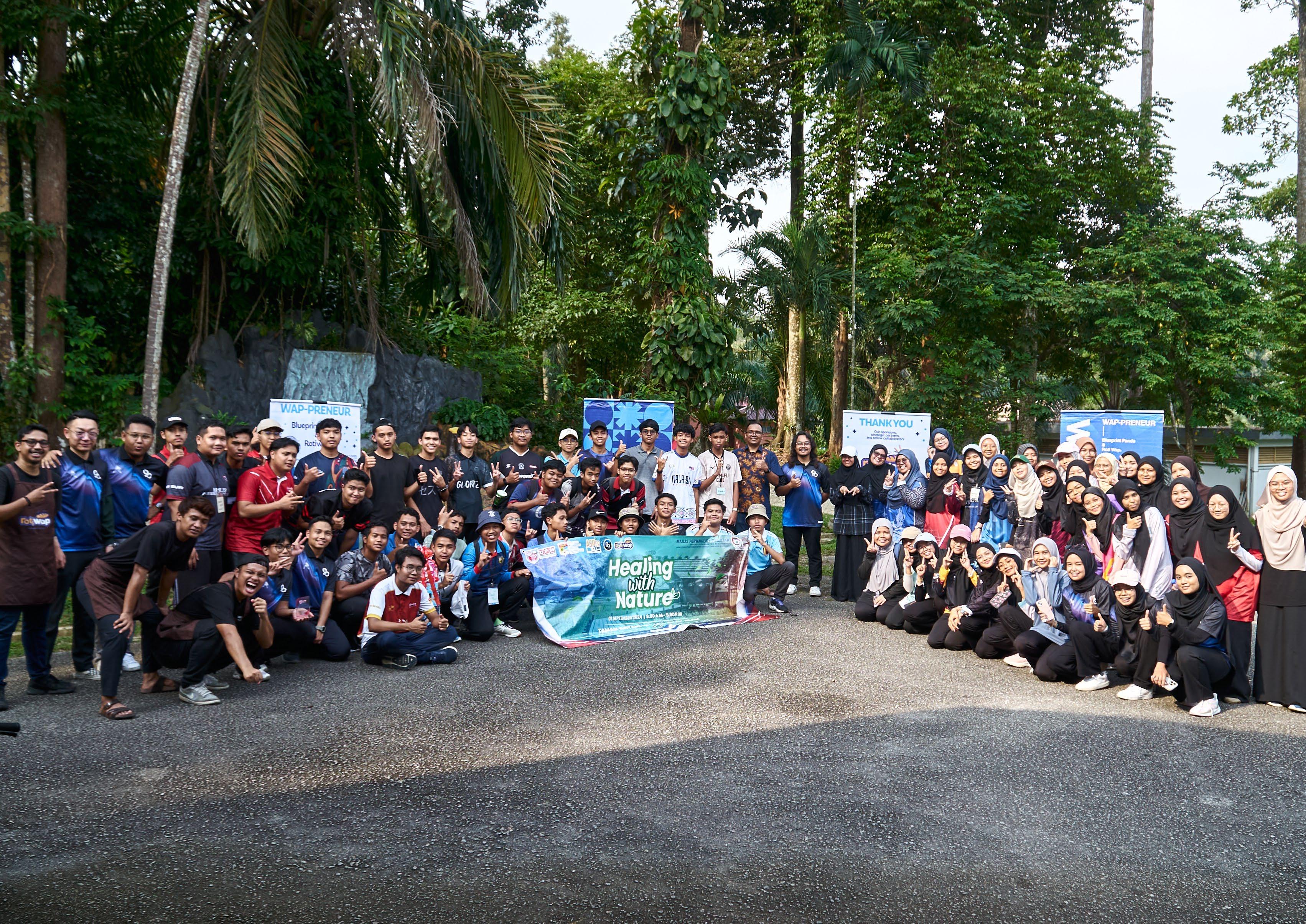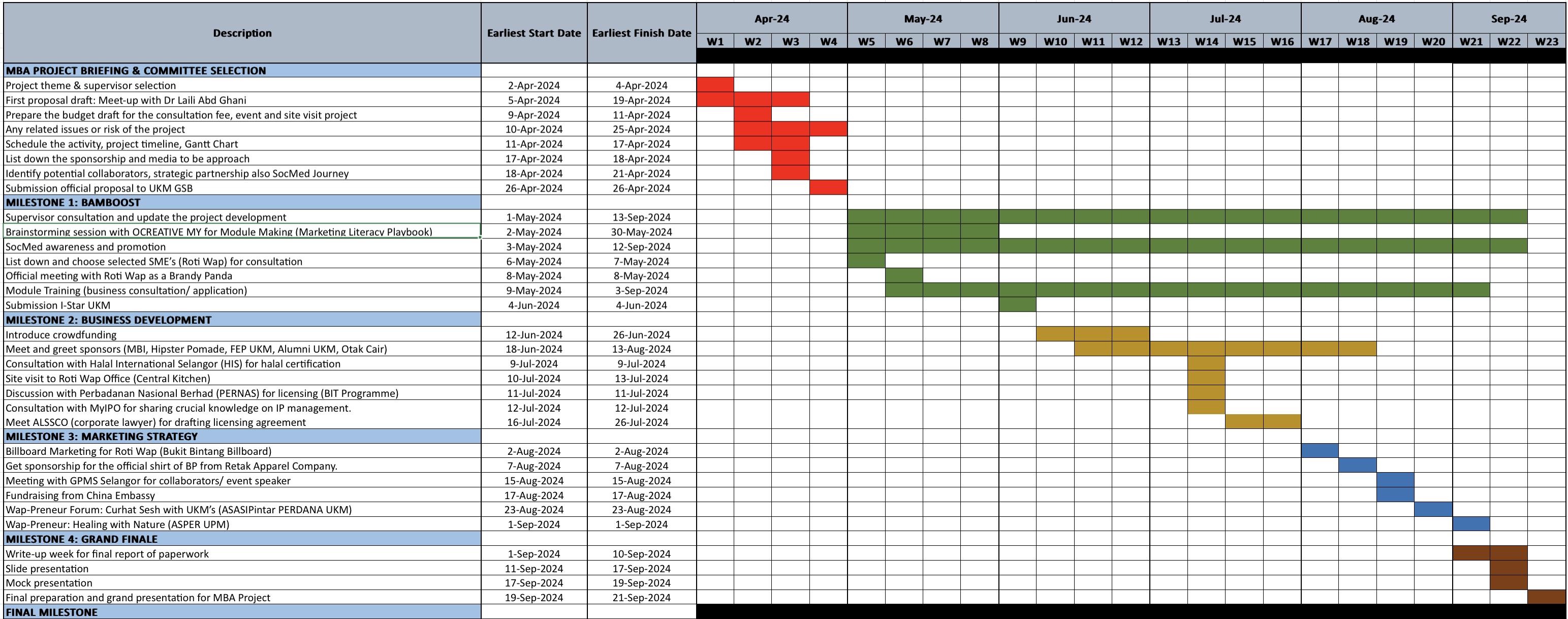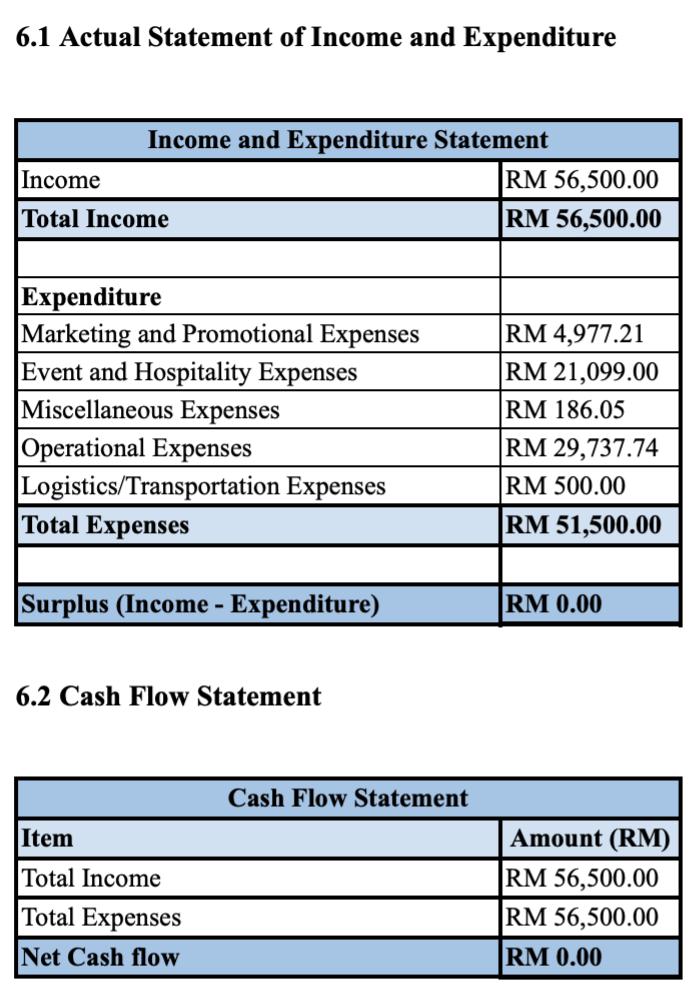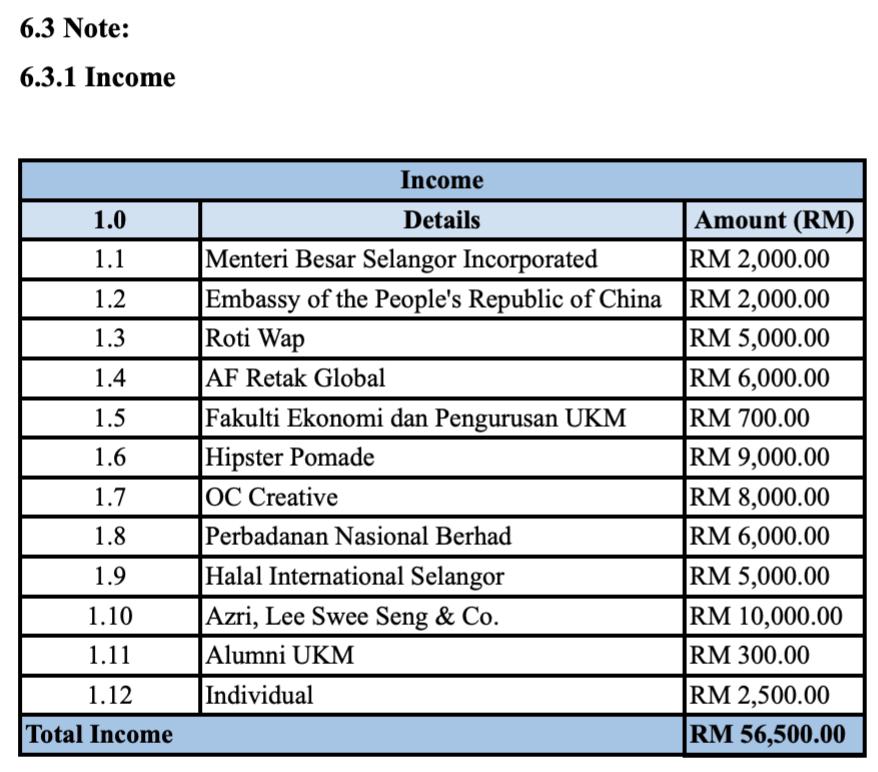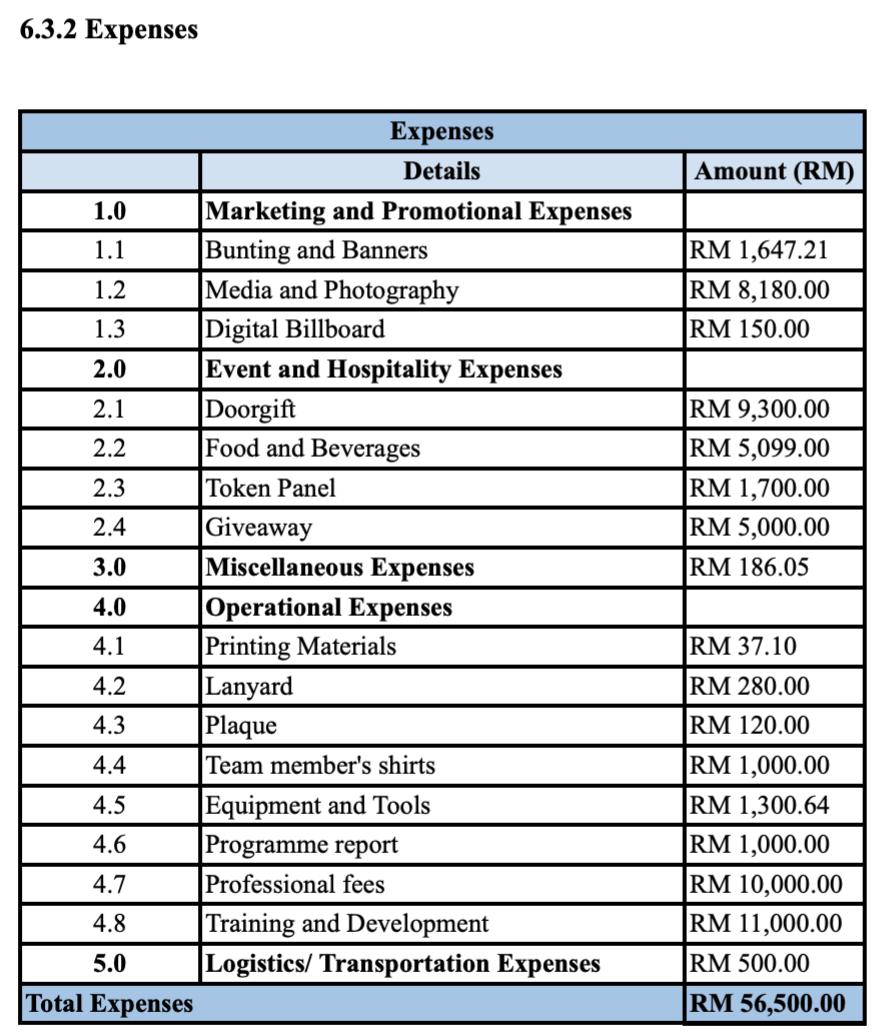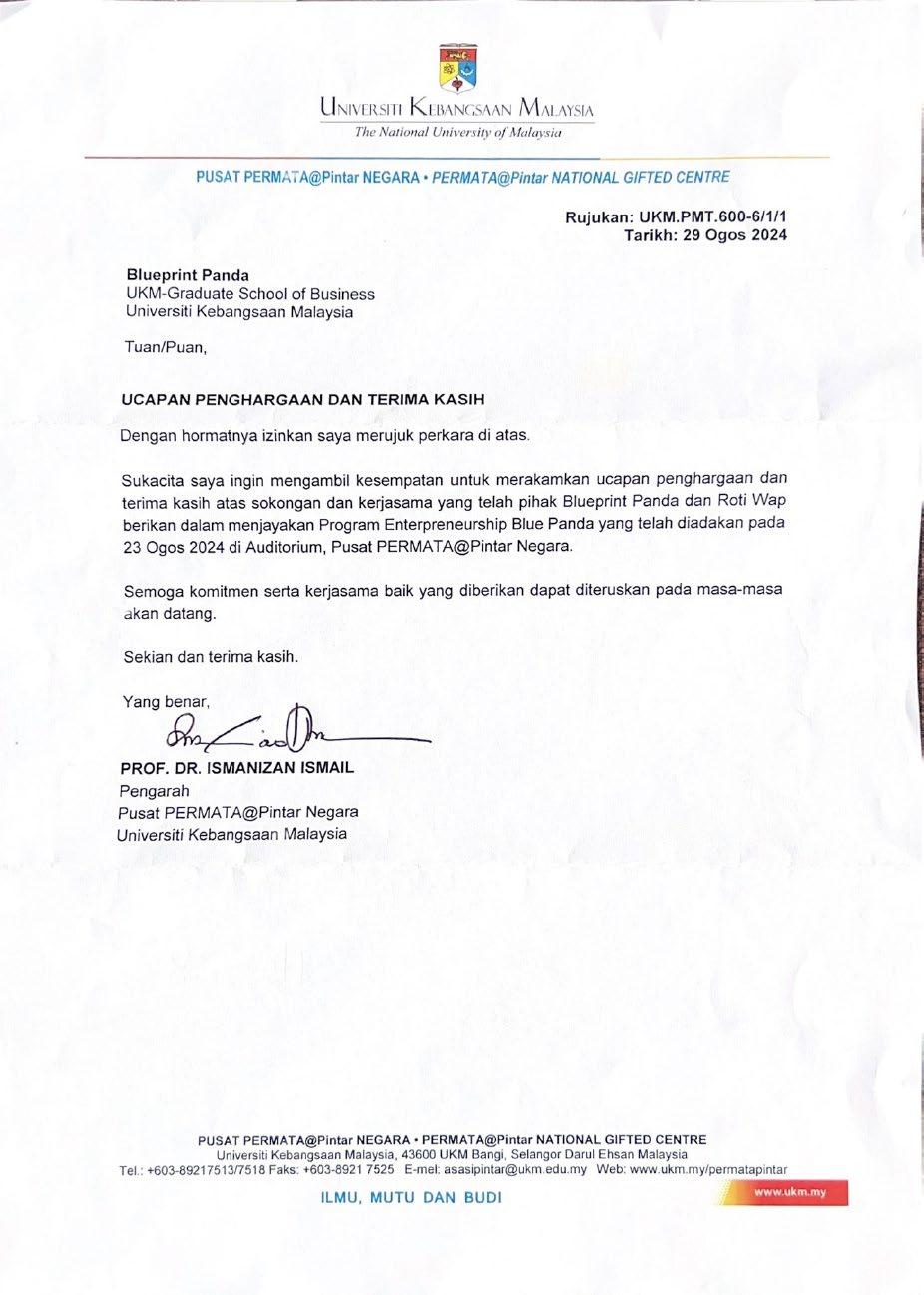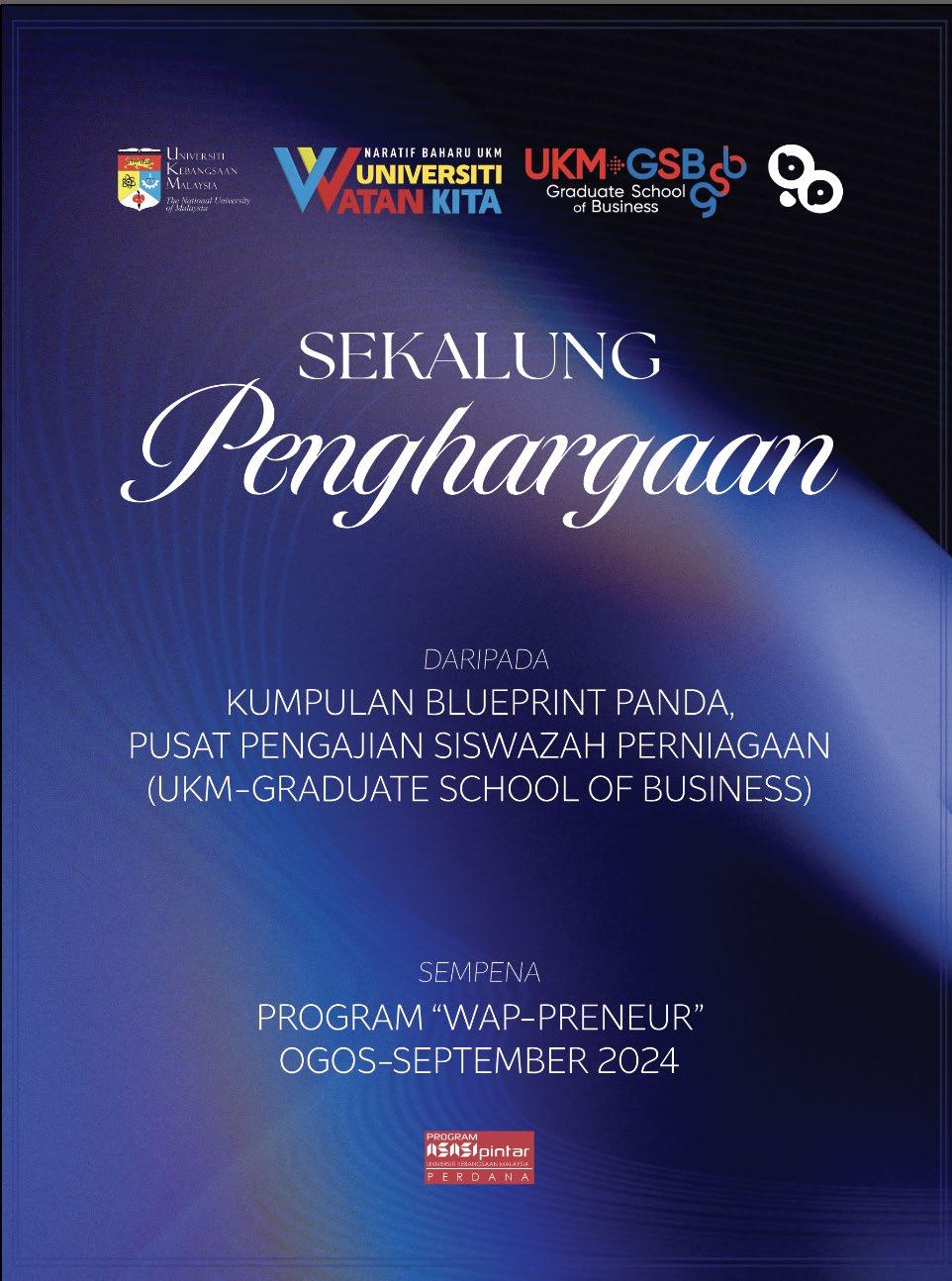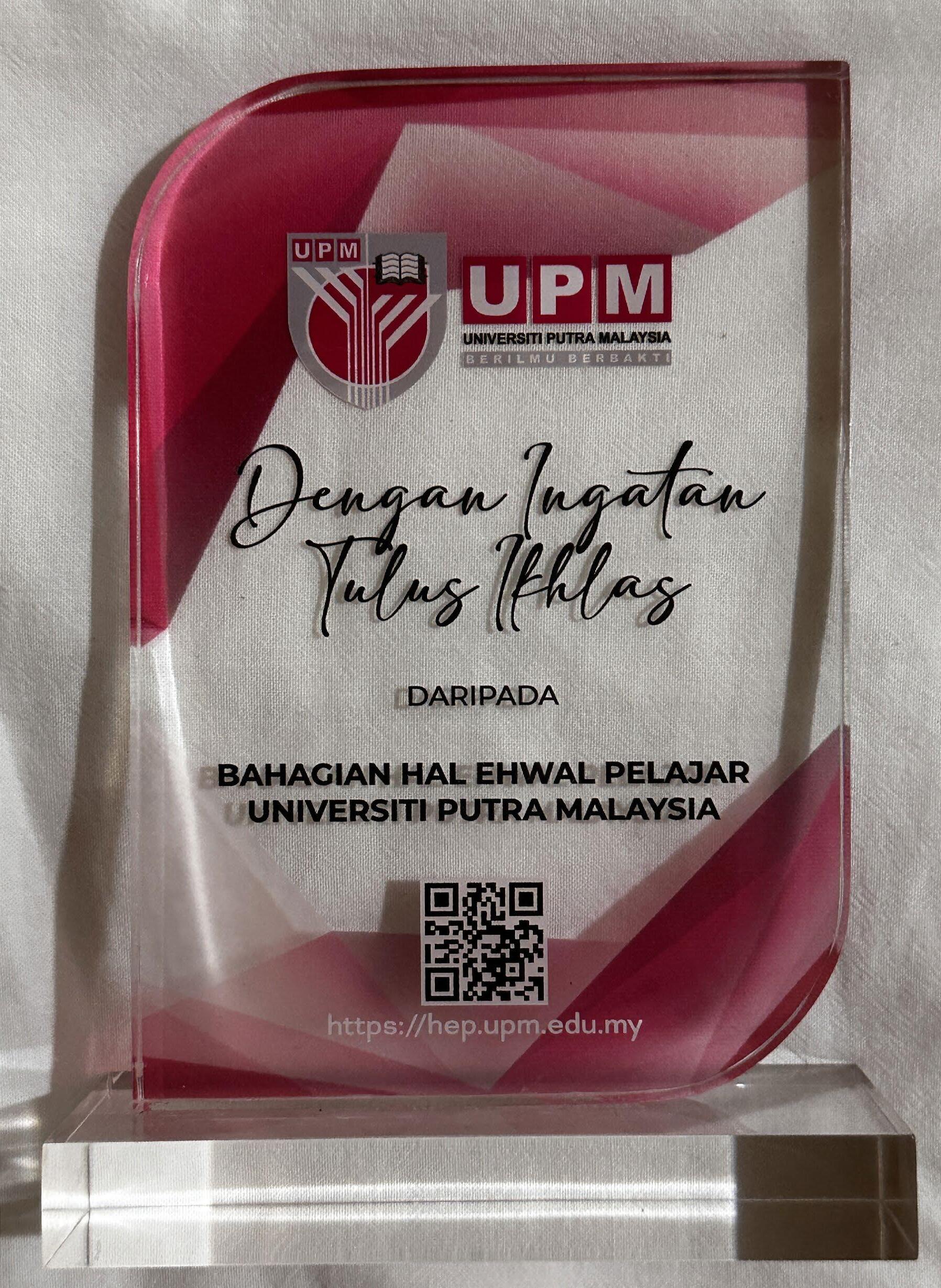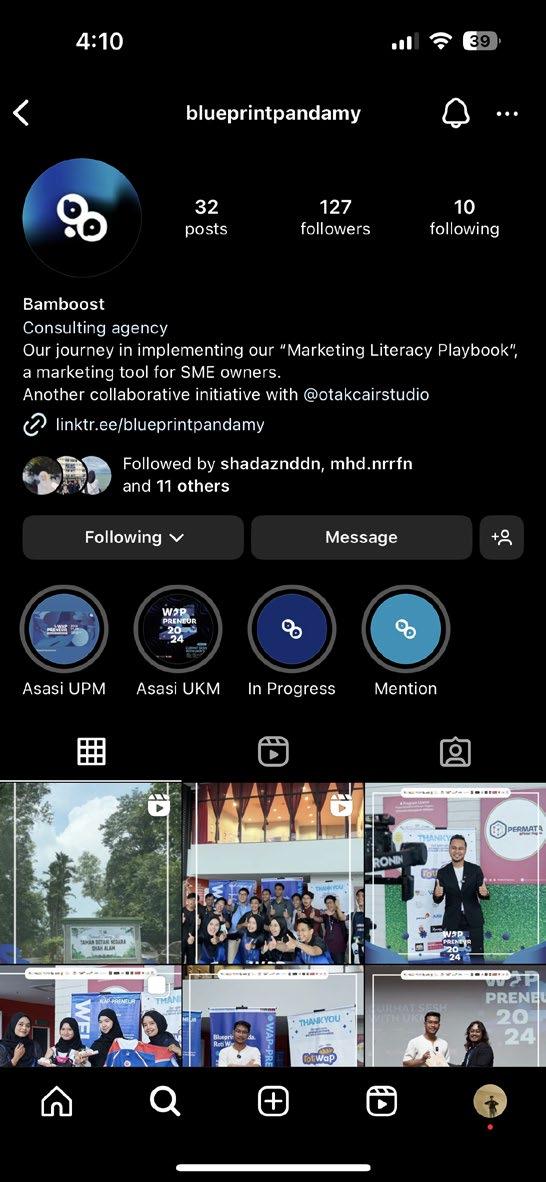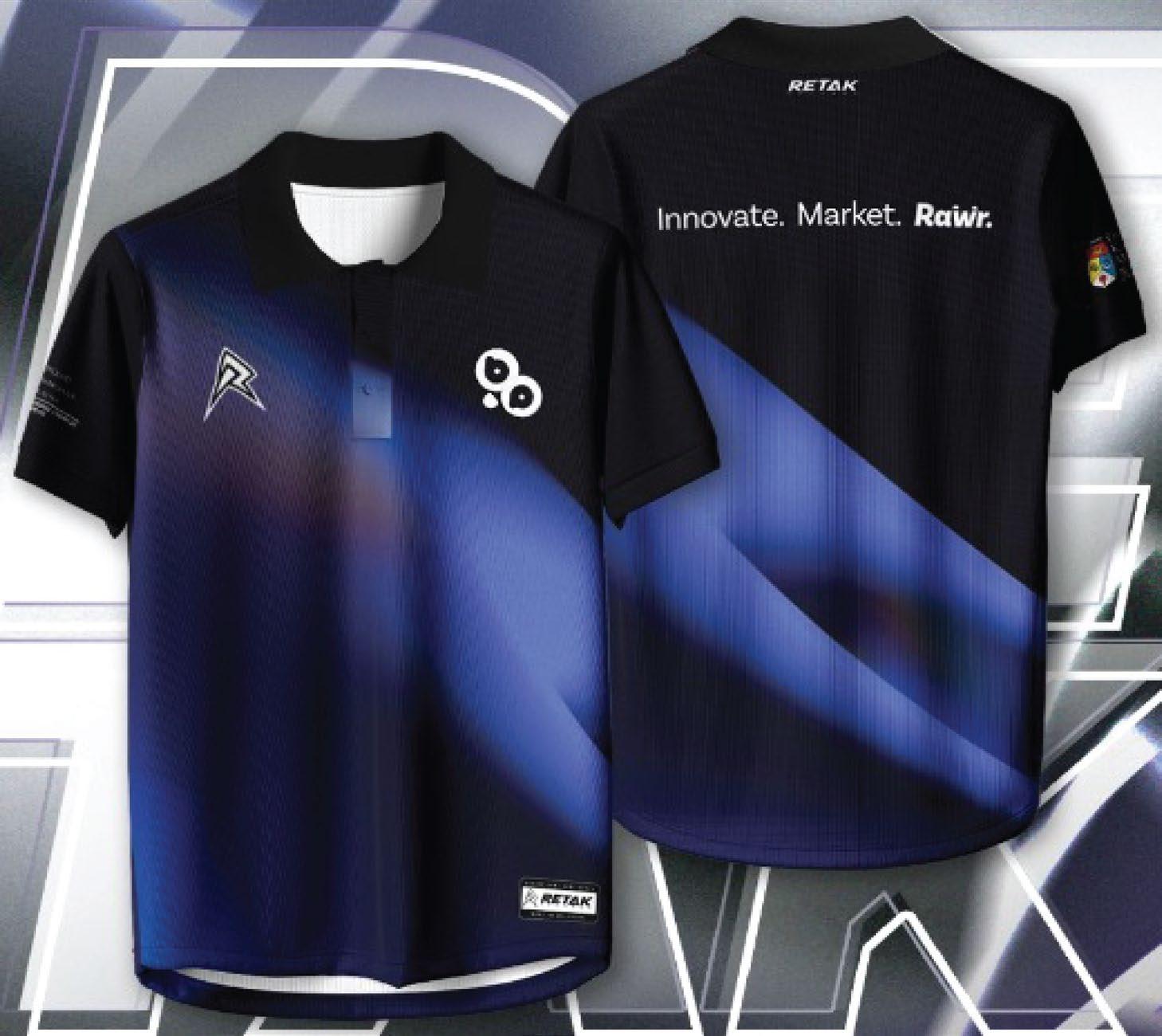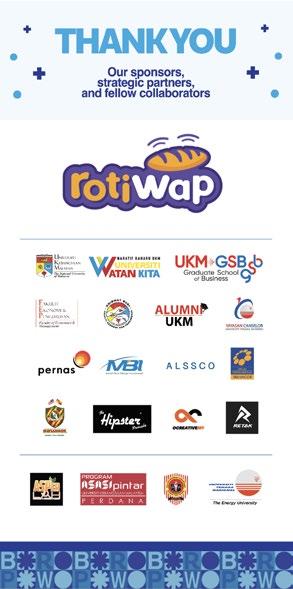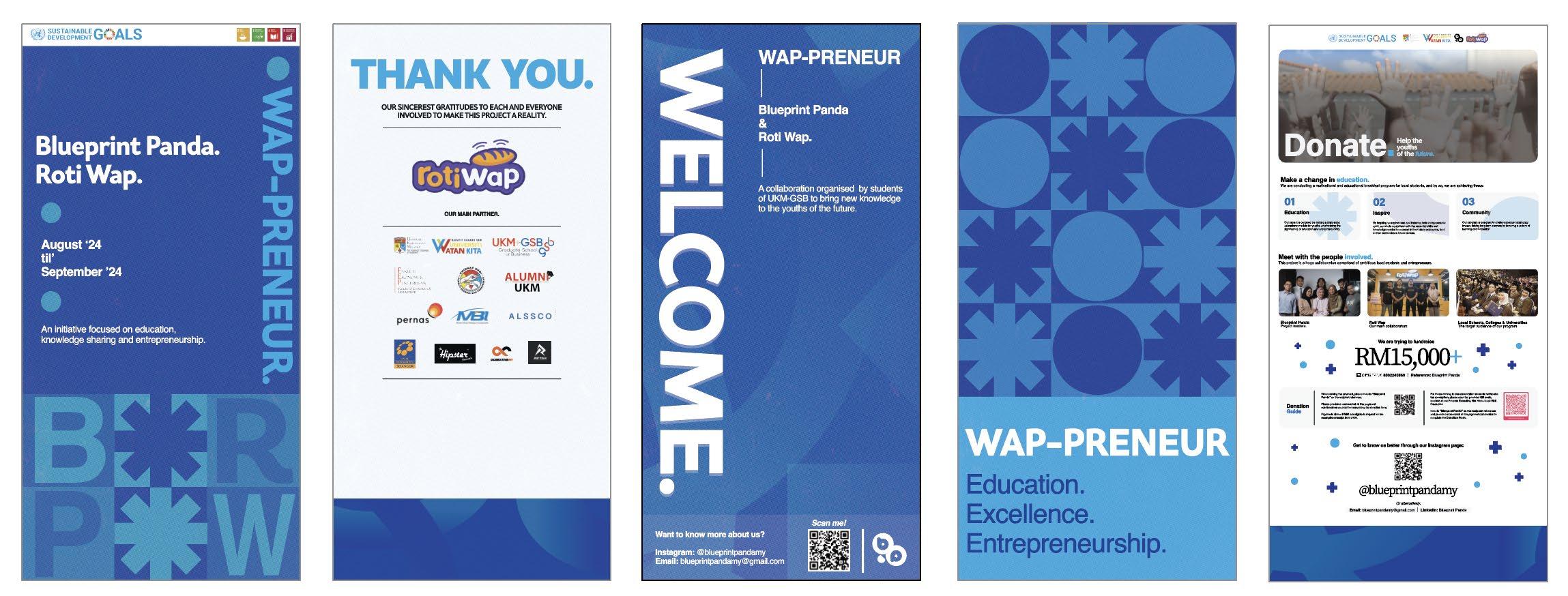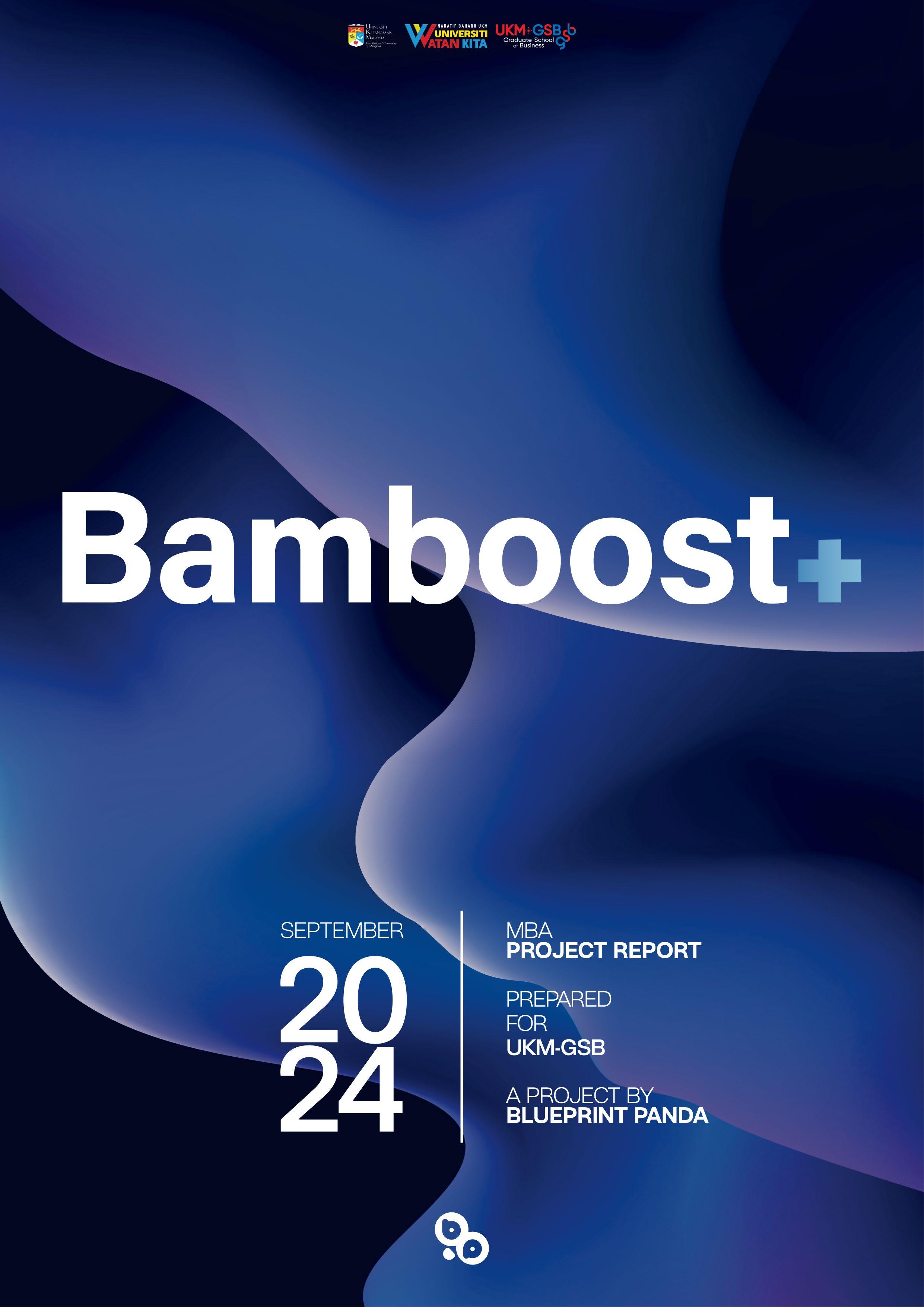
MBA PROJECT 2023/24
Bamboost Supervisor : Dr. Nur Laili Ab Ghani
Organized by : Blueprint Panda
Master of Business Administration
Graduate School of Business
National University of Malaysia (UKM)




MBA PROJECT 2023/24
Bamboost Supervisor : Dr. Nur Laili Ab Ghani
Organized by : Blueprint Panda
Master of Business Administration
Graduate School of Business
National University of Malaysia (UKM)


by DR. NUR LAILI AB GHANI
Assalamualaikum wbt and Greetings to All,
am very honoured to be given this opportunity to supervise the MBA project established by the Blueprint Panda group called Bamboost project. This is a noble initiative designed to provide an effective marketing solution with the aim to significantly enhance the visibility of the Small-and-Medium Size Enterprise (SMEs) in achieving an impactful organisational goal.
At UKM-Graduate School of Business (UKM-GSB), we aim for all MBA students to be able to contribute back to the society either in the form of Corporate Social Responsibility (CSR) based, project management or consultation-based project with any organisations and institutions. In this respect, students can implement all the knowledge into practice.
Well done and congratulations to the members of the Blueprint Panda group led by Mr. Budiman for their hard work and tireless efforts in planning, negotiating, managing and providing the coaching services to Rotiwap, as one of the selected “Brandy Panda” in this Bamboost project. Rotiwap has been selected to received the hands-on consultation with the members of Blueprint Panda group to formulate the most effective marketing plan in line with the needs of the business activities.
Hopefully, this MBA project will become one of the lifelong learning mechanisms for MBA students at UKM-GSB. It is also hoped that this effort can motivate other SMEs to explore their customised marketing plan in providing value-added business activities and operations to their stakeholders.
Yours faithfully,
Dr. Nur Laili Ab Ghani
MBA Project Supervisor
Blueprint Panda Group
UKM-Graduate School of Business (UKM-GSB)
Universiti Kebangsaan Malaysia

1.0 INTRODUCTION
2.0 PROJECT BACKGROUND
3.0 BAMBOOST
4.0 ACKNOWLEDGEMENT
5.0 PROJECT EXECUTION PLAN AND TIMELINE
6.0 FINANCIAL STATEMENT
7.0 SWOT ANALYSIS
8.0 SIGNIFICANT CONTRIBUTIONS
9.0 FUTURE RECOMMENDATIONS FOR THE SUS-
TAINABILITY OF THE PROJECT
10.0 CONCLUSION
11.0 PROGRAM HIGHLIGHTS
Bamboost is a comprehensive business development and marketing initiative aimed at supporting the growth of local Small and Medium Enterprises (SMEs) in Malaysia, with a focus on Rotiwap, a business within the Food & Beverage (F&B) industry. Rotiwap was selected for this project due to its strong potential within the local market. To better understand Rotiwap’s opportunities and challenges, the project employs key business analysis tools such as SWOT Analysis and Porter’s Five Forces Model. These strategic tools offer valuable insights into Rotiwap’s competitive positioning and identify areas for growth and improvement.
In addition to the analytical aspects, the project tackles several operational strategies crucial for Rotiwap’s expansion. Licensing and preliminary franchising strategies have been developed to facilitate business growth and scale the brand effectively. Further, the Halal certification process is addressed to strengthen Rotiwap’s market presence in Muslim-majority regions, enhancing its appeal to a broader customer base.
Many Small and Medium Enterprises (SMEs) in Malaysia struggle to grow beyond small-scale operations, such as market stalls, despite representing 97% of businesses and contributing 38.2% to the nation’s GDP (MIDA, 2023). These challenges are largely due to a lack of structured business analysis and strategic planning, which limits their ability to capitalize on market opportunities and mitigate risks.
SMEs often fail to perform essential evaluations like SWOT analysis and Porter’s Five Forces model, both of which are crucial for understanding the internal and external factors influencing business growth. This lack of analysis leaves SMEs vulnerable to market competition, operational inefficiencies, and missed growth opportunities.
In terms of formalizing their businesses, many SMEs in Malaysia are registered as sole proprietorships or partnerships under Suruhanjaya Syarikat Malaysia (SSM), which can limit their ability to access funding and scale effectively. Transitioning to more robust business structures, such as private
limited companies (Sdn. Bhd.), can provide SMEs with greater flexibility and investment opportunities, yet many lack the knowledge and resources to make this transition.
To protect the brand, the project also includes trademark development, ensuring Rotiwap’s intellectual property is safeguarded as the company grows. Additionally, Rotiwap is transitioning its legal status from an enterprise to a private limited company (Sdn. Bhd.), a shift that provides scalability and legal benefits, enabling the company to operate more efficiently as it expands. Strategic expansion plans are also being put in place to reach wider markets and enhance Rotiwap’s overall business footprint.
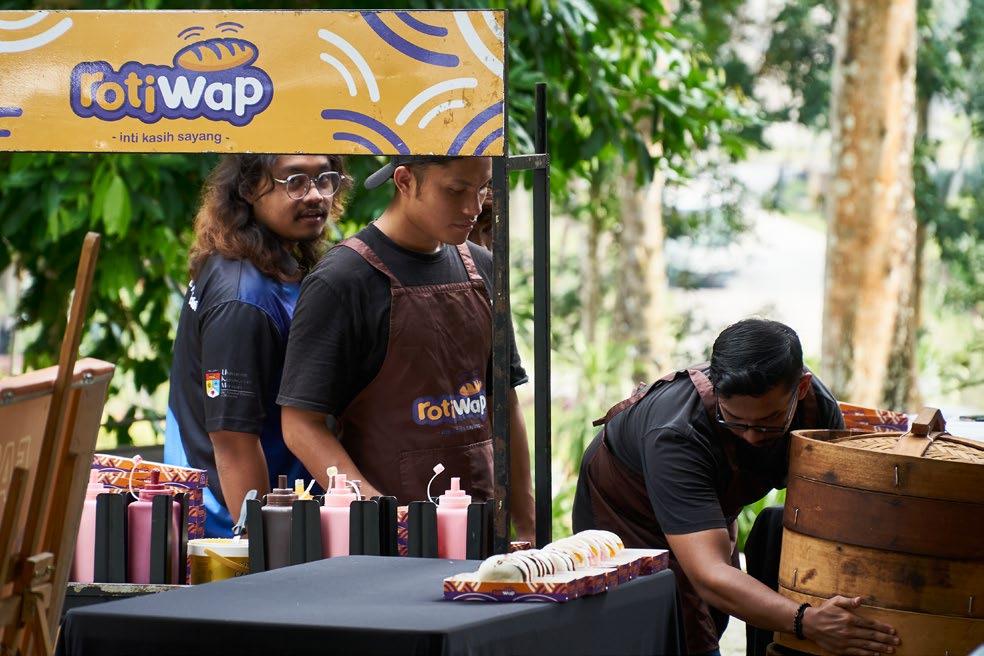
On the marketing front, Bamboost incorporates a variety of initiatives aimed at increasing Rotiwap’s visibility and consumer engagement. One of these is Wap-preneur, a Corporate Social Responsibility (CSR) program aligned with the Sustainable Development Goals (SDGs), which fosters social and environmental responsibility through education. Additionally, personal
branding is being developed to create a stronger connection between Rotiwap’s leadership and its consumers, enhancing brand loyalty and credibility. Collaborative marketing efforts aim to establish strategic partnerships that will increase Rotiwap’s market presence, while billboard advertising is being utilized to boost brand awareness in key commercial areas.
By integrating these business and marketing strategies, Bamboost aims to enhance Rotiwap’s business prospects, positioning the company for sustainable growth within Malaysia’s highly competitive F&B industry.

protection for businesses, enhancing their competitiveness and helping them avoid imitation. However, many SMEs remain unaware of the benefits of trademarking and how to register their intellectual property.
Franchising is another avenue for growth that SMEs can explore. Perbadanan Nasional Berhad (Pernas) advocates franchising as a means for SMEs to scale their operations by replicating successful business models through franchisees. This allows SMEs to expand their market reach while sharing the financial and operational burden with franchise partners. On the marketing front, many SMEs are underutilizing modern tools such as digital marketing, which offers tremendous potential for reaching new customers. Building a personal brand is also critical for SME owners, as it helps differentiate their business and build customer loyalty in an increasingly competitive market.
Strategic expansion is another critical issue. While location is a key factor in business success, many SMEs do not prioritize choosing high-traffic areas, which could significantly enhance their visibility and customer reach. Additionally, halal certification remains a crucial growth factor for businesses in the Food & Beverage (F&B) industry, as it enables access to Malaysia’s growing halal market and international opportunities. Halal International Selangor (HIS) emphasizes that halal certification is not just about religious compliance but also represents a mark of quality that can attract a wider consumer base.
To safeguard their brand and ensure long-term sustainability, many SMEs also need to understand the importance of trademark registration. MyIPO (Intellectual Property Corporation of Malaysia) highlights that trademarks provide legal
Collaborative marketing, particularly through Corporate Social Responsibility (CSR) campaigns integrated with education programs in partnership with NGOs, can help SMEs align their business with Sustainable Development Goals (SDGs), especially SDG 4: Quality Education. This approach can address societal issues, such as the declining interest in education among Malaysian students due to the influence of social media influencers. By engaging in CSR activities, SMEs can create a positive impact while building a socially responsible brand image.
In addition to digital marketing, more traditional methods like billboard advertising can help SMEs enhance their visibility, particularly in areas where physical presence is critical for brand awareness.
The Bamboost project seeks to address these challenges by offering comprehensive business solutions. This includes guidance on SWOT analysis and Porter’s Five Forces model, legal assistance for transitioning to Sdn. Bhd. status, strategic advice for selecting high-traffic locations, support for halal certification in collaboration with Halal International Selangor, trademark registration guidance from MyIPO, and opportunities for franchising through Pernas. In addition, the project offers tailored digital marketing, personal branding, collaborative CSR campaigns, and billboard advertising strategies. By empowering SMEs with these tools and insights, Bamboost aims to help them overcome their growth barriers and achieve sustainable success in Malaysia’s competitive market.

Blueprint Panda is an initiative spearheaded by students from Universiti Kebangsaan Malaysia Graduate School of Business (UKM-GSB) as part of their final year project for the Master’s in Business Administration (MBA) program.
The Bamboost project, developed under this framework, is designed as a comprehensive business development consultation service that offers tailored marketing solutions to support the growth of local Small and Medium Enterprises (SMEs) which serves as a pilot project.
The primary objective of the Bamboost project is to assist SMEs, such as Rotiwap, in expanding their business operations by leveraging the project’s extensive resources and expertise. By providing a blend of strategic insights and practical tools, Bamboost aims to address the common challenges faced by SMEs and unlock new opportunities for growth.
Through a structured approach that includes SWOT analysis, Porter’s Five Forces model, and targeted marketing strategies, Bamboost offers valuable support in business analysis, strategic expansion, and marketing innovation. The project also focuses on enhancing SMEs’ capabilities in areas such as digital marketing, personal
branding, and collaborative marketing campaigns. By integrating Halal certification, trademark registration, and franchising strategies, Bamboost ensures that SMEs are well-positioned to compete effectively in both local and international markets.
Ultimately, Bamboost is committed to empowering SMEs with the tools and knowledge needed to overcome growth barriers and achieve sustainable success. As a vital component of the MBA program at UKM-GSB, Blueprint Panda and the Bamboost project represent a significant step in bridging academic learning with real-world business challenges, contributing to the development of a robust SME sector in Malaysia.

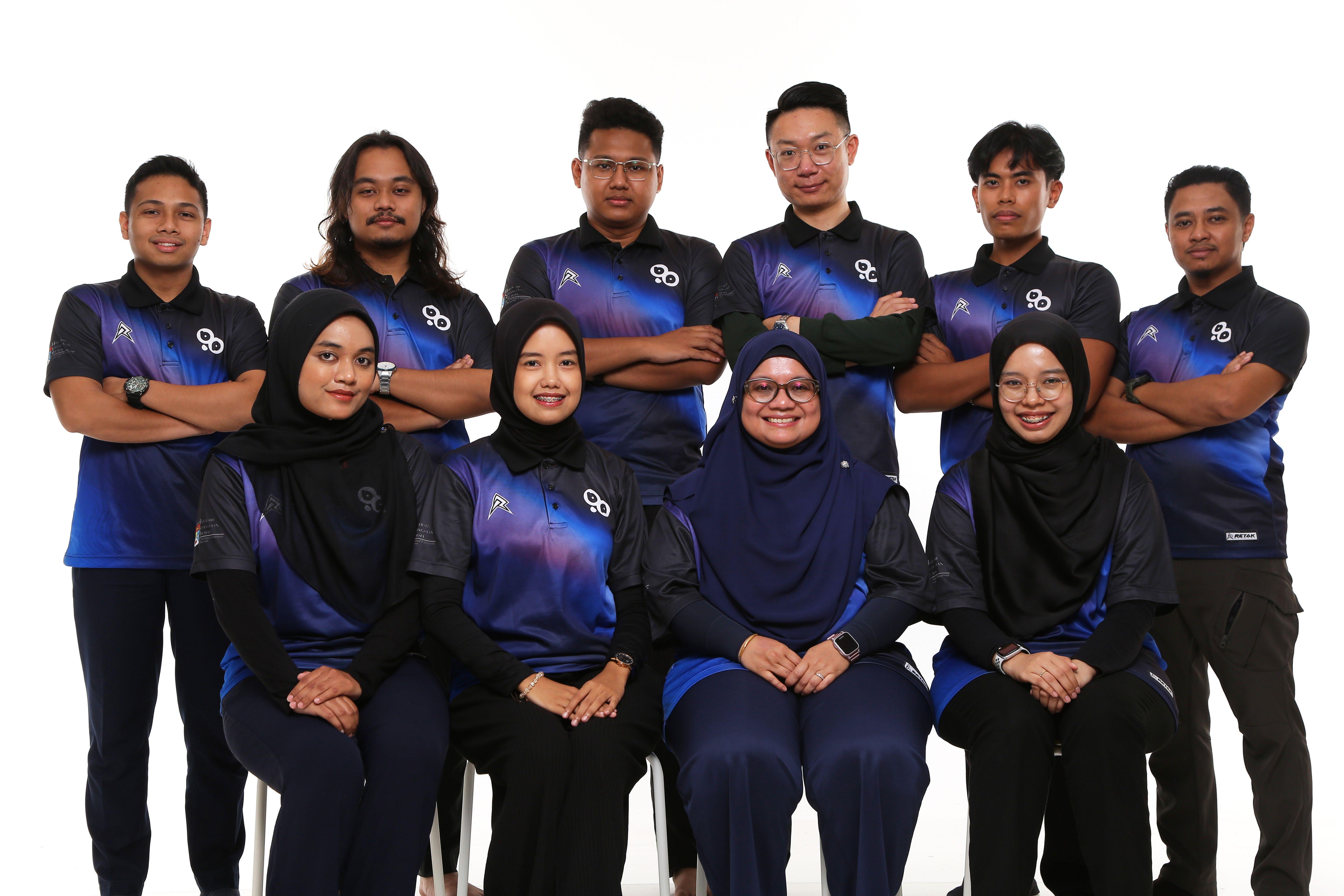

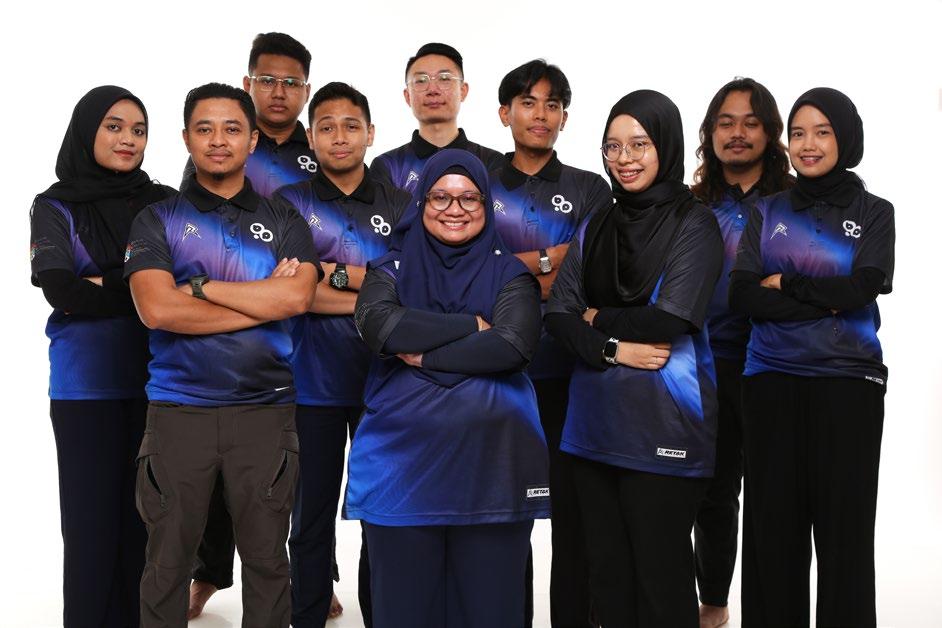
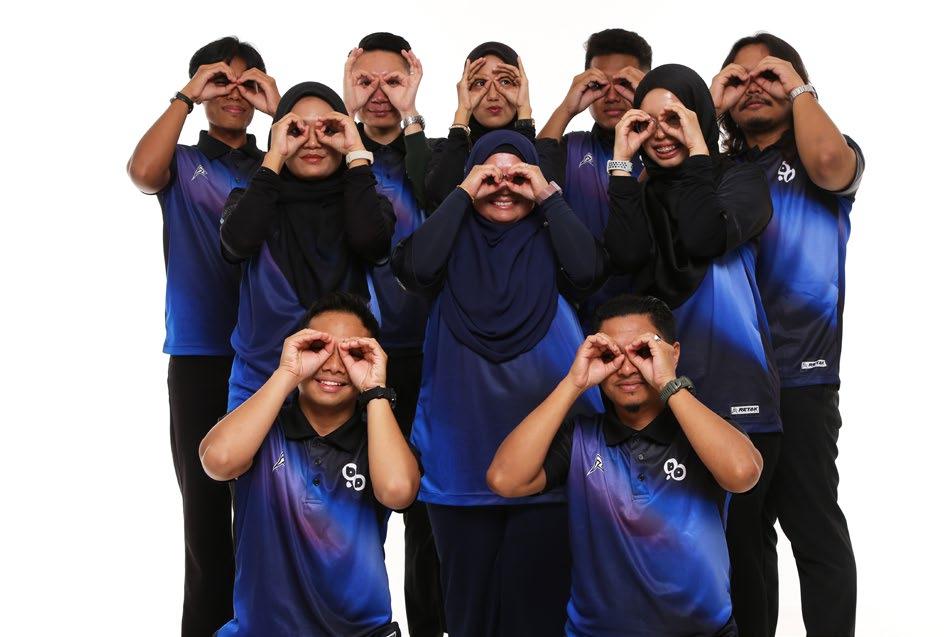
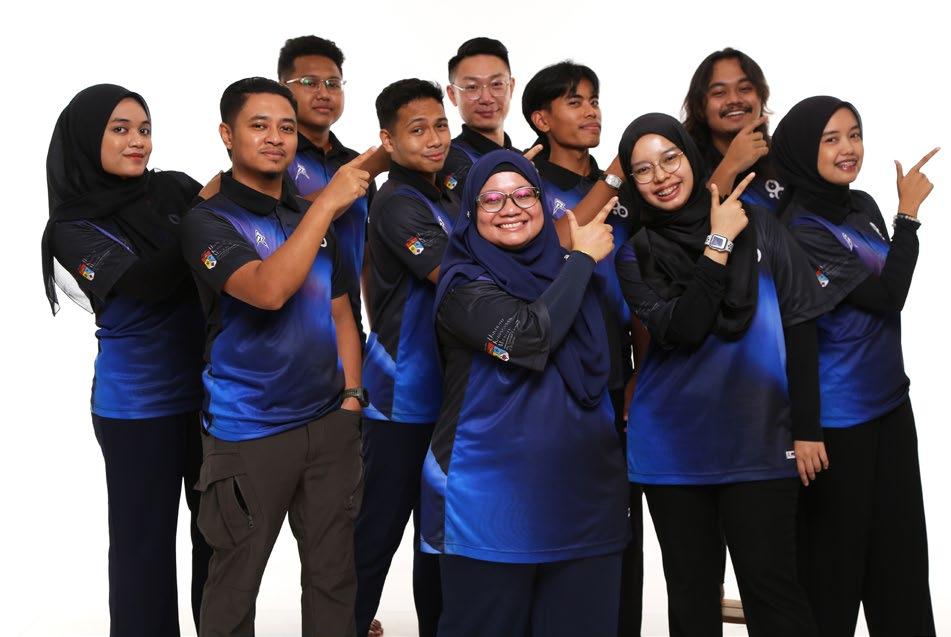
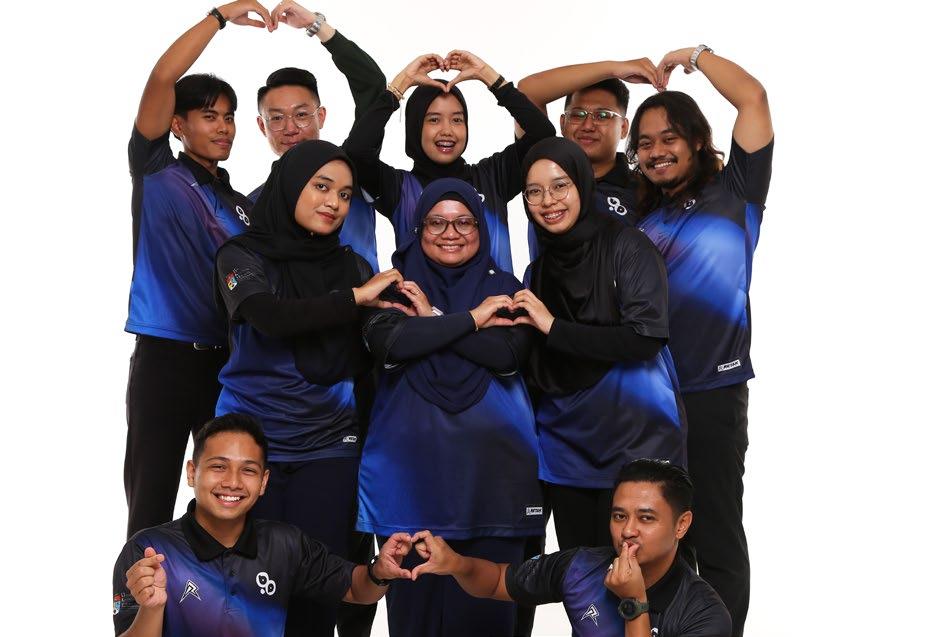
1.6 Our Motto
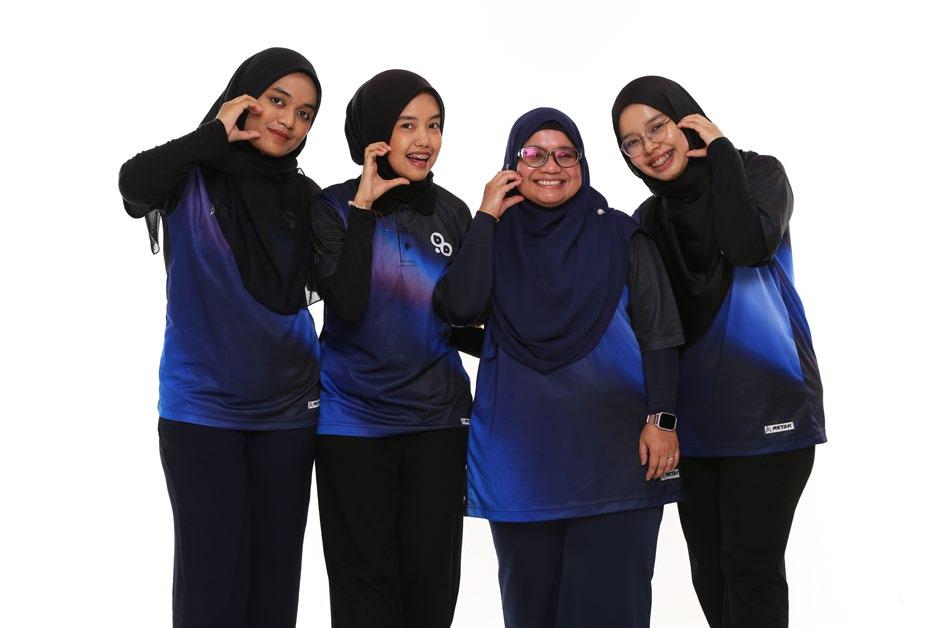
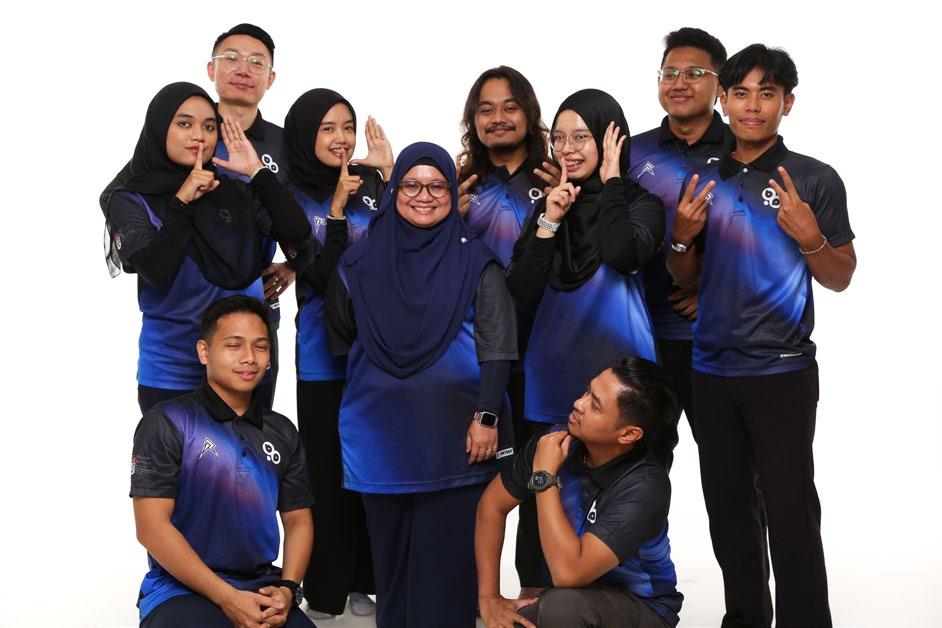
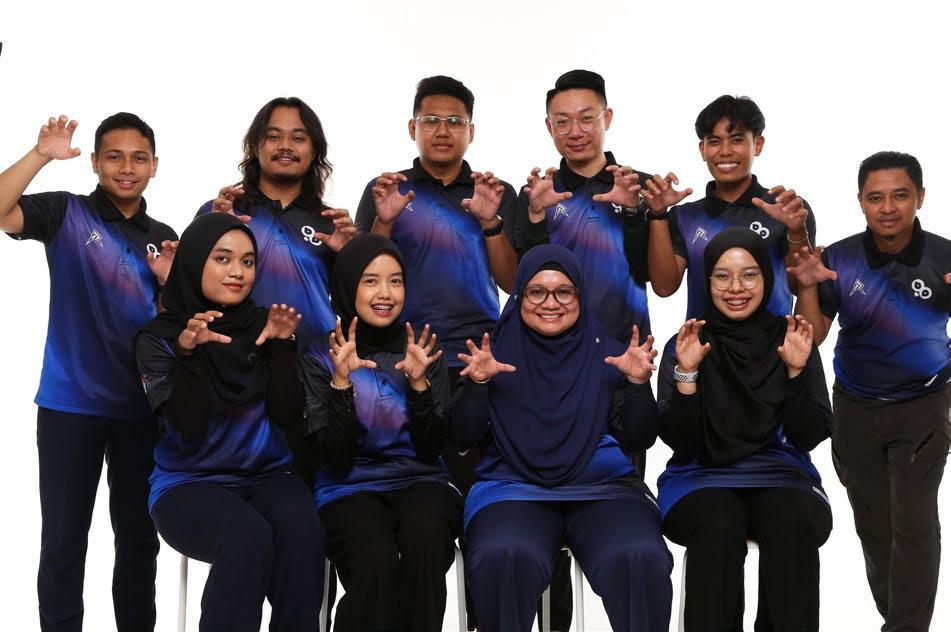

To empower and transform the landscape of Malaysian SMEs by providing innovative and strategic business solutions that drive sustainable growth and success.
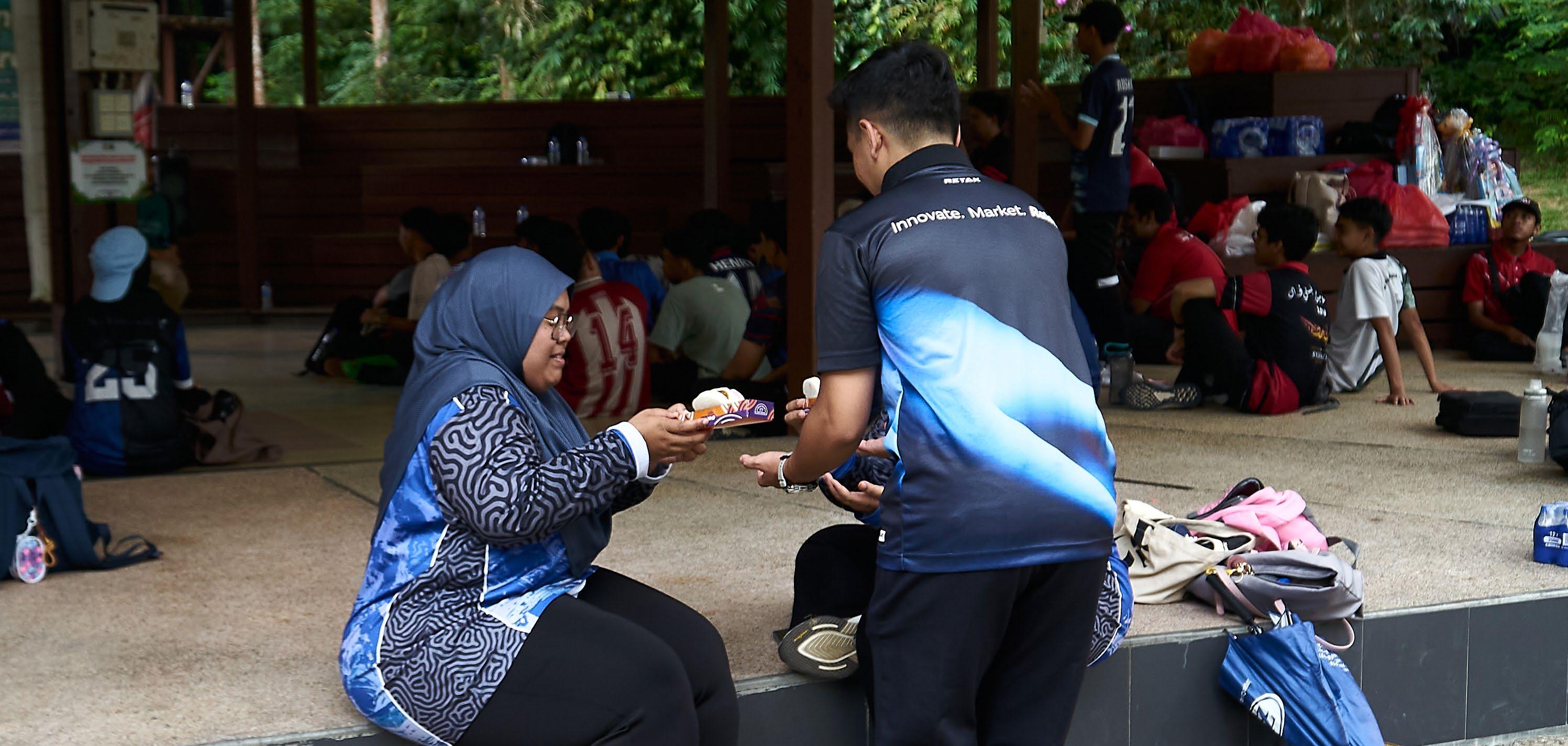
Blueprint Panda is committed to delivering comprehensive business development and marketing solutions through the Bamboost project.
We aim to support local SMEs in their expansion efforts by offering expert guidance, strategic insights, and practical tools that enhance their operational efficiency and market presence.
Our mission is to bridge the gap between academic research and real-world business challenges, fostering a thriving ecosystem of resilient and competitive enterprises.
Enhance SME Capabilities
Provide SMEs with in-depth business analysis tools, including SWOT analysis and Porter’s Five Forces model, to help them understand their market position, identify opportunities, and address challenges effectively.
Facilitate Strategic Growth
Assist SMEs in making informed decisions about strategic expansion, including selecting high-traffic locations, transitioning to formal business structures, and obtaining necessary certifications, such as Halal certification.
Support Marketing Innovation
Develop and implement comprehensive marketing strategies for SMEs, focusing on digital marketing, personal branding, collaborative marketing through CSR campaigns, and billboard advertising to increase their market reach and brand visibility.
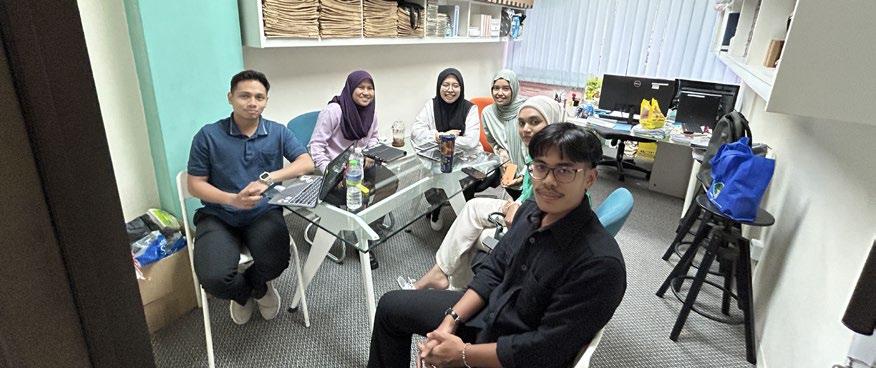
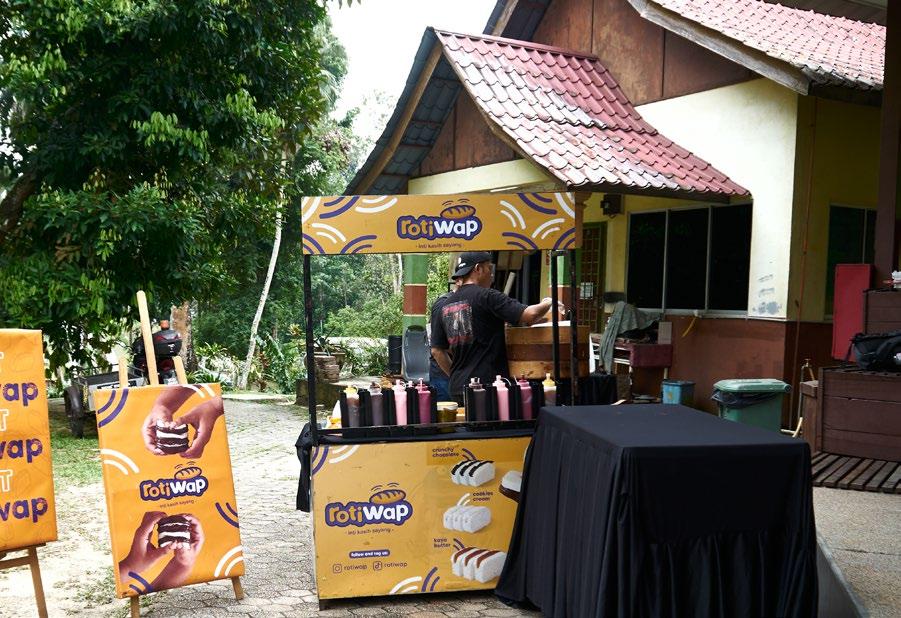
Promote Legal and Structural Advancements Guide SMEs in understanding and utilizing trademark registration and franchising opportunities to protect their intellectual property and scale their operations effectively.
Integrate Social Responsibility
Incorporate Corporate Social Responsibility (CSR) initiatives aligned with Sustainable Development Goals (SDGs), particularly in education, to positively impact the community and enhance the social responsibility profile of SMEs.
Bamboost is a strategic business development and marketing consultation initiative developed by Blueprint Panda, a group established by students of Universiti Kebangsaan Malaysia Graduate School of Business (UKM-GSB).
As part of the final year project for the Master’s in Business Administration (MBA) program, Bamboost aims to provide comprehensive support to local Small and Medium Enterprises (SMEs), with a particular focus on those in the Food & Beverage (F&B) sector, such as Rotiwap.
The project offers a range of marketing solutions tailored specifically for SMEs. Digital marketing is a central focus, utilizing online platforms and tools to enhance the visibility and engagement of businesses. This helps SMEs reach a broader audience and interact more effectively with customers. Personal branding is another key strategy, aimed at building a strong, recognizable identity that distinguishes SMEs from their competitors. By creating a unique brand, SMEs can foster stronger relationships with their customers and enhance their market presence.
Collaborative marketing, through Corporate Social Responsibility (CSR) campaigns, is also emphasized. SMEs are encouraged to partner with NGOs to address educational challenges, aligning their efforts with Sustainable Development Goals (SDGs). This not only benefits the community but also improves the SME’s brand image. Lastly, traditional billboard advertising is included as a way to increase offline visibility and attract a wider audience, helping SMEs connect with potential customers in high-traffic locations. This ensures that SMEs can utilize both digital and offline methods to broaden their reach and achieve their marketing goals.

Bamboost is designed to address the key challenges that SMEs face in expanding their operations and competing effectively in both local and global markets. The project offers a multifaceted approach to business development that encompasses several critical areas:
Strategic Business Analysis
Utilizing tools such as SWOT analysis and Porter’s Five Forces model, Bamboost helps SMEs gain a clear understanding of their internal strengths and weaknesses, as well as external opportunities and threats. This analysis supports informed decision-making and strategic planning.
Legal and Structural Guidance
The project provides support in transitioning SMEs from informal business structures to more formal setups, such as private limited companies (Sdn. Bhd.), to enhance their credibility and access to investment. Additionally, Bamboost facilitates trademark registration in collaboration with MyIPO to protect intellectual property and establish brand identity.
Bamboost offers advice on selecting high-traffic locations for business expansion, optimizing physical presence to drive customer engagement and sales. The project also assists in obtaining Halal certification through Halal International Selangor (HIS), enabling businesses to tap into Malaysia’s halal market and international opportunities.
In collaboration with Perbadanan Nasional Berhad (Pernas), Bamboost explores franchising as a growth strategy, helping SMEs replicate successful business models and expand their market reach through franchise partnerships.
Bamboost is committed to bridging the gap between academic learning and practical business solutions. By leveraging the expertise of UKM-GSB students and collaborating with industry partners, the project aims to empower SMEs with the tools and knowledge necessary to overcome growth barriers and achieve long-term success. The ultimate goal is to foster a thriving SME sector in Malaysia, contributing to the country’s economic development and creating a positive impact on the community.

Business development for Rotiwap focuses on creating a solid foundation for expansion, operational efficiency, and long-term sustainability. This section covers the analysis and strategic steps taken in key areas of the project.
A comprehensive business analysis of Rotiwap has been conducted using SWOT analysis and Porter’s Five Forces model to assess the internal and external factors influencing its growth and competitive position.
Starting with the SWOT analysis, Rotiwap’s strengths include its unique product offering, which differentiates it from competitors in the market, and its early brand recognition, which has fostered initial customer loyalty. However, the business faces several weaknesses, particularly its limited resources for scaling and the operational challenges that come with expanding its footprint. These weaknesses highlight the need for strategic planning and efficient operational management to support sustainable growth.
On the other hand, there are promising opportunities for Rotiwap, such as the potential for market expansion through franchising and brand differentiation. By leveraging its distinct product and expanding into untapped markets, the brand has significant potential for growth. However, the company must also navigate potential threats, including increased competition and market entry barriers. Established players in the food and beverage industry present a formidable challenge, and new entrants may saturate the market, making it more difficult for Rotiwap to expand without facing significant competition.
Porter’s Five Forces model provides further insight into the competitive dynamics surrounding Rotiwap. The threat of new entrants is moderate due to low barriers to entry in
the food industry, but the strong competition already present makes it difficult for new players to quickly gain a foothold. The bargaining power of suppliers is also moderate, as Rotiwap is somewhat reliant on sourcing costs, which can fluctuate and impact profitability.
On the consumer side, the bargaining power of buyers is high, as customers have many choices in the food market, giving them leverage to demand better prices or shift to alternative options. Similarly, the threat of substitutes is high because of the wide variety of food products available, making it crucial for Rotiwap to maintain product differentiation. Finally, industry rivalry is intense, with numerous established competitors vying for market share, particularly in the rapidly growing food and beverage sector.
By understanding both its internal capabilities and the external forces at play, Rotiwap can better position itself to overcome challenges and seize opportunities for growth in a highly competitive market.
The collaboration between Rotiwap and PERNAS plays a critical role in laying the groundwork for franchising, ensuring the brand is well-positioned to scale its operations while maintaining consistency and quality. A key aspect of this partnership is the development of Standard Operating Procedures (SOPs), which serve to standardize franchise operations across all outlets. By establishing clear and comprehensive SOPs, Rotiwap ensures that each franchisee follows consistent processes, from product preparation to customer service, maintaining the integrity of the brand and delivering a uniform experience to all customers. These procedures also streamline operational efficiency, reducing the likelihood of errors and ensuring that
franchisees can run their businesses smoothly. In addition to SOP development, contract agreements are being formalized in collaboration with the legal team at Azri, Lee Swee Seng & Co. These legal agreements are designed to clearly define the roles, responsibilities, and obligations of both the franchisor and the franchisee. The contracts cover critical aspects such as the protection of intellectual property, the use of the Rotiwap brand, royalty structures, and operational guidelines. This legal framework ensures that both parties are protected and have a clear understanding of their commitments, fostering a strong foundation for long-term partnerships.
Furthermore, a business prospectus is being developed to provide potential franchisees with a detailed overview of Rotiwap’s financial projections and growth opportunities. This prospectus outlines the expected costs, revenue potential, and market positioning, helping interested parties make informed decisions about joining the franchise. It also serves as a marketing tool to attract franchisees who align with Rotiwap’s vision and values, ensuring the selection of high-quality partners for future expansion.
Finally, Return on Equity (ROE) calculations and financial analyses are conducted to assess the profitability of franchising for both Rotiwap and its potential franchisees. By evaluating the expected returns, the business can ensure that the franchise model is not only viable but also attractive to investors. This financial analysis underscores the long-term profitability of the franchise, making it an appealing opportunity for those seeking to invest in a growing and sustainable brand.
Through this collaboration with PERNAS, Rotiwap is setting the stage for successful franchising, ensuring that the necessary operational, legal, and financial structures are in place to support sustainable growth and expansion.

In collaboration with Halal International Selangor (HIS), the Halal certification process was initiated, ensuring Rotiwap’s compliance with Islamic dietary standards to facilitate expansion into Muslim-majority markets.
Working with MyIPO, the Rotiwap trademark is being developed and registered to protect the brand’s intellectual property and establish a strong market identity.
Transitioning Rotiwap’s legal status from an enterprise to a private limited company in collaboration with SSM (Companies Commission of Malaysia). This move enhances credibility, provides better access to financing, and allows the company to introduce new departments to support future growth.
Collaboration with Prasarana Berhad to explore opportunities for Rotiwap’s strategic expansion into LRT stations, enhancing brand visibility and accessibility to urban commuters.
The marketing strategy for Rotiwap is designed to build brand recognition, foster community engagement, and leverage partnerships to drive growth. This multifaceted approach aims to create a strong market presence while developing meaningful connections with customers and stakeholders.
A key element of the strategy is the Wap-Preneur initiative, a Corporate Social Responsibility (CSR) program developed in collaboration with GPMS Selangor. The Wap-Preneur initiative focuses on promoting education and entrepreneurship among youth, with an emphasis on leadership development. Through educational programs, the initiative engages young people in entrepreneurial thinking while simultaneously enhancing Rotiwap’s brand engagement. By fostering a sense of community involvement and social responsibility, Wap-Preneur positions Rotiwap as a brand that contributes to societal growth and development.
Personal Branding
Personal branding is another important component of the marketing strategy, aimed at establishing the founder and key stakeholders of Rotiwap as thought leaders in the food and beverage industry. By developing personal branding strategies, Rotiwap enhances the emotional connection between the brand and its customers, building trust and credibility. Personal branding not only strengthens relationships with existing customers but also helps attract new ones by showcasing leadership and expertise within the industry.

In addition to personal branding, collaboration marketing plays a crucial role in expanding Rotiwap’s reach. By partnering with strategic allies, Rotiwap can leverage shared resources and networks to promote its products and services. Collaborative efforts with other brands or businesses allow Rotiwap to tap into new markets, increase exposure, and achieve a broader market reach without significant increases in marketing costs.
To further enhance brand visibility, billboard advertising is implemented as part of the overall strategy. The launch of Rotiwap’s digital billboard at Bukit Bintang, one of Kuala Lumpur’s busiest commercial hubs, serves to significantly boost brand awareness. This high-traffic area provides an ideal platform for reaching a wide audience and reinforcing Rotiwap’s presence in key markets.
In summary, the marketing strategy focuses on building a strong brand presence through CSR initiatives like Wap-Preneur, personal branding efforts, collaborative marketing, and high-visibility advertising. These combined efforts create a comprehensive and strategic approach to fostering growth and expanding Rotiwap’s market reach.










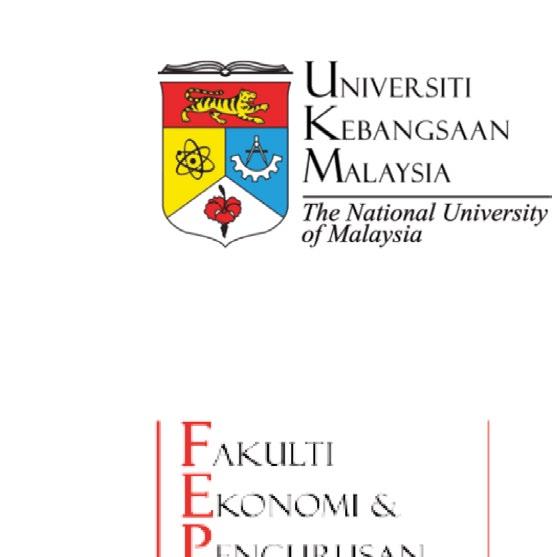
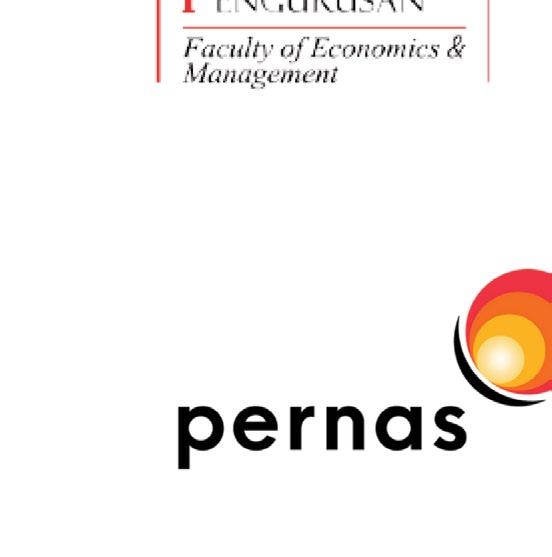
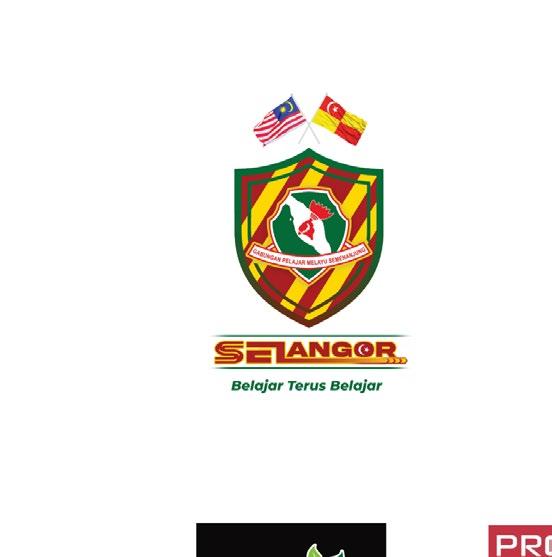










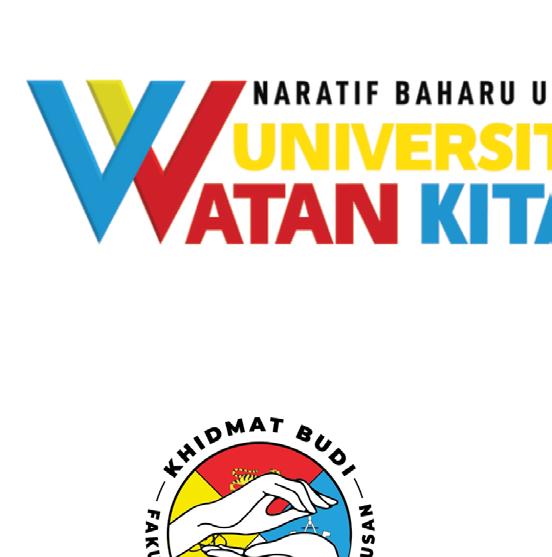
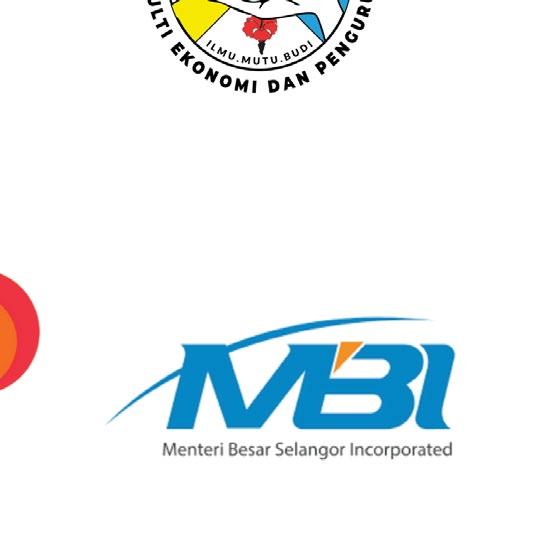
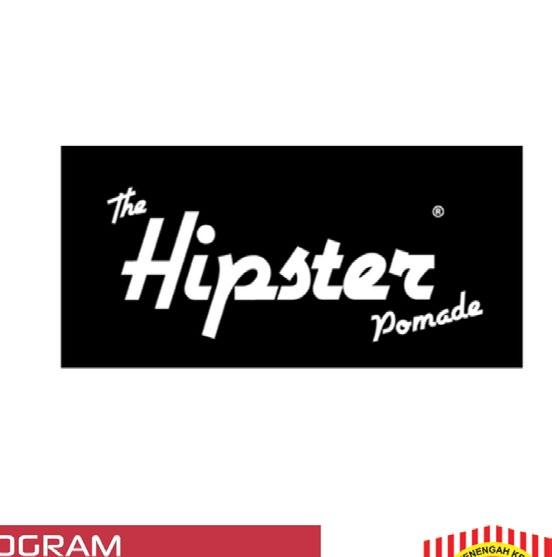





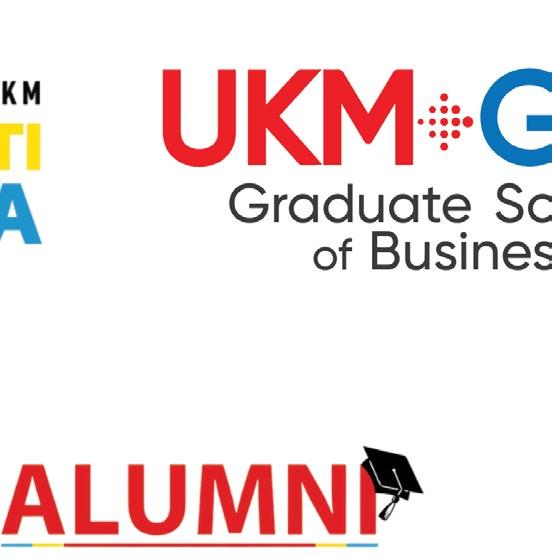
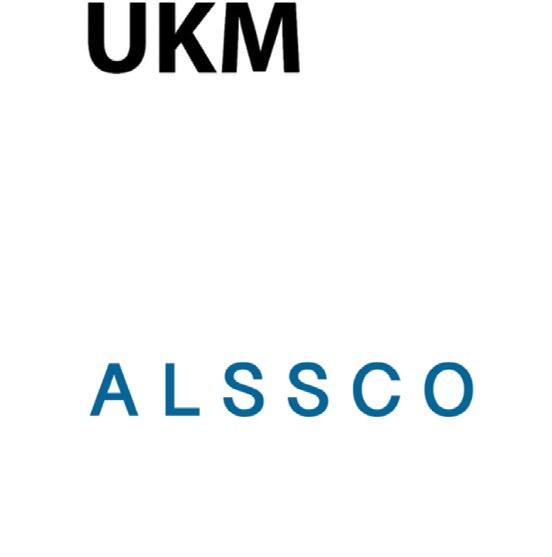
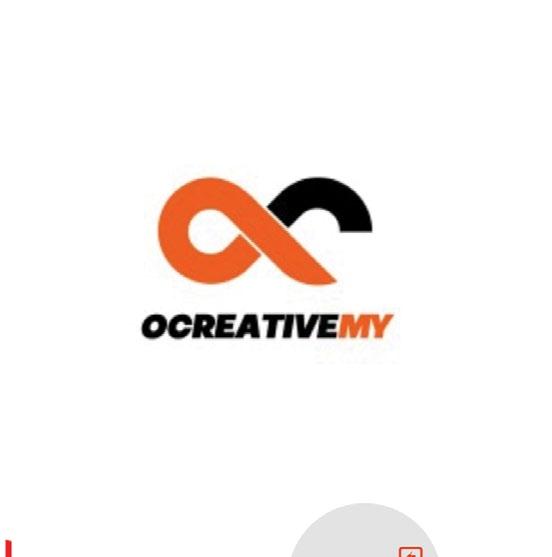
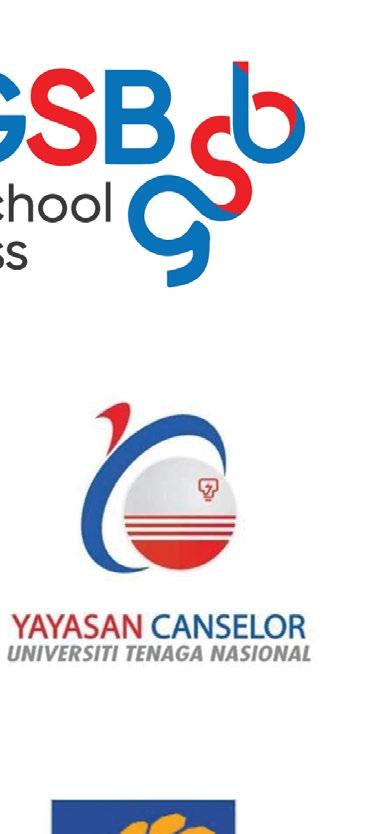
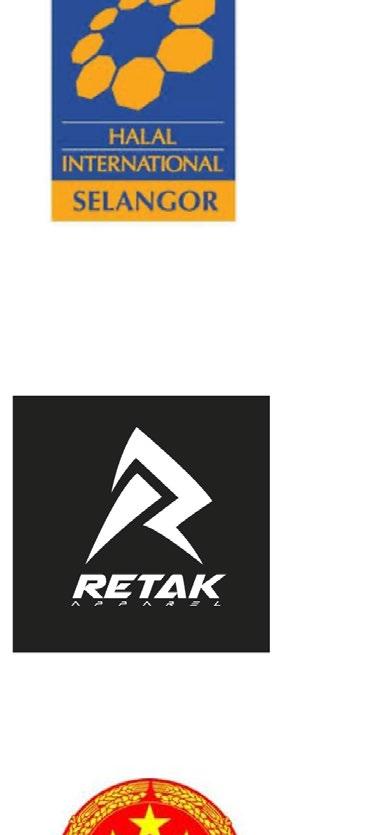


Blueprint Panda would like to express our heartfelt gratitude to all our esteemed strategic partners, collaborators, and sponsors for their invaluable support and contribution towards the success of our MBA project. The completion of this project would not have been possible without your commitment, expertise, and generosity.
First and foremost, we extend our sincere appreciation to our Strategic Partner, Rotiwap especially Mr Mohamad Aqil Ameerel bin Ramdan (founder of Rotiwap) for their unwavering support, guidance, and invaluable opportunity of partnership. Their contributions have significantly enhanced the quality and scope of our project.
Rotiwap is proud to be Malaysia’s first brand specializing in roti kukus (steamed buns), a modern twist on a beloved local favorite. Established as a Small and Medium Enterprise (SME), Rotiwap has quickly grown into a trusted name, known for their irresistibly soft, fluffy buns filled with indulgent flavors like kaya butter, milk chocolate, and cookies and cream. As an SME, they take pride in supporting local entrepreneurship, using fresh, locally sourced ingredients to ensure that every bun they serve is of the highest quality. Rotiwap’s long-term goal is to expand across Malaysia,
Perbadanan Nasional Berhad (PERNAS)
We are deeply grateful to our collaborators and sponsors, whose invaluable contributions have been instrumental in the success of our project. The partnership with Perbadanan Nasional Berhad (PERNAS) provided essential business insights and fostered a strong collaboration. As a company owned by the Minister of Finance Incorporated (MOF Inc.), PERNAS leads the development of Malaysia’s franchise industry. Its primary objective is to nurture and increase the number of franchise entrepreneurs by offering quality services in areas such as training, financing, and logistics. PERNAS plays a pivotal role in helping local products reach international markets and offers guidance and special schemes for franchisors and franchisees. Their involvement has been crucial in setting the foundation for Rotiwap’s franchising journey. PERNAS is headquartered at Menara Pernas, Bangsar South City.
Halal International Selangor (HIS)
We also extend our sincere appreciation to Halal International Selangor (HIS) for their expert guidance on the Halal certification process. HIS, an initiative by the Selangor State Government, is committed to positioning Selangor as a “Global Nation State” in the Halal industry. As the lead agency under the Selangor Halal Action Plan (SELHAP), HIS is integral to the development of the Halal sector, ensuring compliance and market readiness for businesses like Rotiwap.
Intellectual Property Corporation of Malaysia (MyIPO)
Another key partner, the Intellectual Property Corporation of Malaysia (MyIPO), provided critical insights into intellectual property management. MyIPO is responsible for the administration and enforcement of intellectual property laws in Malaysia, including trademarks, patents, copyrights, and industrial designs. Their mission to provide a robust legal infrastructure for the protection and exploitation of intellectual property aligns perfectly with our goal to safeguard Rotiwap’s brand identity.
Gabungan Pelajar Melayu Semenanjung (GPMS) Selangor
We are also grateful to Gabungan Pelajar Melayu Semenanjung (GPMS) Selangor for their collaboration in the Wap-Preneur initiative. GPMS Selangor plays a significant role in empowering youth through educational programs focused on leadership, personal development, and academic excellence. Their involvement was vital in promoting the entrepreneurial spirit among young people, further strengthening the social impact of our project.
Azri, Lee Swee Seng & Co.
The legal expertise provided by Azri, Lee Swee Seng & Co. was essential in ensuring that all legal aspects of the project were meticulously handled. Founded in 1985, the firm has built a reputation for offering personalized, professional services in corporate, commercial, and intellectual property law. Their guidance was instrumental in developing the legal frameworks necessary for Rotiwap’s business expansion.
The Energy University (UNITEN), ASASIpintar UKM, Centre for Foundation Studies in Science UPM, and SMK Bandar Tasik Kesuma
We are also thankful for the academic support provided by The Energy University (UNITEN), ASASIpintar UKM, Centre for Foundation Studies in Science UPM, and SMK Bandar Tasik Kesuma. These institutions contributed their academic expertise and resources, enabling the seamless execution of our educational initiatives and providing valuable support throughout our collaborative efforts.
In addition to our collaborators, we are deeply appreciative of our sponsors. Hipster Pomade generously provided product support and expertise from their grooming industry panel. As a premium men’s grooming brand, Hipster Pomade is dedicated to creating an inclusive and empowering grooming experience,
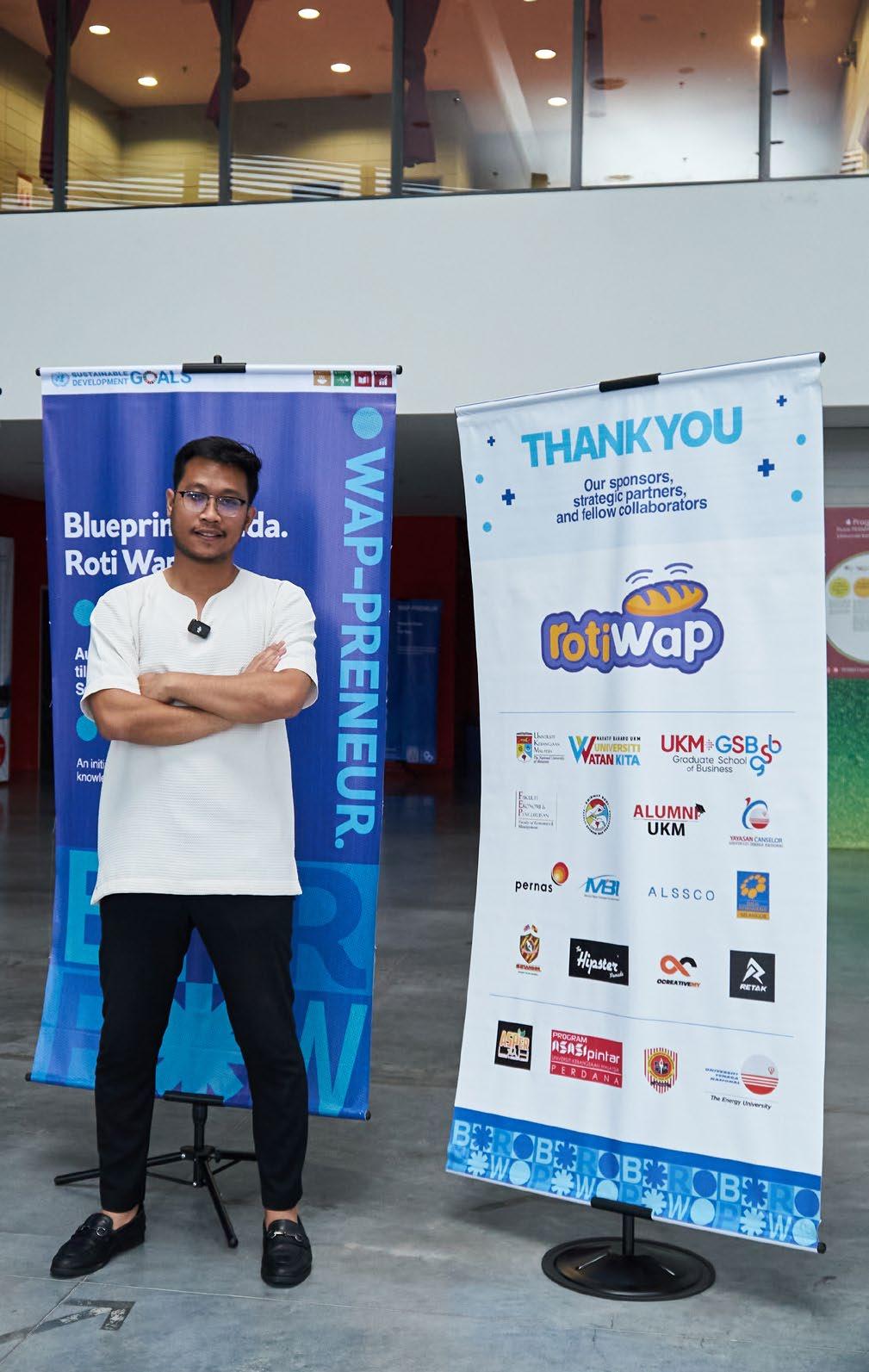
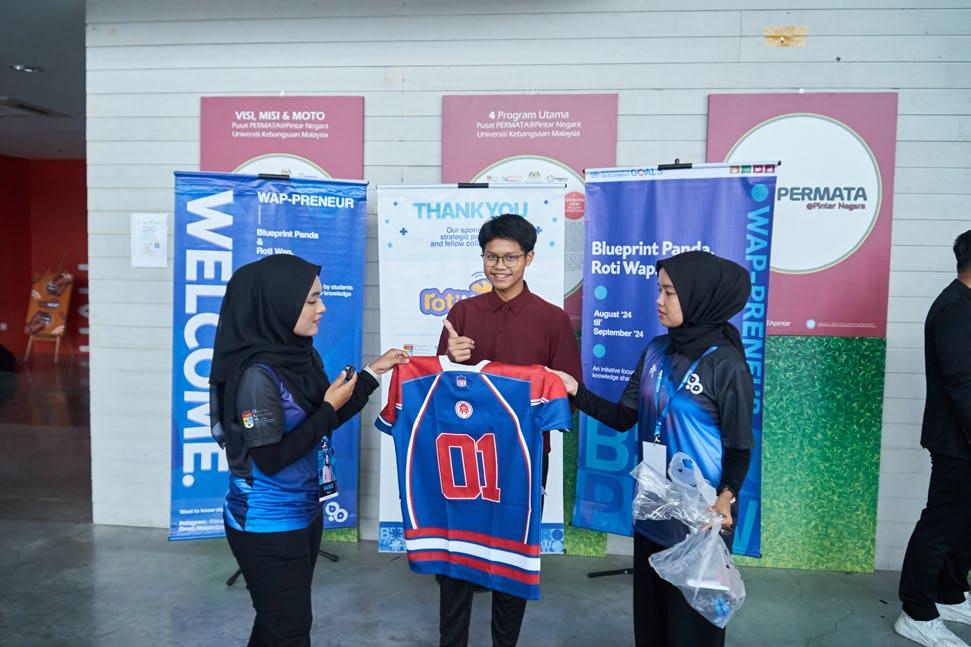
offering cruelty-free, organic products that align with sustainable practices. Their contributions were invaluable to the success of our program.
Retak Apparel
Similarly, Retak Apparel contributed significantly through their in-kind sponsorship of apparel, ensuring our project participants were well-represented. Their generous assistance bolstered the professional appearance of our team and participants, helping us present a unified front.
The Management and Economic Faculty at UKM
The Management and Economic Faculty at UKM also played a vital role by providing financial support, banners, and other necessary resources, ensuring the smooth execution of our project. Their continued backing has been instrumental in bringing our ideas to fruition.
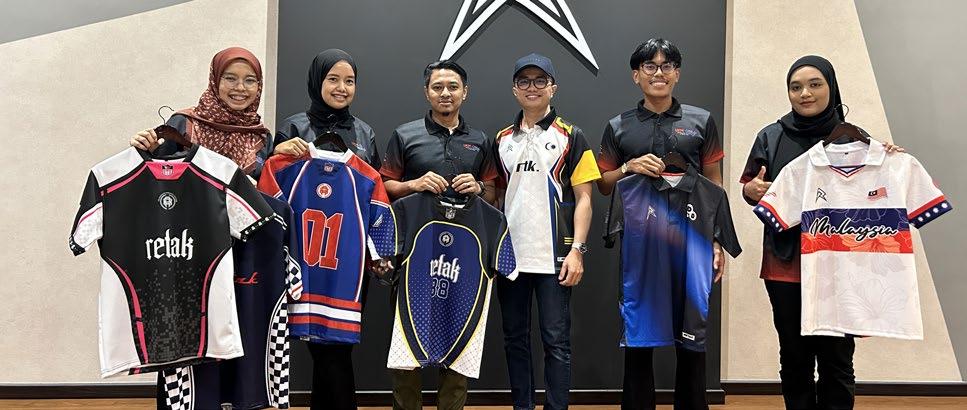
Embassy of the People’s Republic of China
Lastly, we would like to thank the Embassy of the People’s Republic of China for their financial support and strategic partnership, which further solidified the success of this endeavor.
Once again, we extend our deepest gratitude to all our collaborators and sponsors. Your contributions have been invaluable, and we look forward to continuing these fruitful partnerships in future projects and endeavors.
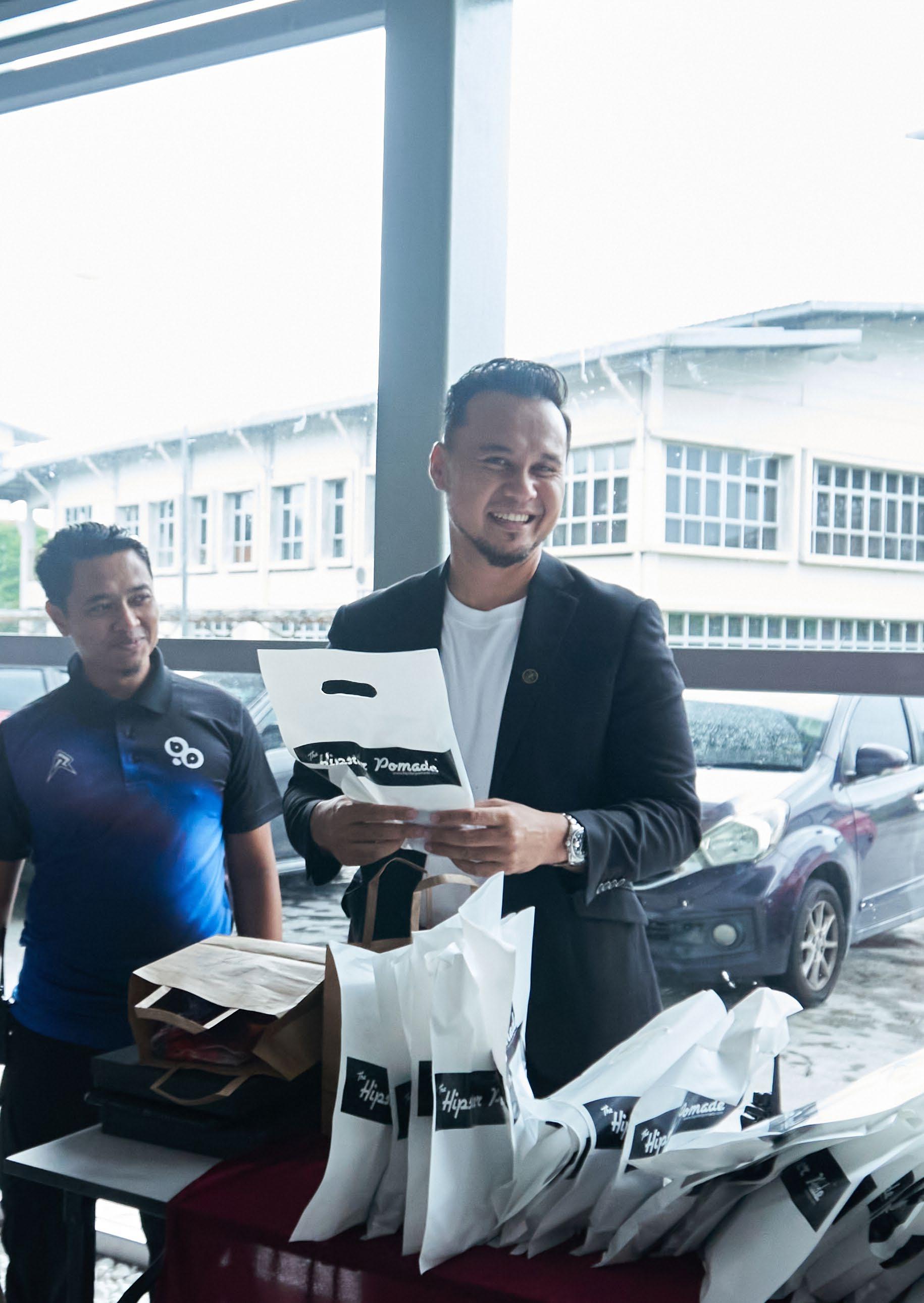

APRIL 2024
MBA PROJECT BRIEFING & COMMITTEE SELECTION
Project theme & supervisor selection
First proposal draft: Meet-up with Dr Laili Abd Ghani
Prepare the budget draft for the consultation fee, event and site visit project
Any related issues or risk of the project
Schedule the activity, project timeline, Gantt Chart
List down the sponsorship and media to be approach
Identify potential collaborators, strategic partnership also SocMed Journey
Submission official proposal to UKM GSB
MAY 2024 MODULE 1: BAMBOOST
Supervisor consultation and update the project development
SocMed awareness and promotion
List down and choose selected SME’s (Rotiwap) for consultation
Official meeting with Rotiwap as a Brandy Panda
Module Training (business consultation/ application)
Submission I-Star UKM
JUNE, JULY 2024 MODULE 2: BUSINESS DEVELOPMENT
Introduce crowdfunding
Meet and greet sponsors (MBI, Hipster Pomade, FEP UKM, Alumni UKM, Otak Cair)
Consultation with Halal International Selangor (HIS) for halal certification
Site visit to Roti Wap Office (Central Kitchen)
Discussion with Perbadanan Nasional Berhad (PERNAS) for licensing (BIT Programme)
Consultation with MyIPO for sharing crucial knowledge on IP management.
Meet ALSSCO (corporate lawyer) for drafting licensing agreement
AUGUST 2024 MILESTONE 3: MARKETING STRATEGY
Billboard Marketing for Rotiwap (Bukit Bintang Billboard)
Get sponsorship for the official shirt of BP from Retak Apparel Company.
Meeting with GPMS Selangor for collaborators/ event speaker
Fundraising from China Embassy
Wap-Preneur Forum: Curhat Sesh with UKM’s (ASASIPintar PERDANA UKM)
Wap-Preneur: Healing with Nature (ASPER UPM)
SEPTEMBER 2024 MILESTONE 4: GRAND FINALE
Write-up week for final report of paperwork
Slide presentation
Mock presentation
Final preparation and grand presentation for MBA Project
Our team successfully secured financial support totaling RM 56,500.00 from a diverse range of contributors, including government bodies, corporations, academic institutions, and individual donations. The largest contribution came from Azri, Lee Swee Seng & Co., amounting to RM 10,000.00, followed by Hipster Pomade, which contributed RM 9,000.00. Other key sponsors included AF Retak Global with RM 6,000.00, Perbadanan Nasional Berhad with RM 6,000.00, and Halal International Selangor, also contributing RM 5,000.00.
In addition, we received generous support from companies like Roti Wap with RM 5,000.00 and OC Creative contributing RM 8,000.00. Menteri Besar Selangor Incorporated and the Embassy of the People’s Republic of China each provided RM 2,000.00, showing support from governmental bodies as well. Contributions from individuals and smaller entities, such as Fakulti Ekonomi dan Pengurusan UKM, Alumni UKM, and an individual donor, further helped to ensure that the program was fully funded and executed successfully.
On the expenses side, the total expenditure amounted to RM 56,500.00, covering all aspects of the program. These expenses were distributed across several key categories, ensuring comprehensive financial management. Marketing and Promotional Expenses accounted for RM 4,977.21, which included costs for bunting, banners, media, and photography. The largest allocation was for Event and Hospitality Expenses, totaling RM 21,299.00. This category covered significant costs for doorgifts, a giveaway, food and beverages, and token panels. Operational Expenses were RM 29,737.74, covering essential items such as printing materials, lanyards, plaques, team member shirts, equipment and tools, the programme report, professional fees, and training and development.
Lastly, Logistics and Transportation expenses came to RM 500.00, ensuring smooth coordination for the event. The expenditure was managed efficiently, with all income utilized, demonstrating the team’s ability to balance the budget while covering all necessary expenses.

We raised
RM 56,500
RM 2,000
Menteri Besar Selangor Incorporated
RM 5,000
Roti Wap
RM 700
Fakulti Ekonomi dan Pengurusan UKM
RM 8,000
Ocreative MY
RM 5,000
Halal International Selangor
RM 300
Alumni UKM
RM 2,000
Embassy of the People’s Republic of China
RM 6,000
AF Retak Global
RM 9,000
Hipster Pomade
RM 6,000
Perbadanan Nasional Berhad
RM 10,000
Azree, Lee Swee Seng & Co.
RM 2,500
Individual
Blueprint Panda focuses on providing business development consultation and event sponsorship strategies for Rotiwap, a Malaysian food brand. The aim of the project is to enable RotiWap to transition into a licensing model, build partnerships for growth, and increase brand visibility through strategic event sponsorships. This report provides an in-depth SWOT analysis of the project, evaluating Rotiwap’s positioning and growth potential.
To support Rotiwap’s scalability, the company will adopt a licensing business model, enabling expansion through franchise opportunities. This involves establishing key partnerships with organizations such as PERNAS and Halal International Selangor to guide the process and ensure compliance
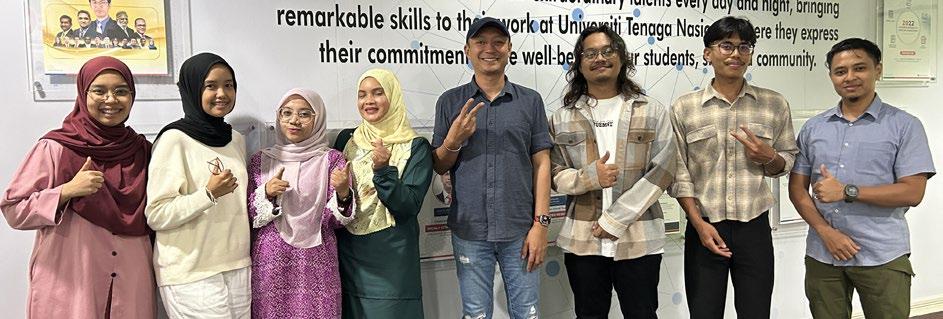
Blueprint Panda established key partnerships with PERNAS and Halal International Selangor, giving Rotiwap access to an extensive network, simplifying the licensing process, and building credibility. These relationships offer significant advantages, particularly for halal-certified markets. These partnerships demonstrate our ability to identify and secure key allies for our clients, ensuring long-term growth opportunities.
The licensing business model enables Rotiwap to scale without requiring significant investments in new physical outlets. By focusing on licensing, the brand can expand quickly by leveraging its existing reputation and transferring operational risks to licensees while maintaining control over quality and branding.
Sponsoring events such as Wap-Preneur and Healing with Nature has provided Rotiwap with significant brand exposure. Wap-Preneur, in particular, highlighted Rotiwap’s entrepreneurial spirit through founder Aqil Ameerel’s participation, strengthening the brand’s credibility and engagement with young entrepreneurs and business enthusiasts.
with industry standards. Additionally, we will assist in preparing comprehensive licensing agreements and developing training and operational modules for franchisees. To further enhance RotiWap’s brand visibility and networking opportunities, we will organize and sponsor two key events: Wapreneur and Healing with Nature, which will engage the community and strengthen brand presence.
The SWOT analysis offers insight into the internal and external factors that affect the success of Blueprint Panda. It highlights Rotiwap’s strengths, weaknesses, opportunities, and threats as they transition toward a licensing model and enhance brand growth through event sponsorship.

Blueprint Panda helped Rotiwap develop detailed training and operational modules, ensuring that licensed outlets operate consistently. This thorough preparation gives new licensees the necessary resources to maintain the brand’s standards across all outlets.
Our team at Blueprint Panda possesses deep knowledge of the Malaysian business environment, particularly in the food and beverage industry, which has allowed us to guide Rotiwap effectively through its transition to a licensing model. This expertise adds value to our client’s journey toward scalability.
By developing custom training and operational modules for Rotiwap’s licensing model, we have provided a highly tailored solution that ensures operational consistency and brand integrity across licensed outlets. This highlights our team’s ability to create bespoke solutions for specific business needs.
Organizing and sponsoring the Wapreneur forum allowed us to showcase our event planning skills while enhancing Rotiwap’s visibility. Our ability to engage notable figures like the founder of Rotiwap and plan meaningful events adds significant value to our consulting offerings.


Dependence on External Partners
Rotiwap’s reliance on partnerships with organizations like PERNAS for licensing introduces a degree of dependence. Any delays or changes in these partners’ priorities could affect Rotiwap’s growth, leaving it vulnerable to factors beyond its control.
Operational Complexity
Transitioning to a licensing model adds operational complexity. Rotiwap will need to manage quality and consistency across multiple licensees, which can be challenging, particularly if the company lacks sufficient internal resources or oversight mechanisms.
Resource Management
As a consulting team, we may face limitations in managing multiple project facets, such as business development, licensing, and event coordination, with a lean team. Balancing the various responsibilities might strain our internal resources, potentially affecting timelines and outcomes.
Consulting Time Constraints
Given the scope of work, including licensing agreements, partnerships, event management, and module preparation, time constraints could impact the depth of our engagement or execution quality. As MBA students managing multiple priorities, the pressure to deliver could affect project outcomes.

7.3 Opportunities
Market Expansion
The licensing model opens new market opportunities for Rotiwap within Malaysia and potentially in neighboring countries with high demand for halal-certified food. By strategically placing licensed outlets in high-traffic areas such as malls and universities, Rotiwap can grow its market presence significantly.
Networking & Influence
The Wap-Preneur forum offers Rotiwap valuable networking opportunities within the entrepreneurial ecosystem. By positioning Rotiwap’s founder as a thought leader, the brand can continue to buid meaningful relationships and extend its influence beyond the food industry.
Health & Wellness Trend
Sponsoring the Healing with Nature event aligns Rotiwap with health and wellness trends. This association allows Rotiwap to tap into the growing market for health-conscious consumers, potentially introducing healthier menu options or aligning with eco-friendly initiatives.
Long-term Event Partnerships
Continued involvement in event sponsorships creates opportunities for Rotiwap to form long-term partnerships, further increasing brand exposure and engagement. These partnerships could evolve into co-hosting or organizing events that directly align with Rotiwap’s values and business goals.
The success of this project presents an opportunity for us to specialize in helping other brands adopt a licensing model. Our experience with Rotiwap’s transition can be used as a case study to attract future clients seeking business model transformations, expanding our consulting portfolio.
The event management and sponsorship planning executed during this project, particularly with the Wap-Preneur forum, can be leveraged to position us as a go-to consultant for eventbased marketing and brand visibility strategies. This could create new revenue streams or consulting opportunities in event management.
The relationships we established with key partners like PERNAS and Halal International Selangor not only benefit Rotiwap but also open opportunities for us to collaborate with these organizations in future projects. This strengthens our consultancy’s network, giving us access to a wider range of resources and potential business opportunities.
Long-term
If Rotiwap’s licensing strategy proves successful, this could lead to a long-term consulting partnership where we support Rotiwap in further growth initiatives, operational expansions, or new market entries. This ongoing relationship could provide recurring business for our team.
The food and beverage industry in Malaysia is highly competitive, with other local brands potentially exploring the licensing model. Rotiwap must differentiate itself to attract high-quality licensees and maintain consumer loyalty, especially against larger competitors with more resources.
Licensing agreements and halal certification introduce complex regulatory requirements. Rotiwap will need to ensure full compliance with legal and certification standards, both domestically and internationally, to avoid delays, legal challenges, or reputational damage.
Sponsoring events comes with inherent risks, including low attendance or negative reception, which could reflect poorly on the brand. Rotiwap must carefully select future events to ensure they align with the brand’s image and offer sufficient return on investment.
Economic downturns, rising inflation, or a decrease in consumer spending could affect Rotiwap’s ability to attract new franchisees and grow through licensing. Additionally, cost-of-living increases may influence consumer dining behavior, reducing sales in licensed outlets.
While this project provides significant value to Rotiwap, our consultancy’s success is dependent on the client’s execution. If Rotiwap struggles to implement the licensing model effectively, it could reflect poorly on us, even though we provided the necessary support.
Other consulting firms or individual consultants may begin to focus on similar business development projects, particularly in the fast-growing halal market. As a young consultancy, we may face competition from more established firms offering similar services.
The comprehensive nature of this project—ranging from licensing and partnership development to event sponsorships—could stretch our capacity. If the project expands too quickly or beyond initial expectations, we may struggle to keep up without adding additional resources or consultants.
Any adverse economic conditions, such as a downturn in the consumer market, could affect Rotiwap’s ability to execute the licensing model, which in turn could affect our success. Additionally, economic challenges may reduce the number of brands seeking consultancy services for expansion, potentially impacting our business pipeline.

The SWOT analysis of Blueprint Panda highlights the strengths and opportunities that position Rotiwap for success in scaling through licensing while identifying potential weaknesses and threats that require careful management.
By leveraging strategic partnerships, comprehensive operational modules, and event sponsorships, Rotiwap has established a solid foundation for growth. However, the company must remain vigilant in managing external dependencies and maintaining operational consistency across licensed outlets.
Blueprint Panda has created valuable pathways for Rotiwap’s future, and with the right strategic focus, the brand is poised to expand its market presence and strengthen its position within the food and beverage industry.
The Blueprint Panda project is more than just a series of strategic business initiatives; it is a carefully crafted narrative of growth, innovation, and social impact. As Rotiwap embarked on its journey toward becoming a household name in Malaysia, Blueprint Panda served as both a guide and a partner, paving the way for sustainable success and meaningful community engagement.
This report delves into the significant contributions of the Blueprint Panda project, offering a detailed exploration of how strategic planning, social responsibility, and alignment with the United Nations Sustainable Development Goals (SDGs) have come together to create a lasting impact.
Halal Certification Consultation: Paving the Way for Ethical Excellence
One of the earliest and most crucial steps in Rotiwap’s growth journey was understanding the importance of Halal certification. In a country where religious and cultural values are deeply intertwined with consumer choices, securing this certification is not just a formality—it’s a testament to a brand’s commitment to ethical excellence.
Recognizing this, Blueprint Panda took on the responsibility of guiding Rotiwap through the intricate process of applying for Halal certification.
While the certification itself has not yet been acquired, Blueprint Panda’s role in this phase has been founda-
tional. By facilitating consultations with Halal International Selangor, Blueprint Panda ensured that Rotiwap was well-prepared to meet the rigorous standards required for certification. This preparation included detailed guidance on sourcing, production processes, and compliance with religious norms.
Although the final certification is still pending, the groundwork laid by Blueprint Panda has positioned Rotiwap to achieve this critical milestone, which will ultimately open doors to new markets and strengthen consumer trust.
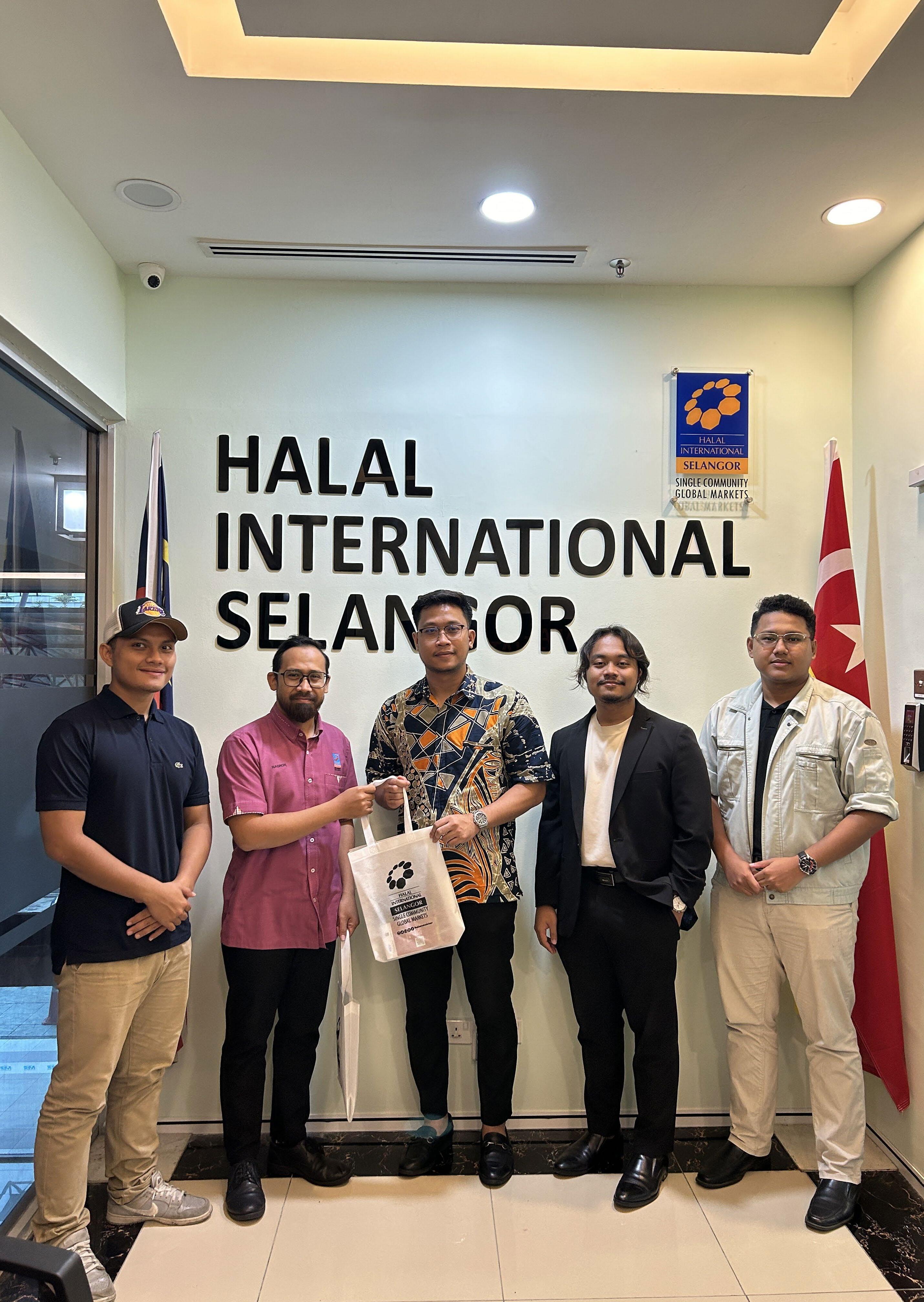
“Before anything else, preparation is the key to success. The successful warrior is the average man, with laser-like focus on his goals. It is not enough to be busy; the question is: what are we busy about?
By failing to prepare, you are preparing to fail. Plans are nothing; planning is everything. In the end, success is neither magical nor mysterious. Success is the natural consequence of consistently applying the basic fundamentals.” –
Various attributions including Alexander Graham Bell, Bruce Lee, Benjamin Franklin, and Dwight D. Eisenhower.
As Rotiwap set its sights on expanding into new territories, Blueprint Panda recognized the strategic importance of visibility and accessibility.
The bustling LRT and MRT stations, which serve as the lifeblood of Malaysia’s urban transit system, presented an ideal opportunity to bring Rotiwap’s unique offerings to a broader audience. However, this expansion was not just about securing locations—it was about creating a presence that resonated with the daily rhythms of urban life.
Blueprint Panda played a crucial role in the planning and preparation for this expansion. Although no additional outlets have yet been opened, the meticulous planning involved in this phase ensured that when the time comes, Rotiwap will be ready to make a significant impact.
The process involved selecting optimal locations, designing booths that were both functional and reflective of the brand’s identity, and coordinating with designers to ensure a seamless integration into the urban landscape.
This proactive approach has set the stage for future growth, ensuring that Rotiwap’s expansion into high-traffic areas will be executed with precision and strategic foresight.
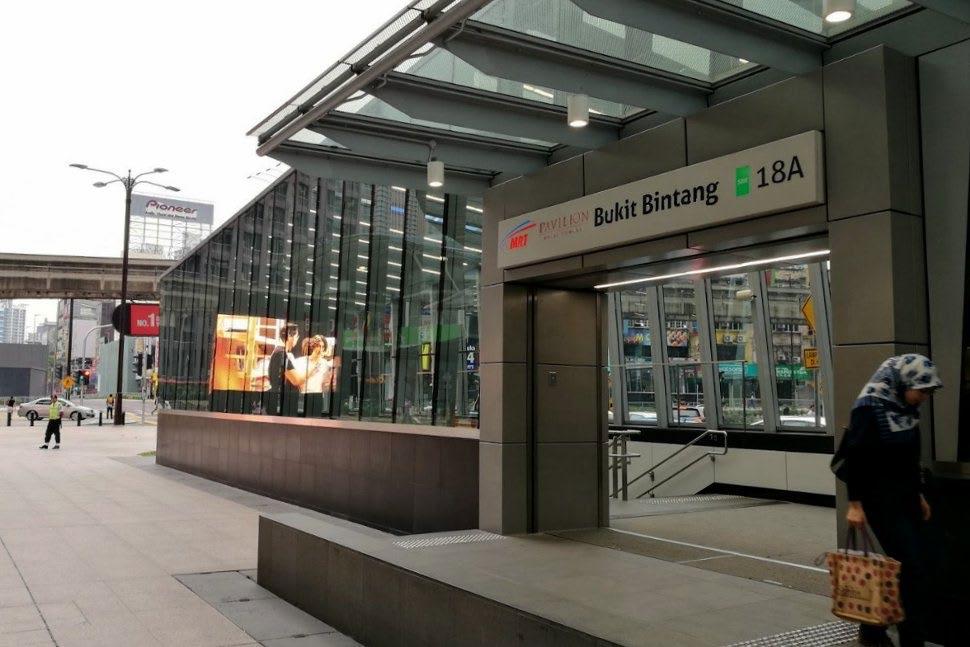
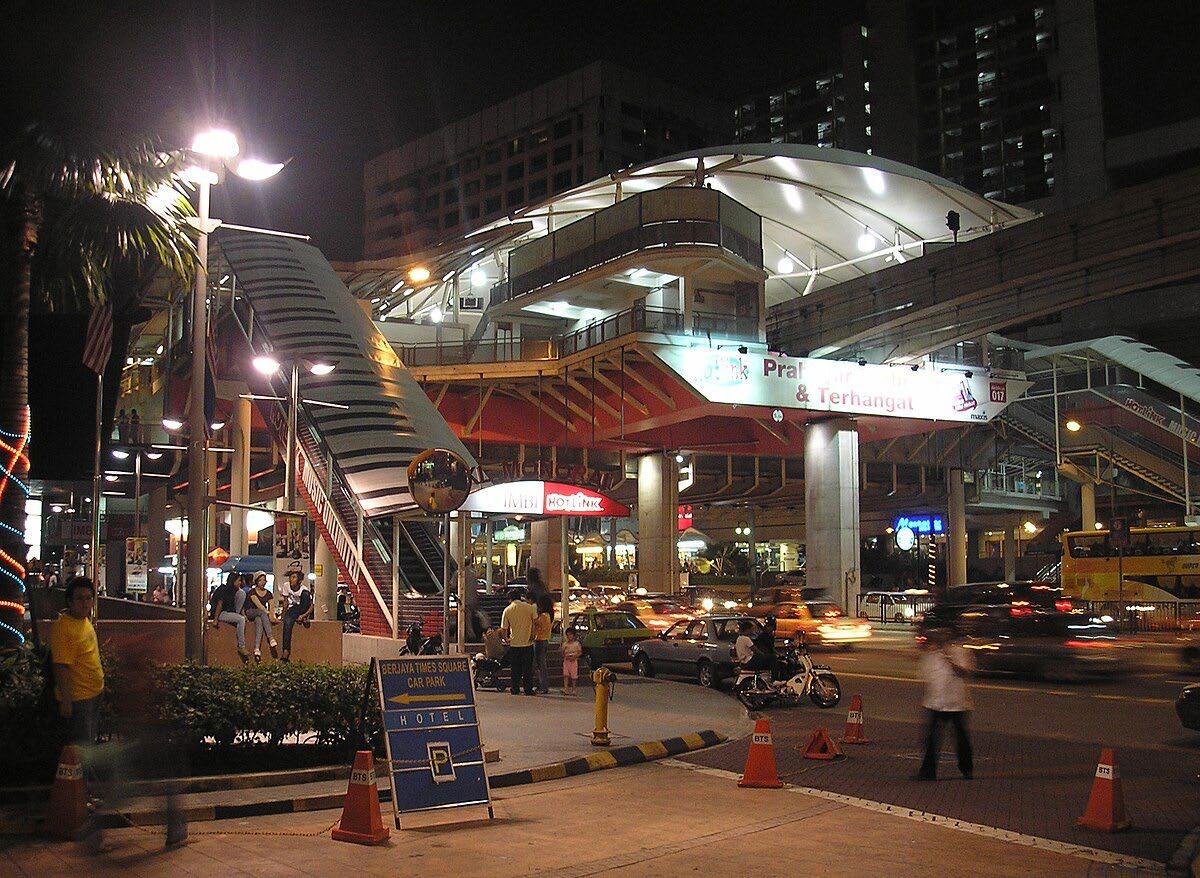

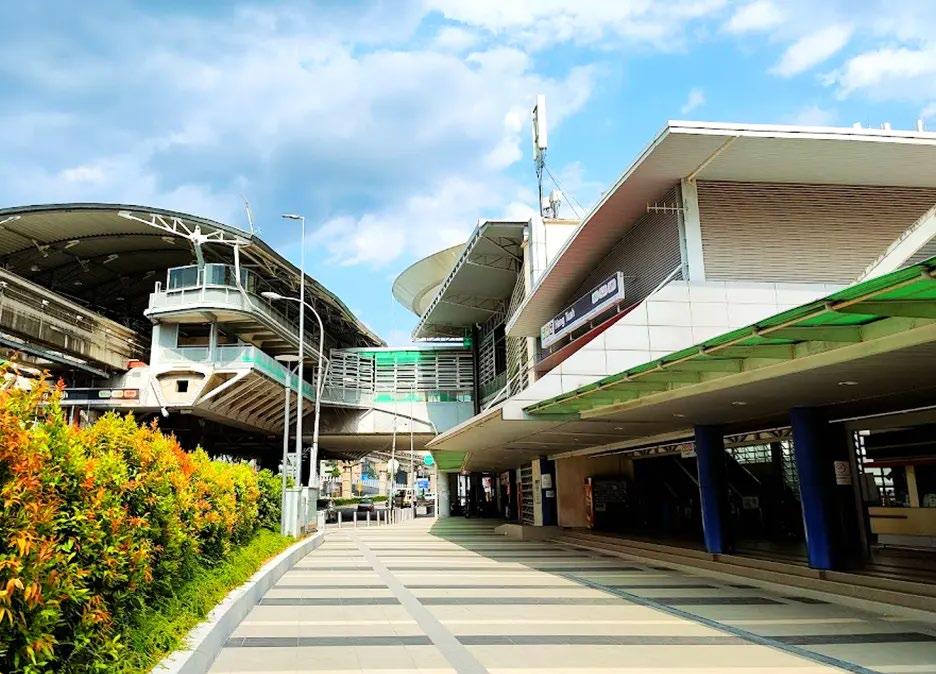

In an era where digital presence is key to brand success, Blueprint Panda recognized the importance of modernizing Rotiwap’s marketing strategies. The introduction of digital billboard advertising at Bukit Bintang marked a significant milestone in this journey.
This wasn’t just about putting up an ad—it was about making a statement. Bukit Bintang, known as the beating heart of Kuala Lumpur’s commercial activity, offered the perfect platform for Rotiwap to showcase its brand to both locals and international visitors.
The digital billboard, strategically placed in one of the city’s most trafficked areas, was designed to capture attention and create lasting impressions. But beyond the immediate visual impact, this move into digital advertising represented Rotiwap’s commitment to innovation and sustainability.
By choosing digital over traditional advertising methods, Blueprint Panda ensured that Rotiwap’s marketing efforts were not only effective but also environmentally responsible. This initiative highlighted the brand’s forward-thinking approach, positioning Rotiwap as a leader in the modern food and beverage landscape. The digital billboard is more than just an ad—it’s a symbol of Rotiwap’s evolution, driven by Blueprint Panda’s strategic vision.
8.1.3 Development of a Scalable Franchising Framework: Ensuring Consistency in Quality and Experience the brand’s values and standards are upheld consistently across all outlets. The licensing agreements were equally thorough, protecting Rotiwap’s intellectual property and providing a clear structure for franchisee compliance.
Scaling a beloved local brand like Rotiwap requires more than just ambition—it requires a robust framework that ensures every new outlet delivers the same quality and experience that customers have come to expect. Understanding this, Blueprint Panda took on the task of developing a comprehensive franchising framework, tailored to Rotiwap’s unique needs.
Collaborating closely with PERNAS, Blueprint Panda crafted a set of Standard Operating Procedures (SOPs) and licensing agreements that would serve as the backbone of Rotiwap’s franchising efforts. These SOPs were designed to cover every aspect of franchise operations, from day-to-day management to customer service protocols, ensuring that
This framework is not just a set of guidelines—it’s a strategic blueprint for sustainable growth. By laying down these foundations, Blueprint Panda has ensured that Rotiwap can expand its reach without compromising on quality or customer experience. This contribution is critical for maintaining the brand’s integrity as it scales, allowing Rotiwap to grow confidently and sustainably.

8.2.1 Wap-Preneur Program: Fostering a New Generation of Entrepreneurs
At the heart of Blueprint Panda’s mission is a commitment to social responsibility, and the Wap-Preneur program is a shining example of this dedication. Designed to empower and inspire the next generation of Malaysian entrepreneurs, this program went beyond traditional CSR activities by engaging directly with students through a series of impactful events.
Wap-Preneur: Curhat Sesh with UKM’s was the program’s inaugural event, held with ASASIpintar PERDANA students. This forum brought together three esteemed UKM alumni, two of whom had received the “Alumni Terbilang UKM” award, while the third had won the “Anugerah Diraja” for academic excellence.
The forum provided foundation students with invaluable insights into the intersection of entrepreneurship and academic success, offering them role models who had excelled both in business and in their studies. This event not only highlighted the importance of balancing academic pursuits with entrepreneurial aspirations but also reinforced the idea that success in one area can complement and enhance success in another.



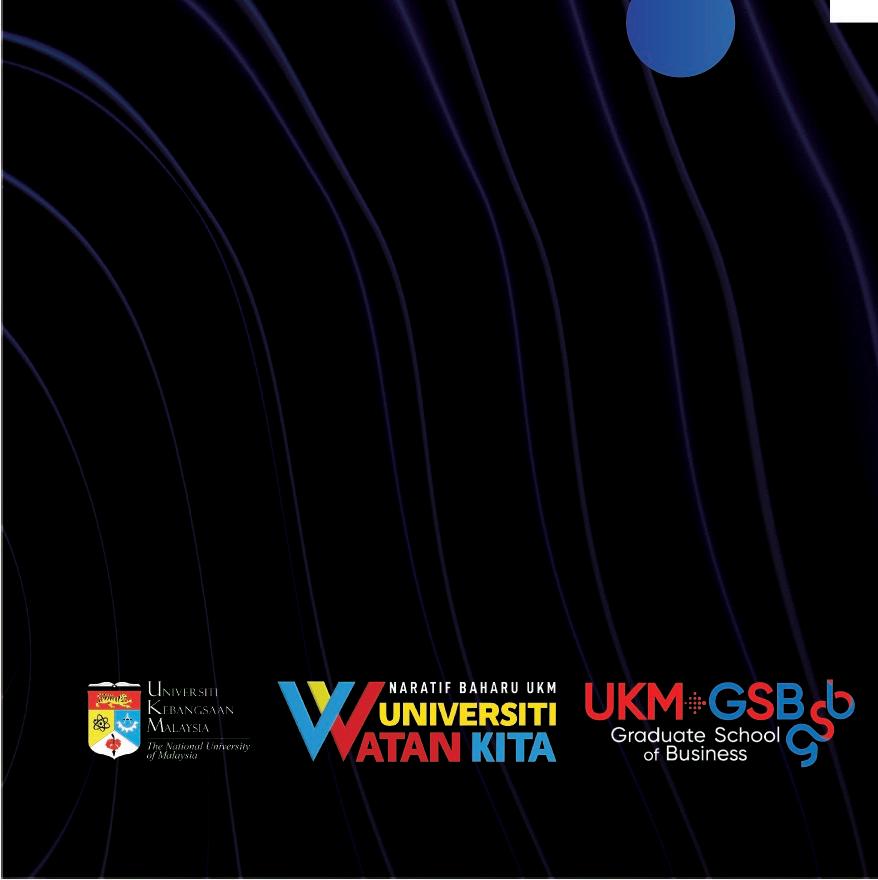
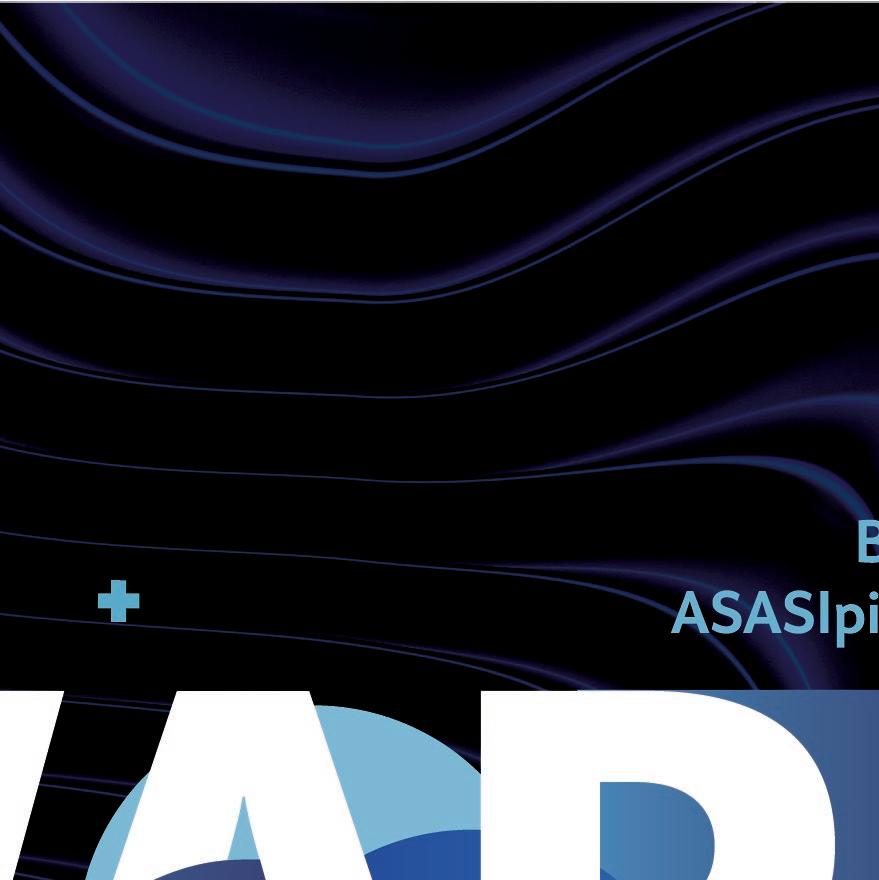
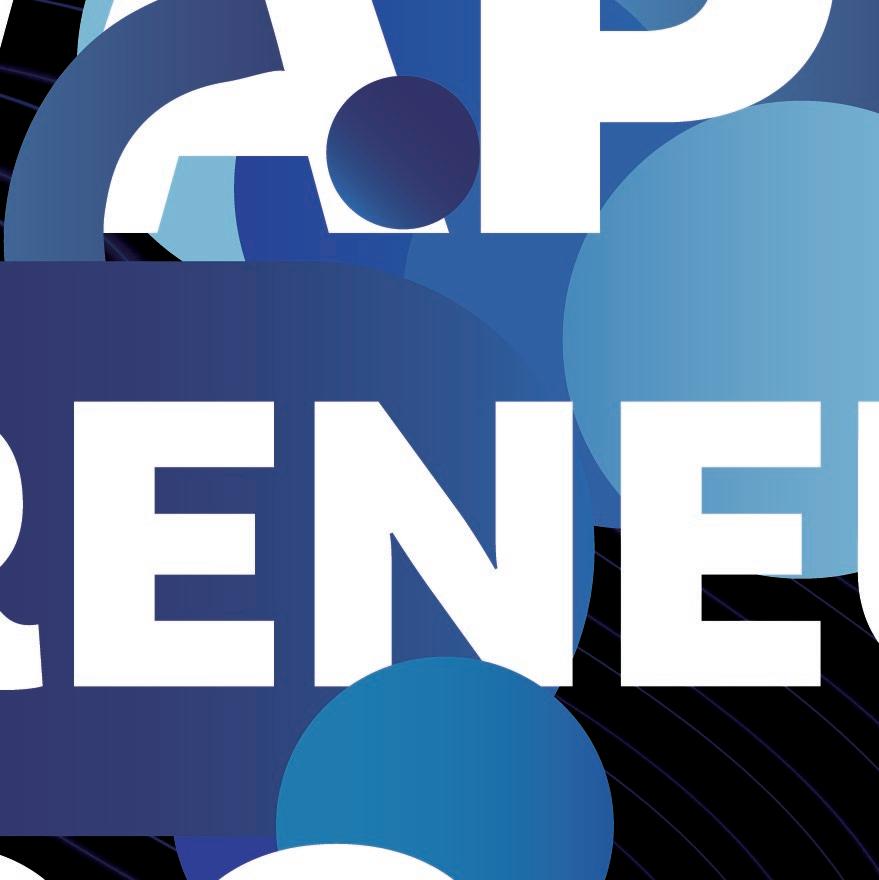


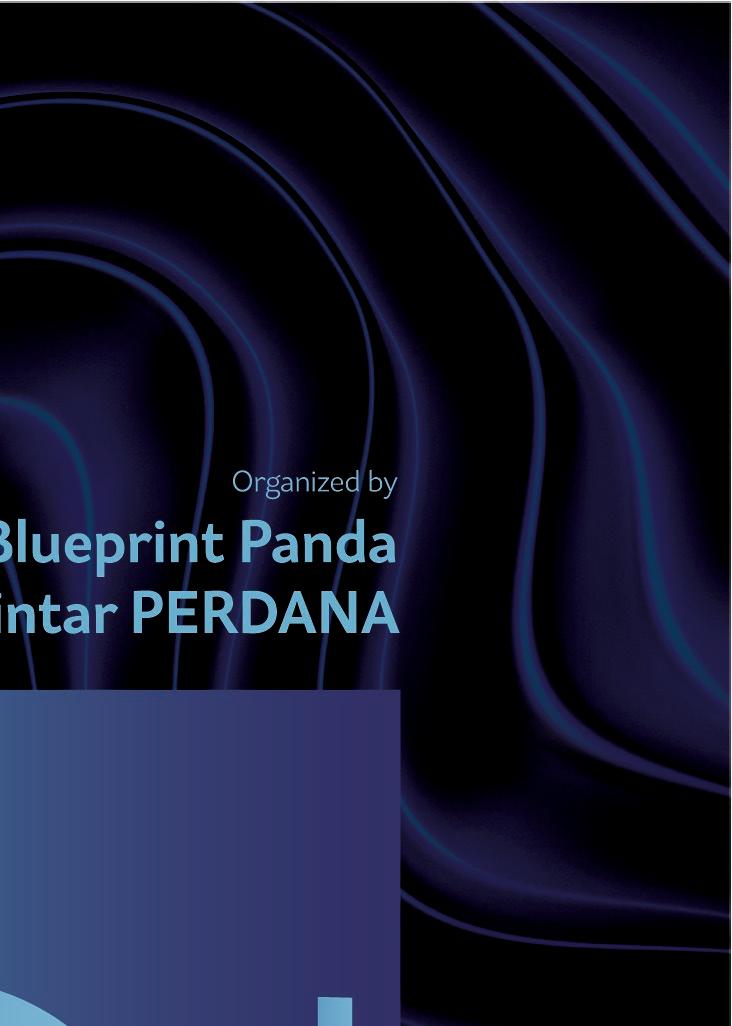



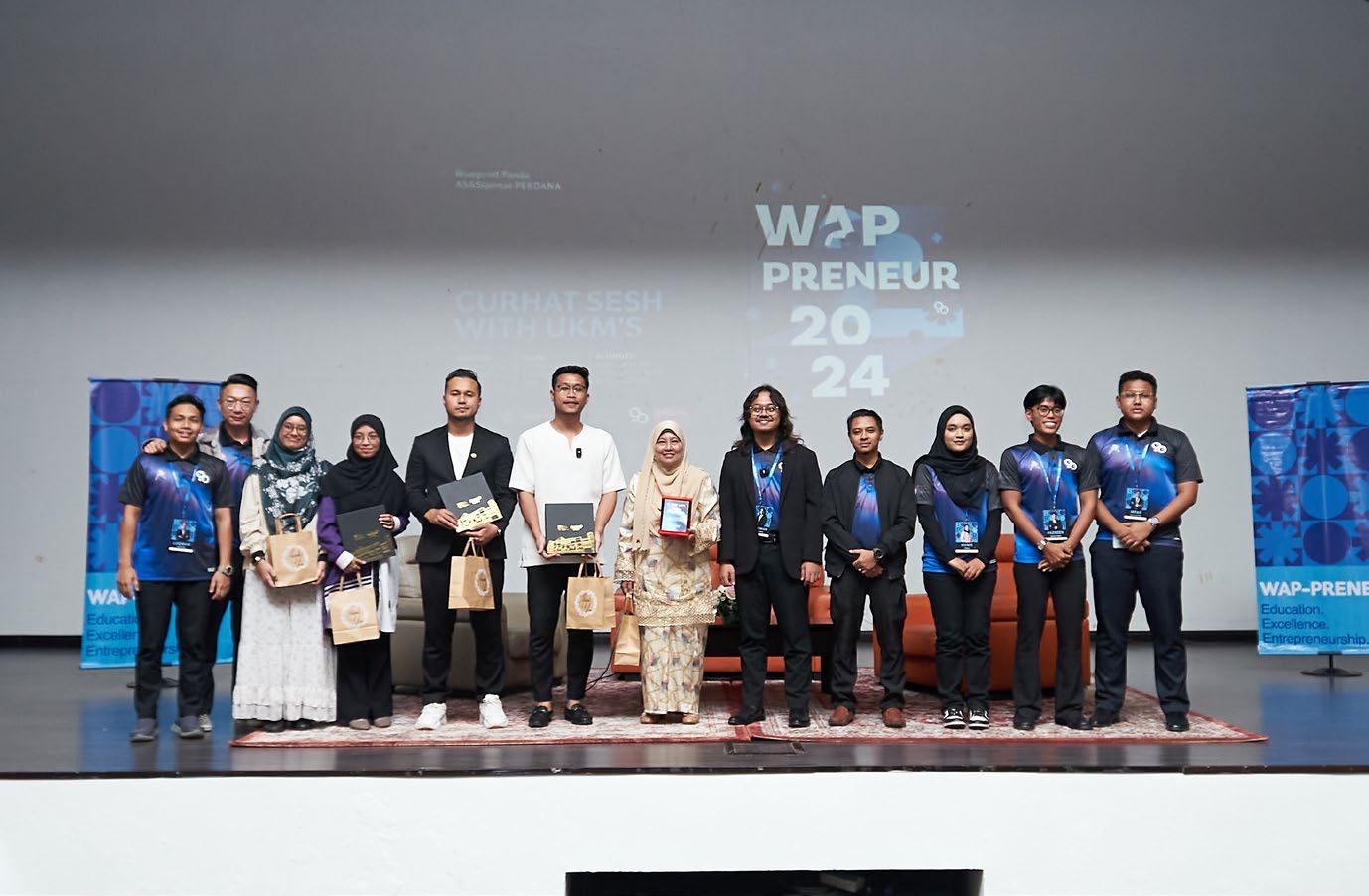

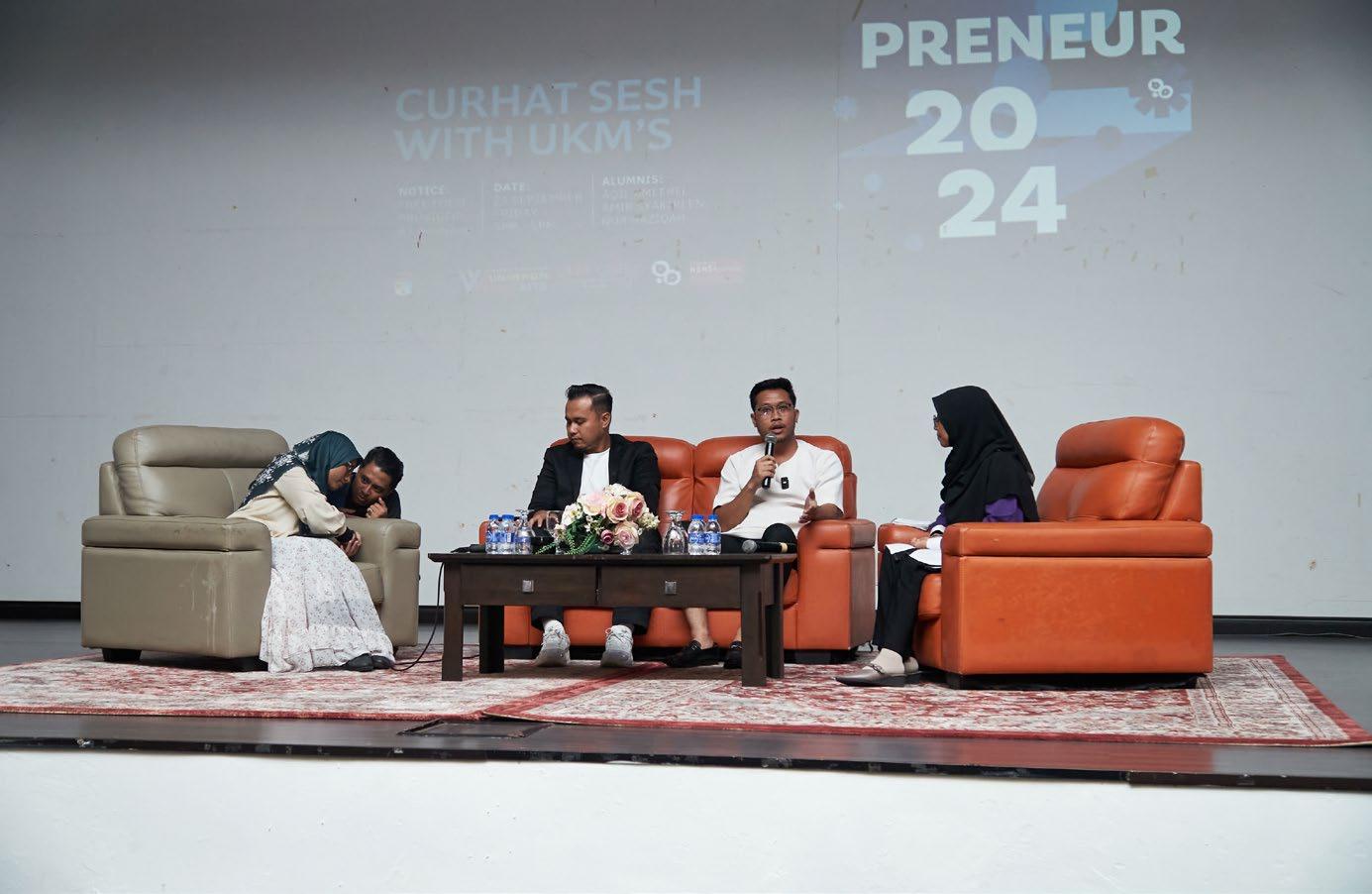
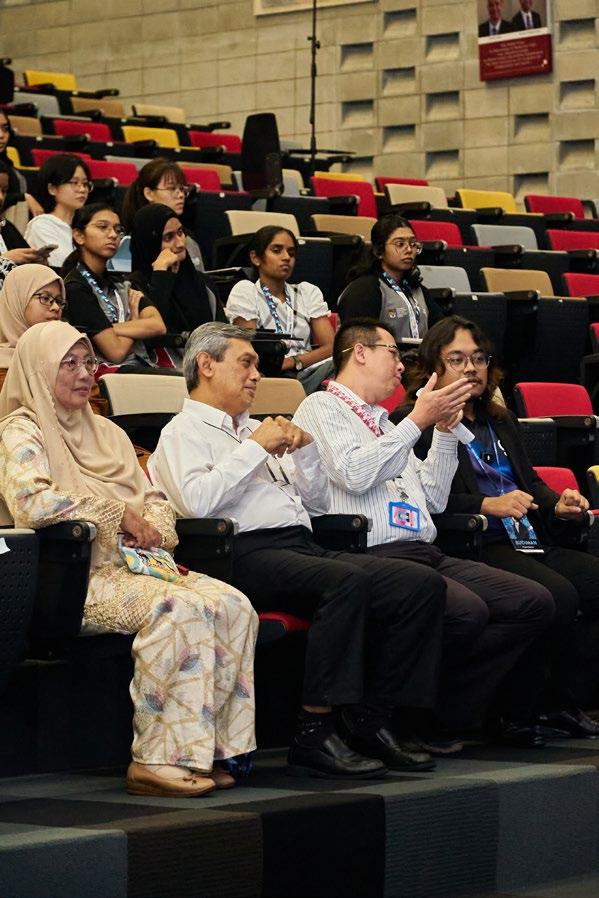
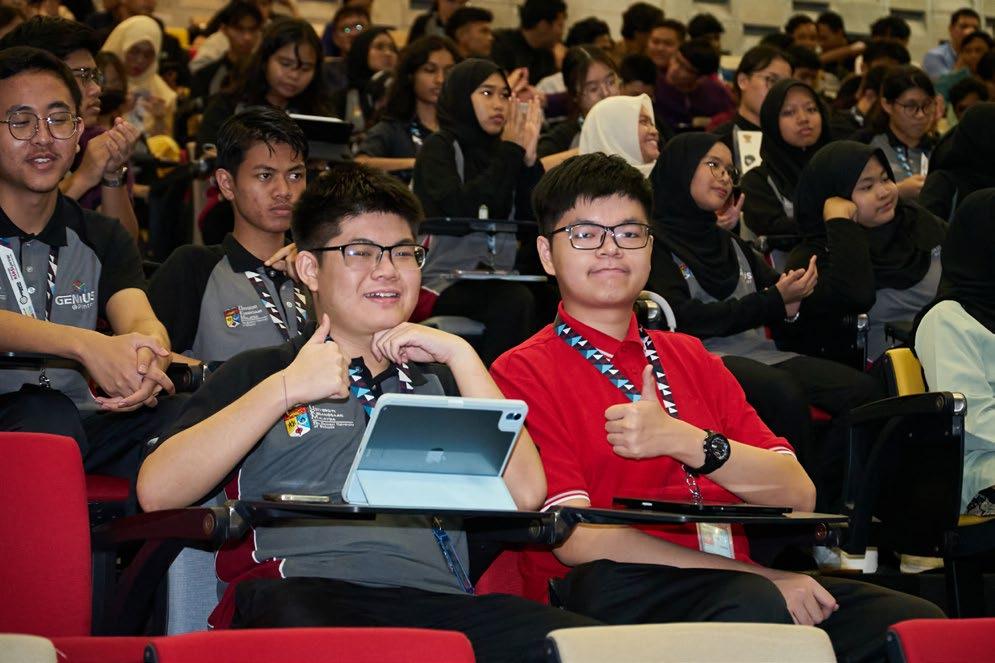
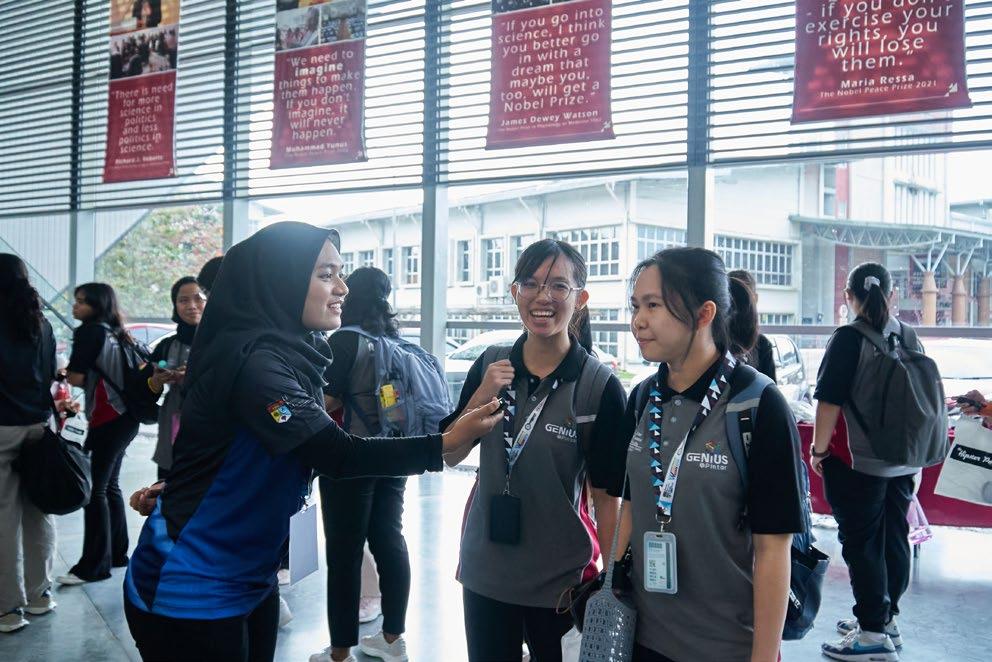




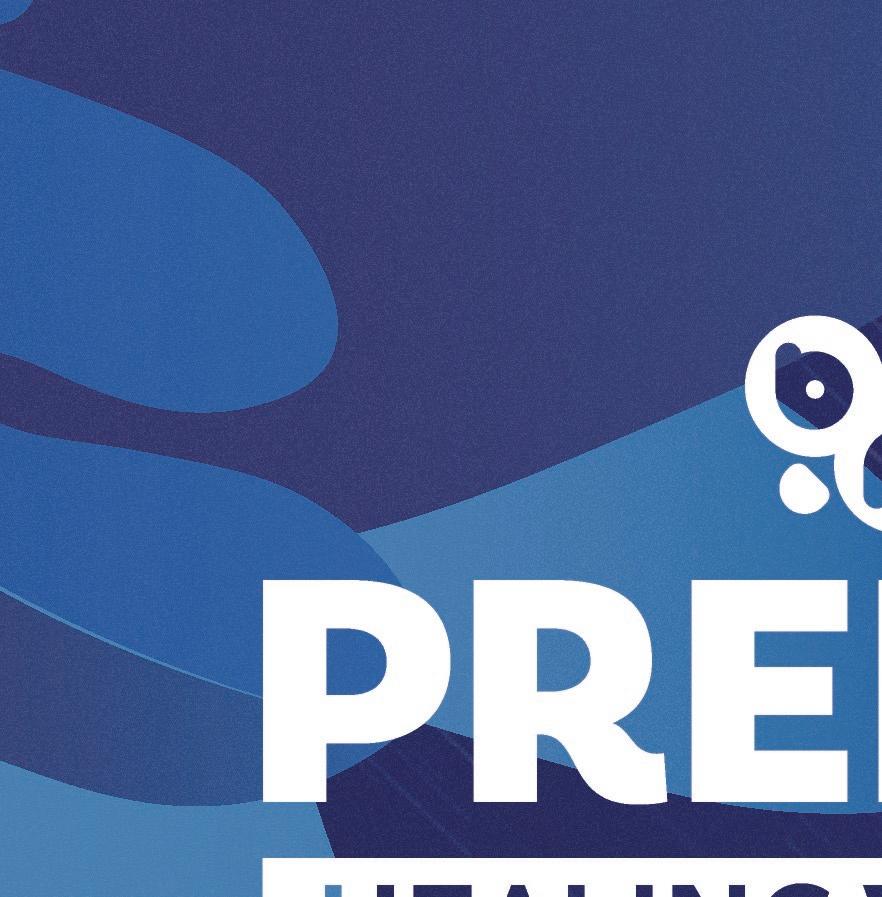


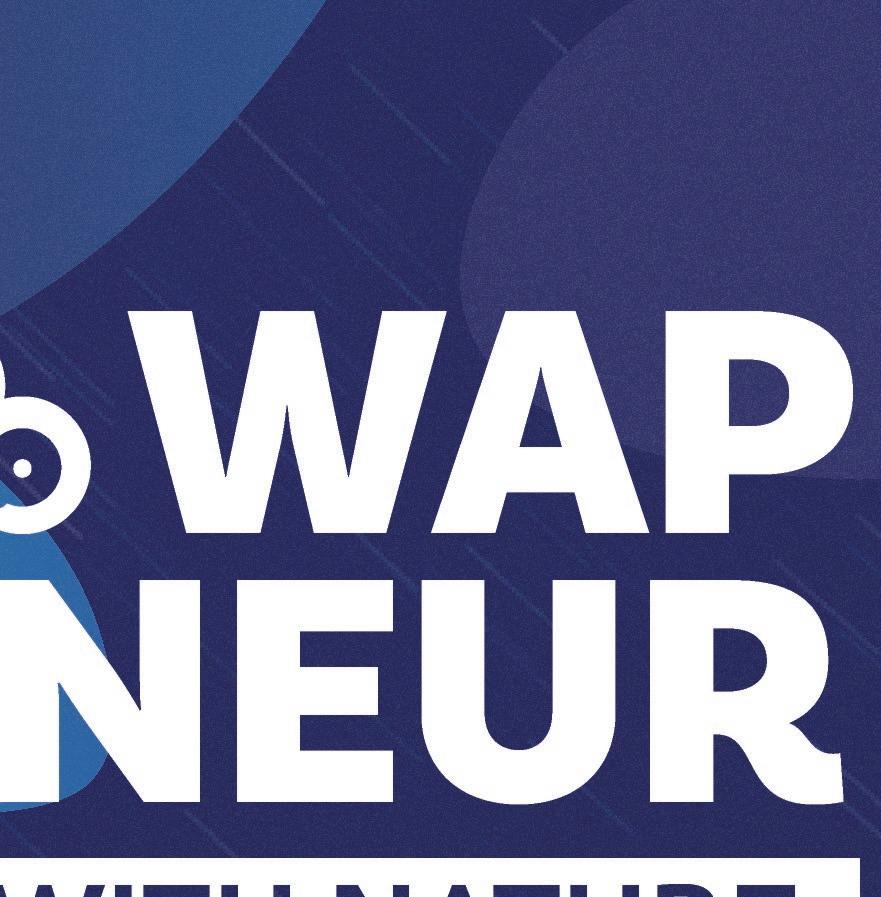


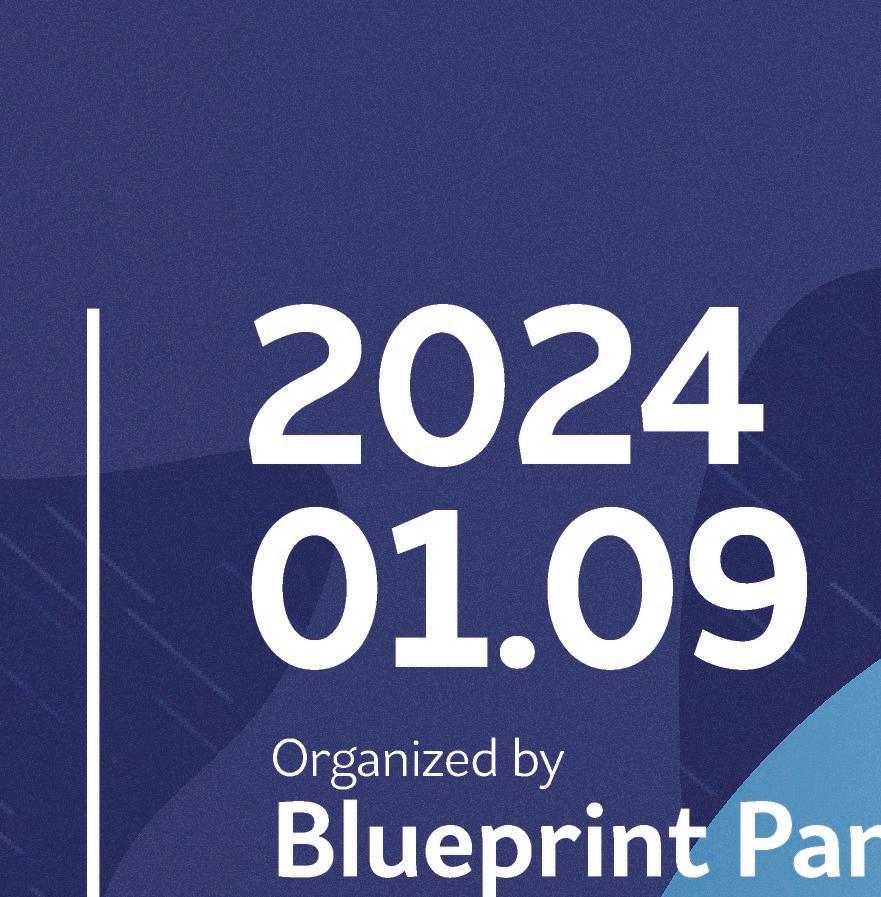
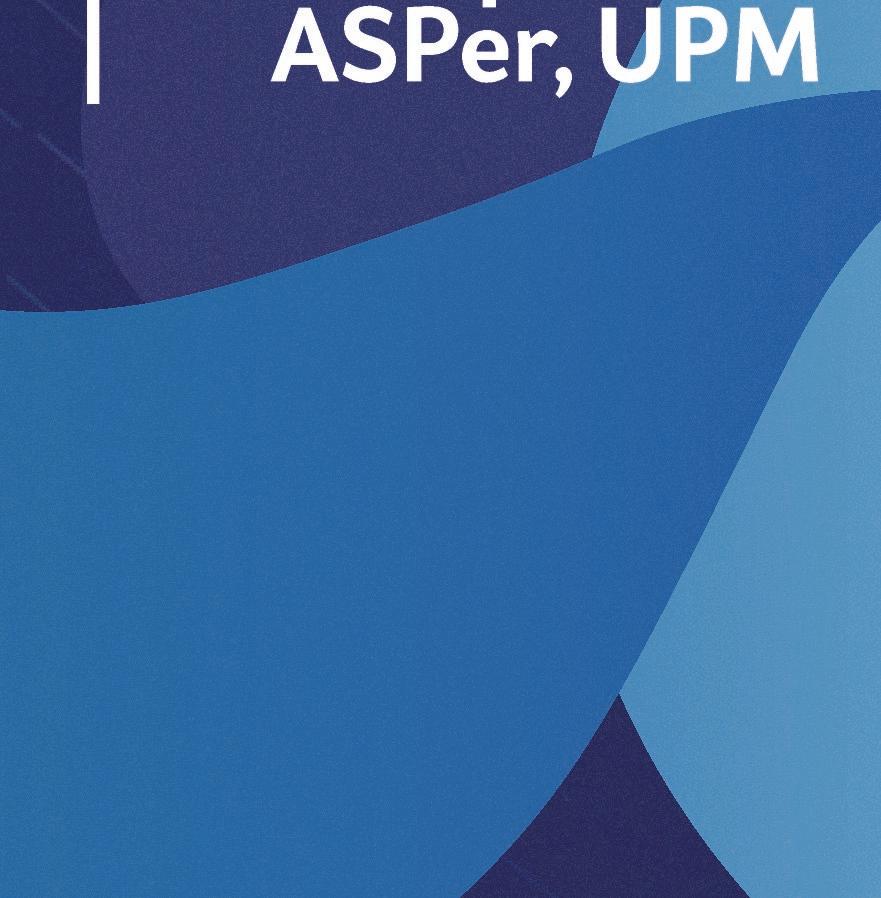







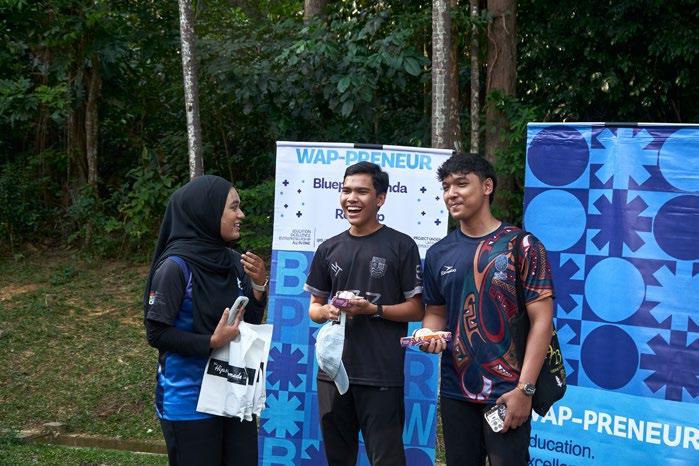
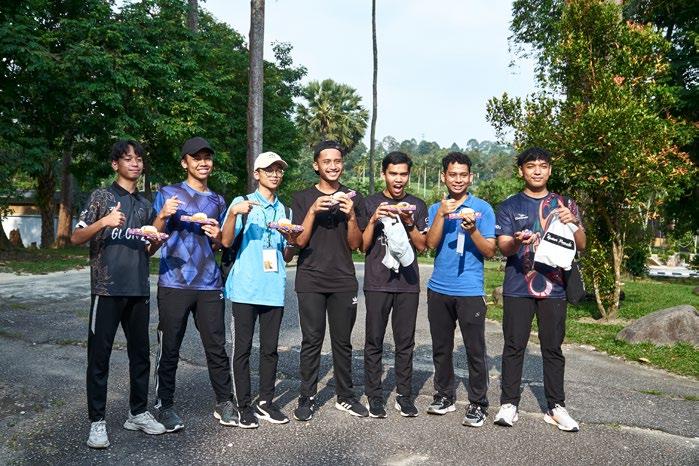
Wap-Preneur: Healing with Nature was the second event, hosted in collaboration with UPM’s ASper program. This event took a unique approach by combining nature with spiritual and educational development.
Held in a serene natural setting, the program focused on personal growth and self-improvement, encouraging students to reflect on their life goals and the role of education in achieving them. The “kerohanian” aspect of the event added a spiritual dimension, making it a holistic experience that resonated deeply with the participants.
By integrating education with nature and spirituality, Blueprint Panda provided students with a well-rounded perspective on life and learning.
In each of these events, Rotiwap provided free food as
part of a brand awareness campaign, seamlessly integrating the brand into the student experience. The Wap-Preneur program is more than just a series of events—it’s a long-term investment in the future of Malaysia’s youth, fostering a spirit of entrepreneurship and leadership that will benefit the community for years to come.


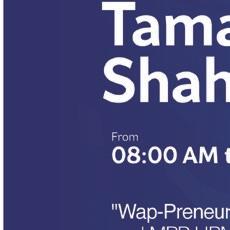


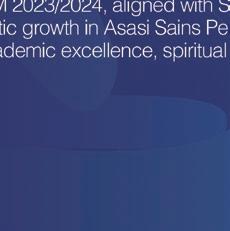


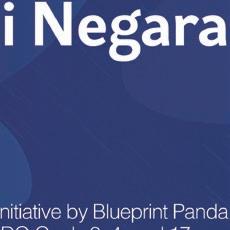

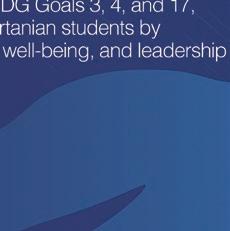

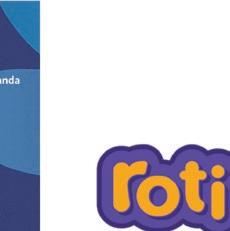

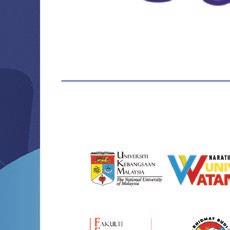
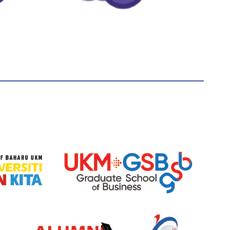

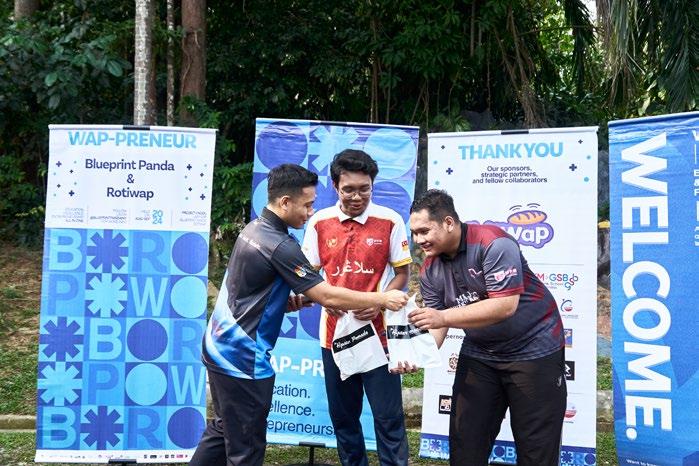
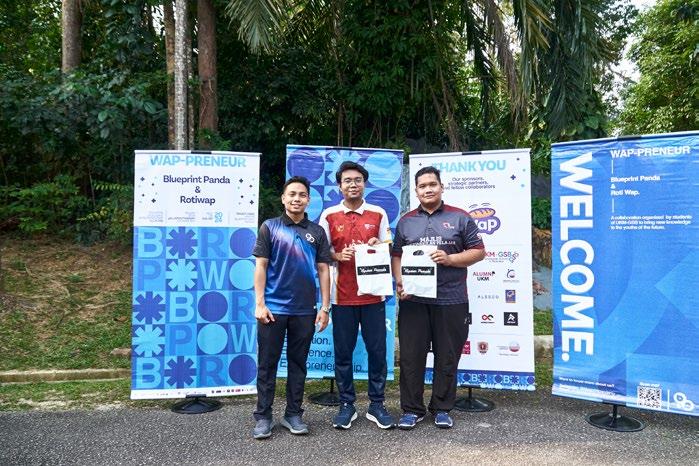
While the expansion of Rotiwap’s outlets is still in the planning stages, Blueprint Panda’s efforts in preparing for this growth will eventually have significant implications for local employment and economic development. The meticulous planning involved in this phase ensures that when new outlets are opened, they will create job opportunities and contribute to the economic vitality of the communities in which they are located.
Blueprint Panda’s approach to expansion is grounded in inclusivity, with a focus on creating opportunities for a diverse range of individuals, including youth, women, and underrepresented groups. By planning for growth that is both strategic and socially responsible, Blueprint Panda has laid the foundation for an expansion that will not only benefit Rotiwap but also the broader community. This proactive approach reflects a deep commitment to CSR, ensuring that business growth goes hand in hand with positive social impact.
In developing Rotiwap’s franchising framework, Blueprint Panda has placed a strong emphasis on ethical governance. The SOPs and licensing agreements crafted as part of this framework are designed to ensure that all franchise operations are conducted with integrity, transparency, and accountability. This governance structure is critical for maintaining the consistency and quality of the Rotiwap brand as it expands, protecting the brand’s reputation while also providing franchisees with clear guidelines for success.
By embedding ethical principles into the very fabric of Rotiwap’s expansion strategy, Blueprint Panda has set a new standard for responsible franchising in the SME sector. This contribution is essential not only for safeguarding the brand’s values but also for ensuring that Rotiwap’s growth is sustainable and aligned with broader social goals. The emphasis on ethical governance reflects Blueprint Panda’s belief that business success should never come at the expense of integrity or social responsibility.

8.3 Alignment with Sustainable Development Goals (SDGs) Integrating Global Standards into Local Success
Blueprint Panda’s consultation on Halal certification directly supports SDG 12: Responsible Consumption and Production. By helping Rotiwap prepare for certification, the project promotes responsible production practices that respect cultural and religious values. Although the certification is still pending, Blueprint Panda’s guidance has laid the foundation for Rotiwap to achieve this important milestone, positioning the brand as a leader in ethical food production.
The introduction of digital billboard advertising at Bukit Bintang aligns with SDG 9: Industry, Innovation, and Infrastructure. This initiative demonstrates how modern technology can be harnessed to enhance brand visibility while minimizing environmental impact. By choosing a digital format, Blueprint Panda has positioned Rotiwap as a brand that embraces innovation and sustainability, setting a new standard for marketing in the food and beverage industry.
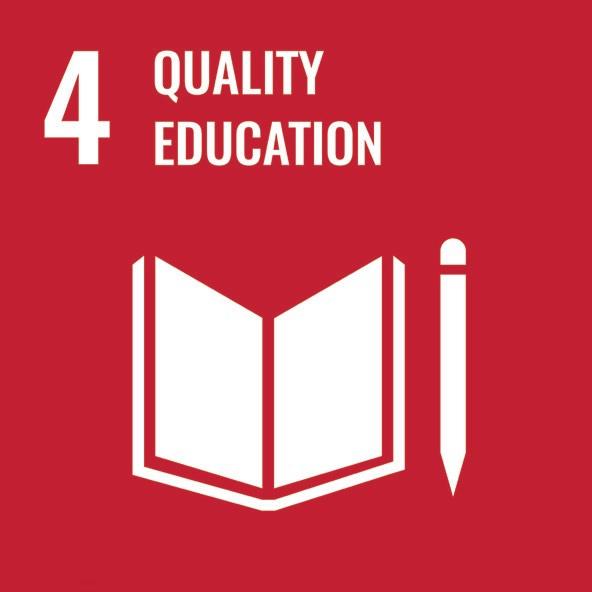
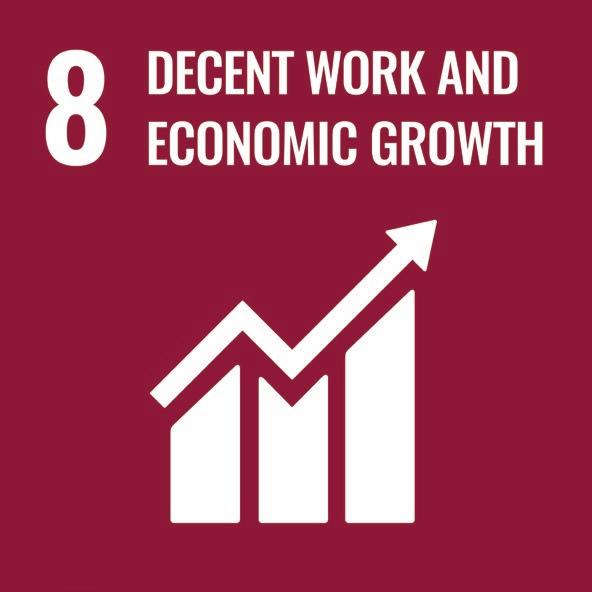
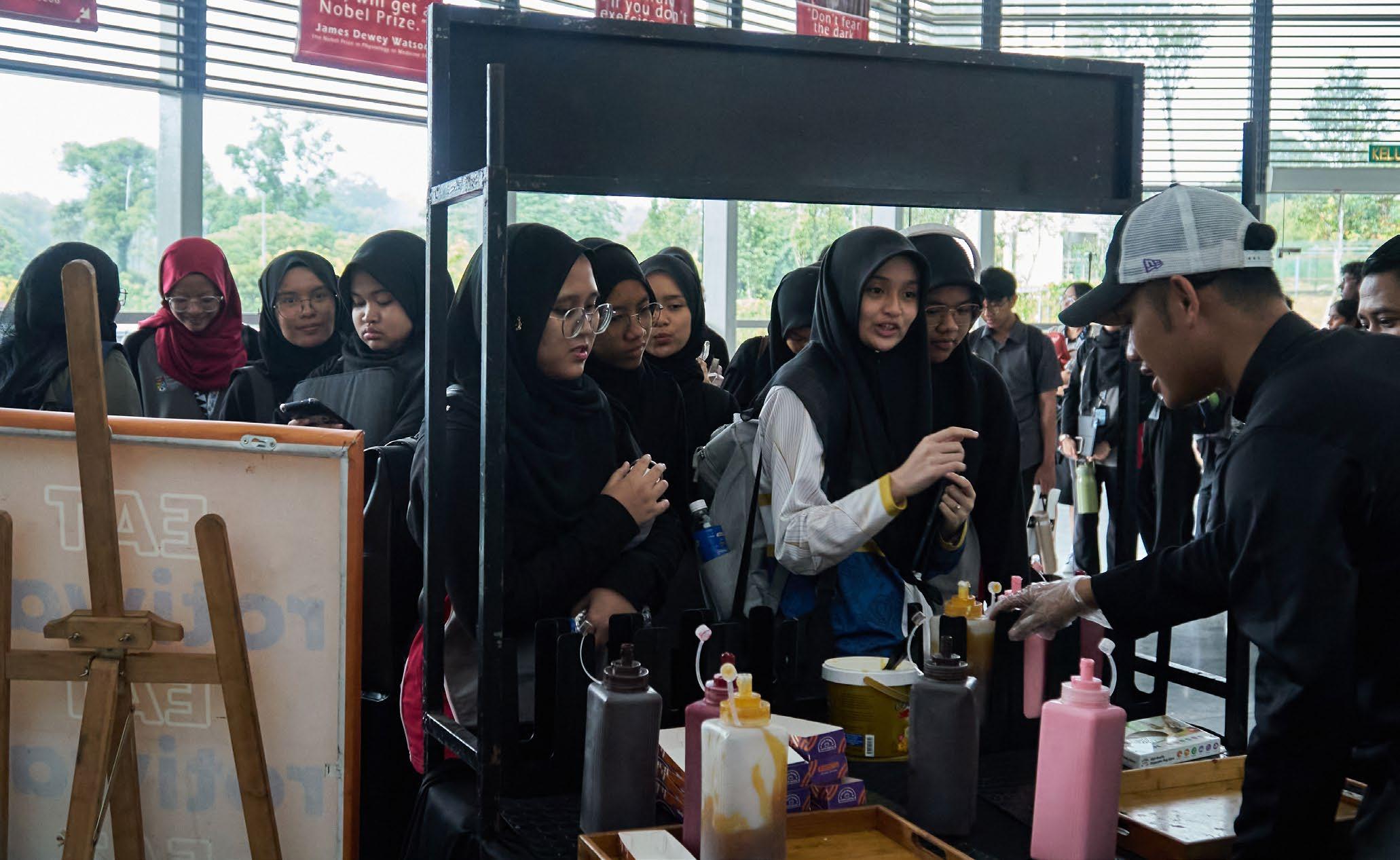
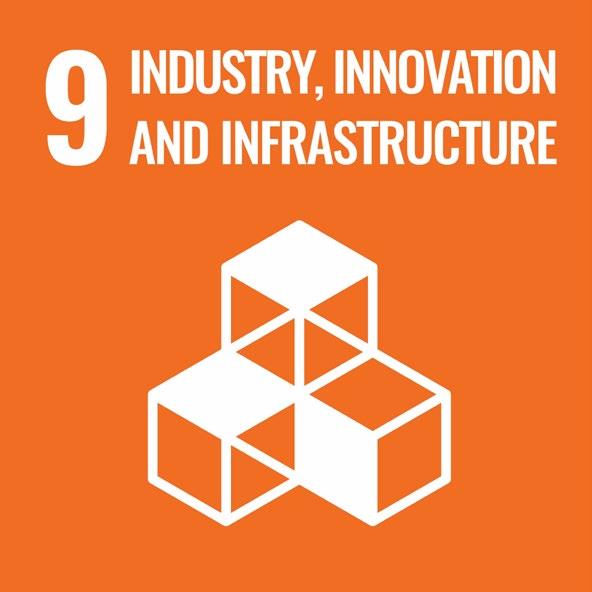
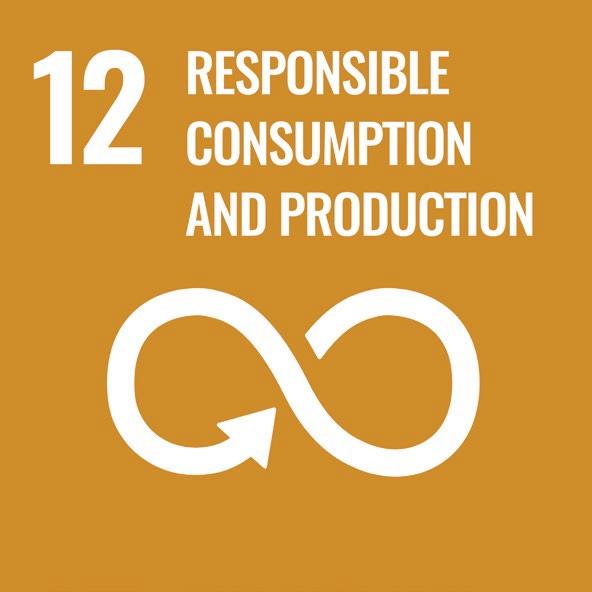
8.3.3 SDG 4: Quality Education and SDG 8: Decent Work and Economic Growth
The Wap-Preneur program is a testament to Blueprint Panda’s commitment to SDG 4: Quality Education and SDG 8: Decent Work and Economic Growth.
By providing students with practical business education and entrepreneurial skills, the program contributes to the development of a skilled and empowered workforce. This initiative not only supports individual growth but also fosters economic development by nurturing the next generation of entrepreneurs.
“Partnerships are the cornerstone of progress. The Sustainable Development Goals can only be realized with a strong commitment to global cooperation and collaboration. SDG 17 reminds us that we are stronger together, and only by working in unison can we create a better world for future generations.”
– Adapted from the United Nations’ vision on SDG 17
The Blueprint Panda project is more than just a business consultancy—it’s a story of growth, innovation, and social responsibility. Through strategic planning, ethical governance, and a commitment to community engagement, Blueprint Panda has positioned Rotiwap for sustainable success while making a meaningful impact on society.
This report highlights the significant contributions of the project, showcasing how thoughtful and responsible business practices can drive positive change both within a company and in the broader community.
As this report is presented to industry specialists and panelists, it serves as a testament to the power of integrating business acumen with social responsibility.
The Blueprint Panda project not only demonstrates the potential of Rotiwap as a brand but also sets a new standard for excellence in CSR and sustainable business practices. This narrative of success is one that will inspire future initiatives, proving that when businesses grow with purpose, they can achieve lasting and meaningful impact.
To ensure the Blueprint Panda project’s sustainability in the future, several key components must be enhanced and improved. First, the process of obtaining Halal certification, although well advanced, must remain a priority, requiring continued collaboration with Halal International Selangor to overcome any compliance gaps. Rotiwap should consider establishing an internal compliance team to regularly review supply networks and production processes to maintain Halal certification as a standard practice, especially as the company expands into new markets.
Business expansion, particularly into high-traffic areas such as LRT and MRT stations, should be supported by ongoing market analysis to confirm that the locations selected continue to provide optimal visibility and accessibility. Collaborating with local governments or public transportation teams, alongside integrating sustainable design materials into new kiosks, will reinforce Rotiwap’s brand visibility and commitment to responsible growth.
The franchising model developed by Blueprint Panda is crucial for long-term sustainability. Standard Operating Procedures (SOPs) must be updated regularly to stay aligned with new consumer trends and technological advances, and continuous training and support should be provided to franchise owners to ensure consistency in quality.
A mentorship system where experienced franchisees guide newcomers would further strengthen the franchise community. Rotiwap’s venture into digital advertising, such as its Bukit Bintang billboard, should be followed by an omnichannel marketing strategy that combines traditional and digital platforms. Sustainable marketing methods, such as eco-conscious campaigns and partnerships, could enhance brand image while reducing environmental impact. AI-driven tools can help monitor and optimize the effectiveness of these strategies in real-time.

The Blueprint Panda project has had a profound impact on both Rotiwap and the Blueprint Panda team. For Rotiwap, the project has been pivotal in building a foundation for sustainable growth, providing strategic business planning, franchise development, and social responsibility initiatives. The partnership has positioned Rotiwap to expand into high-traffic urban areas, establish a robust franchise model, and present itself as a socially conscious brand. By integrating principles of ethical governance and aligning with global standards like the SDGs, the groundwork for long-term success has been firmly laid.
The Wap-Preneur program, as part of Blueprint Panda’s social responsibility initiatives, offers a solid platform for youth development and community engagement. Expanding the program to more educational institutions and regions, along with offering continued mentorship for participants, will amplify its impact. Collaborating with government agencies, non-profits, and private sector organizations will further enhance resources available to young entrepreneurs. Blueprint Panda should also develop a more comprehensive CSR plan focused on sustainability, integrating United Nations Sustainable Development Goals (SDGs), particularly SDGs 12 (Responsible Consumption and Production) and 9
(Industry, Innovation, and Infrastructure). This could involve switching to more sustainable packaging and supporting local suppliers, aligning Rotiwap with consumer demands for ethical and environmentally responsible products.
Lastly, monitoring and evaluating the impact of these initiatives is essential for long-term success. Establishing clear Key Performance Indicators (KPIs) and conducting annual impact reviews, which gather feedback from stakeholders such as franchisees, employees, and community members, will ensure that Rotiwap grows with integrity and purpose.
For Blueprint Panda, the project enabled the team to offer valuable consultancy services while creating a model that can be replicated for other SMEs. The consultation fees, ranging from RM10,000 to RM30,000 depending on the complexity of work, generate income that ensures job security and financial sustainability for team members. Additionally, the expertise gained, particularly in franchise development and licensing, equips the team with practical knowledge that can be applied to their own entrepreneurial ventures or future consultancy projects. Collaborative partnerships with institutions like UKM and Uniten have been mutually beneficial, promoting student entrepreneurship and expanding Rotiwap’s brand presence among younger consumers. Blueprint Panda benefits by enhancing its academic-industry connections and ensuring the sustainability of its consultancy model by continually engaging new partners.
Blueprint Panda’s in-depth knowledge of licensing and franchising serves as a valuable reference for future projects, empowering team members with the legal, operational, and financial insights necessary to succeed. This expertise ensures that the team is well-prepared for future entrepreneurial endeavors or to continue offering consultancy services to other SMEs.
Time constraints were one of the most significant challenges faced by the Blueprint Panda project. Given the complex nature of tasks such as obtaining Halal certification and executing strategic market expansion, the available time proved to be insufficient.
Regulatory processes, especially those related to certification, are lengthy and require meticulous planning, documentation, and reviews, which extend beyond short project timelines. Similarly, market expansion efforts, including selecting high-traffic locations and preparing franchise outlets, involve numerous logistical considerations. The limited timeframe hindered the ability to fully achieve these objectives, making time a critical limiting factor in the project’s progress.
Securing Halal certification for Rotiwap posed a considerable challenge due to the intricate and multi-layered process involved. The certification requires strict adherence to compliance with religious standards, detailed audits, and ongoing monitoring, all of which extend the timeline beyond what was initially anticipated.
Additionally, the Halal certification process involves engagement with various regulatory bodies and agencies, which can add complexity and delay. While significant groundwork was laid during the project, the time required to navigate these complexities effectively was beyond the project’s scope, resulting in the certification remaining incomplete by the project’s conclusion.
Although the Blueprint Panda project successfully developed a comprehensive franchising framework for Rotiwap, the implementation of this framework faced challenges due to the limited timeframe. Launching a franchise network requires careful selection of franchisees, detailed legal agreements, and extensive training to ensure consistency in quality and operations.
These steps involve long-term planning and collaboration, which could not be fully achieved within the project period. Additionally, building relationships with potential franchisees and securing appropriate locations for new outlets are time-intensive processes, making it difficult to execute the franchising rollout within the project’s designated timeline.
The project operated within strict financial and human resource constraints, which presented challenges in executing the full scope of planned activities. Marketing efforts, franchise development, and strategic expansions require significant resources to achieve the desired impact.
The limited budget restricted the scale of certain initiatives, such as digital billboard advertising, which could have benefited from broader implementation. Similarly, the availability of team members and external partners influenced the pace of progress. While resource management was carefully handled, the limitations resulted in some project components being scaled back or delayed, ultimately affecting the full realization of the project’s objectives.
One of the limitations of the Blueprint Panda project was the inability to fully evaluate the long-term impact of key initiatives, such as the Wap-Preneur program and digital billboard advertising. These initiatives were designed to foster entrepreneurial skills and enhance brand visibility, but their true effectiveness can only be measured over an extended period.
Given the limited project duration, it was challenging to assess the ongoing influence these efforts have on students and the market. The long-term outcomes, including sustained brand growth and entrepreneurial success, require further monitoring and data collection beyond the project’s timeframe to fully understand their impact.
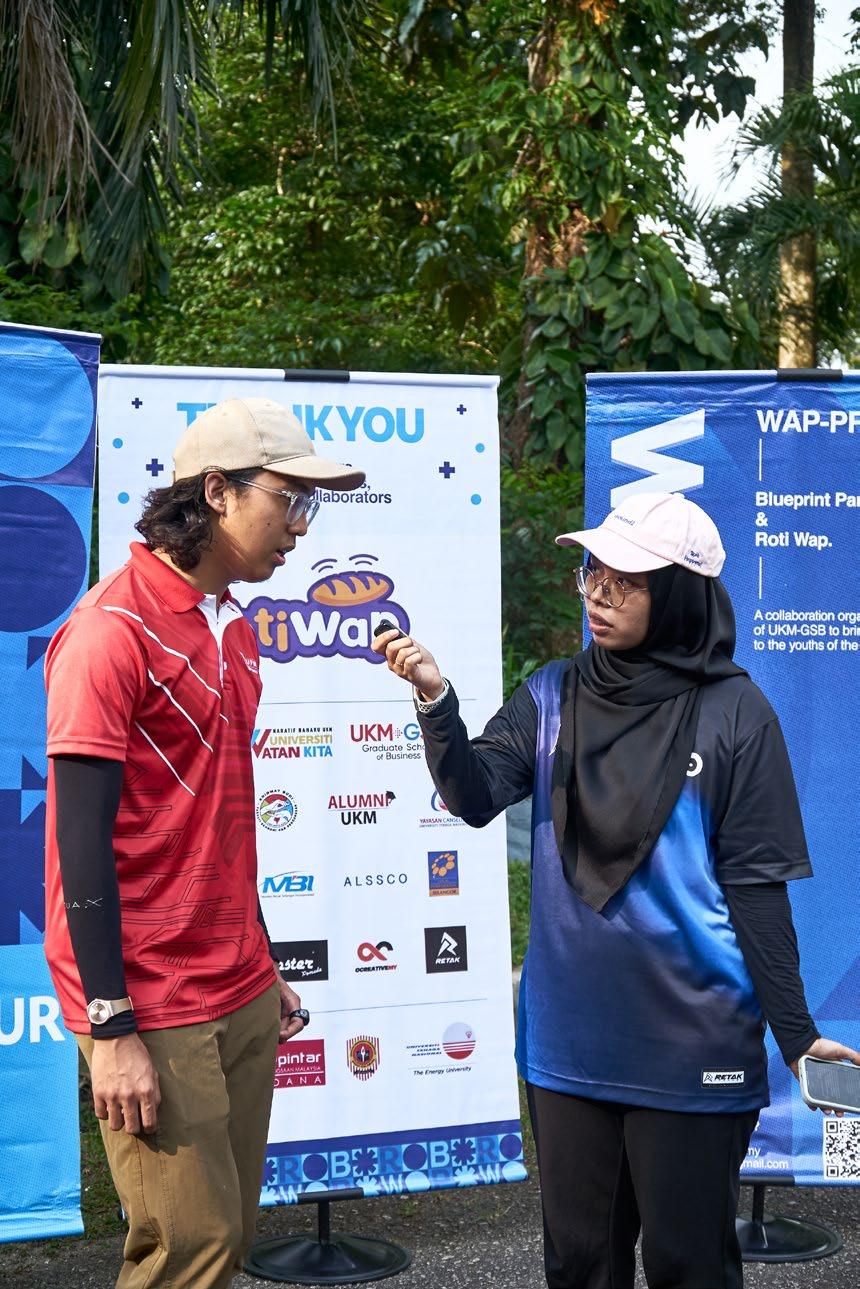
The Blueprint Panda project effectively provided business development consultations aimed at fostering sustainable growth for SMEs, with a primary focus on Rotiwap. Through a strategic partnership, the project facilitated the development of a robust franchising framework and comprehensive business expansion plans.
These consultations laid the groundwork for Rotiwap’s future scalability, helping the brand position itself for long-term success in new markets. By offering tailored guidance on operational standards and growth strategies, Blueprint Panda ensured that Rotiwap was equipped with the necessary tools and frameworks to expand sustainably while maintaining its core values.
10.2.2
A key achievement of the project was the creation of a comprehensive business expansion module, which included licensing and franchising frameworks. Developed in collaboration with industry leaders like PERNAS, this module offers Rotiwap a clear path for future growth while maintaining its operational standards and brand identity.
The module ensures that new franchises adhere to the same high-quality service and product standards, helping Rotiwap preserve consistency across its expanding network. This accomplishment has set the stage for scalable, strategic growth and provided a reliable structure for expanding into new markets confidently and sustainably.
The Blueprint Panda project made considerable progress in preparing Rotiwap for the Halal certification process, a critical milestone for market expansion in Malaysia. Although the final certification is still pending, the project successfully guided Roti Wap through the complex preparatory phases.
This involved assisting in areas such as sourcing, production processes, and compliance with religious standards. Blueprint Panda’s support ensured that Rotiwap is well-positioned to achieve certification in the future, which will allow it to access new consumer segments and build greater trust with its target audience. This preparation reflects the project’s strong contribution to Rotiwap’s sustainable growth.
One of the standout achievements of the Blueprint Panda project was its success in modernizing Rotiwap’s marketing strategies to enhance brand visibility. By introducing digital billboard advertising at Bukit Bintang, a prime commercial area in Kuala Lumpur, Blueprint Panda ensured Rotiwap gained significant attention from both local and international audiences.
The choice to go digital not only increased brand outreach but also aligned with environmentally sustainable practices, positioning Rotiwap as an innovative and forward-thinking brand. This marketing effort elevated the brand’s presence in a highly competitive market, laying the foundation for future growth.
The Wap-Preneur and Healing with Nature programs, hosted at Pusat Permata Pintar Negara and Taman Botani Negara, represented significant achievements in fostering entrepreneurship and leadership among students. These initiatives targeted participants from Pusat ASASIpintar Perdana UKM and Asasi Pertanian UPM, offering practical business education combined with personal development.
By engaging experienced entrepreneurs and using a natural, reflective setting, the programs helped students develop critical skills for future success. The initiatives directly contributed to SDG 4: Quality Education and SDG 8: Decent Work and Economic Growth, laying the foundation for long-term societal and economic benefits by empowering the next generation of leaders in Malaysia.

